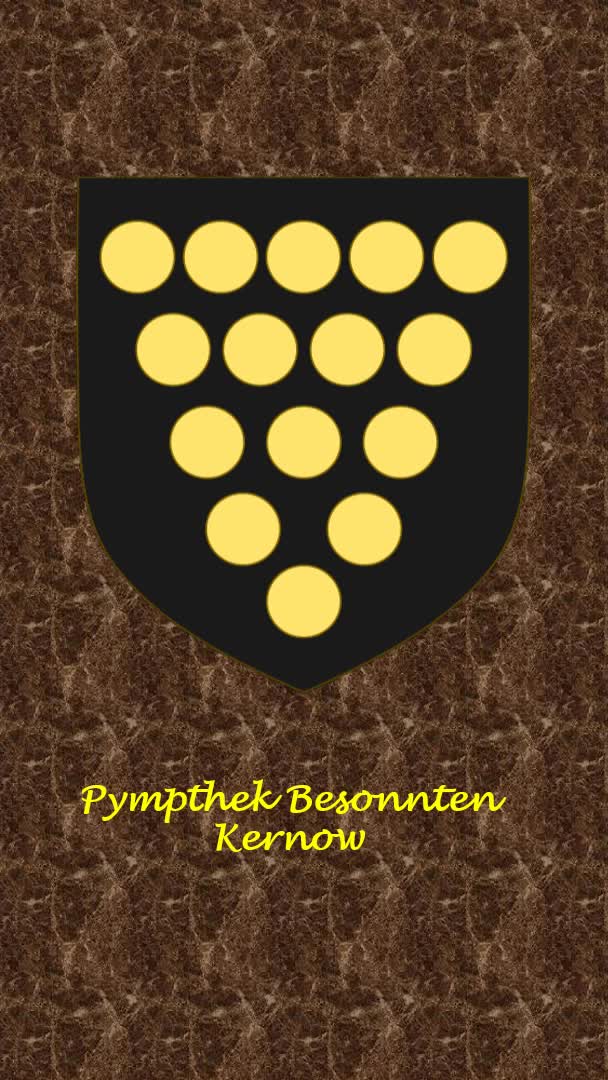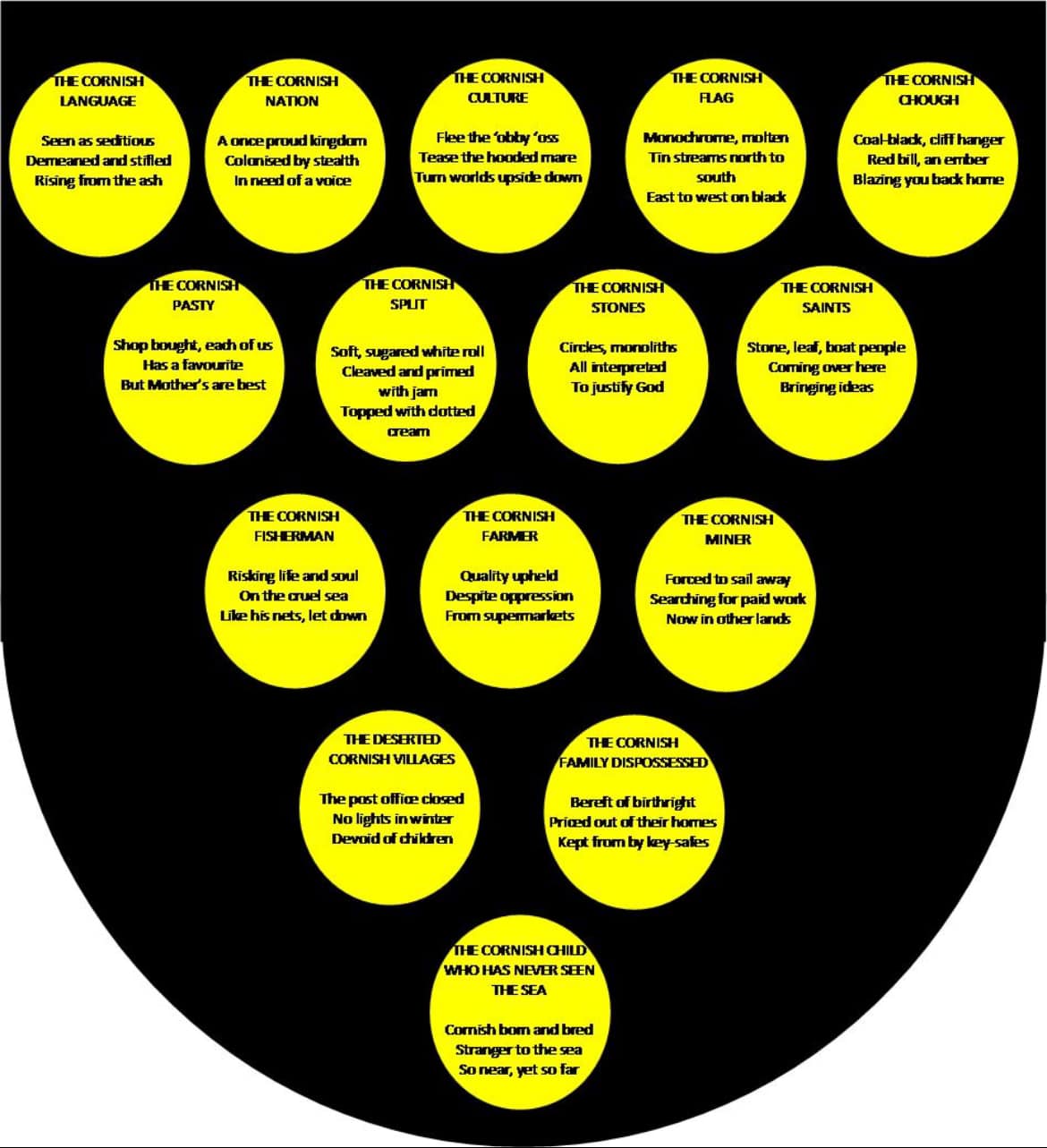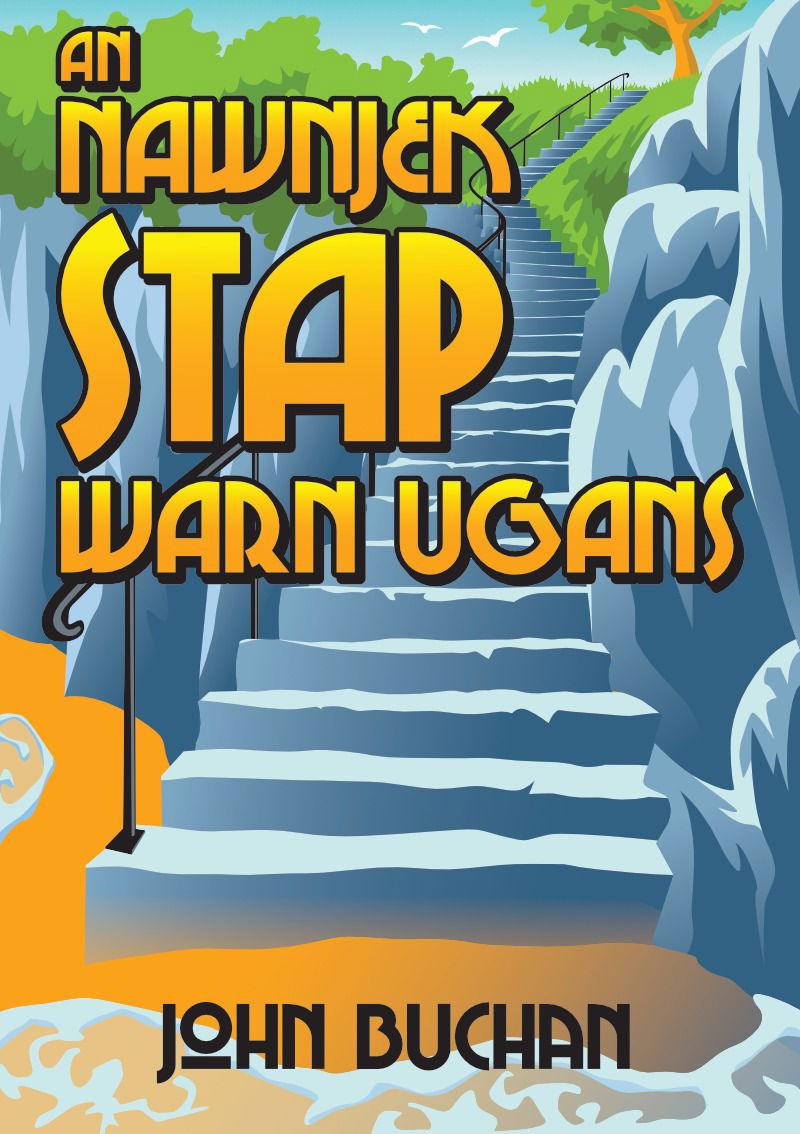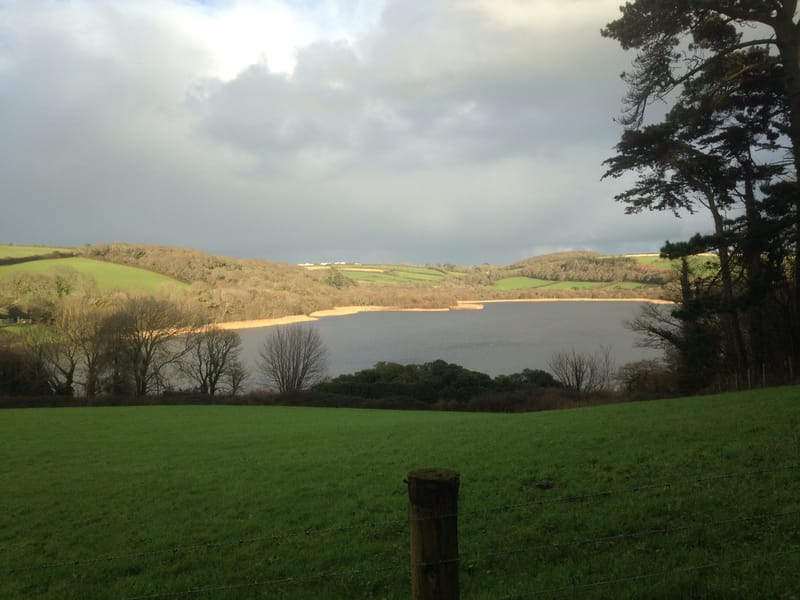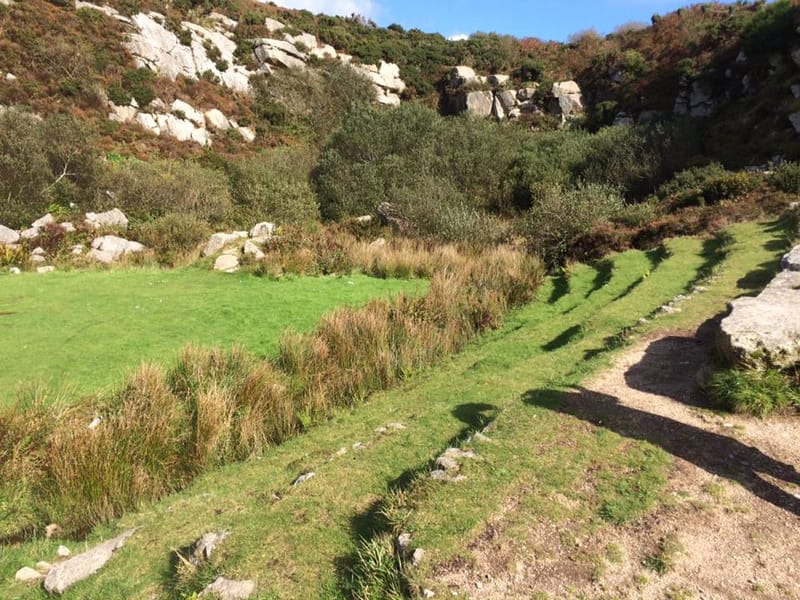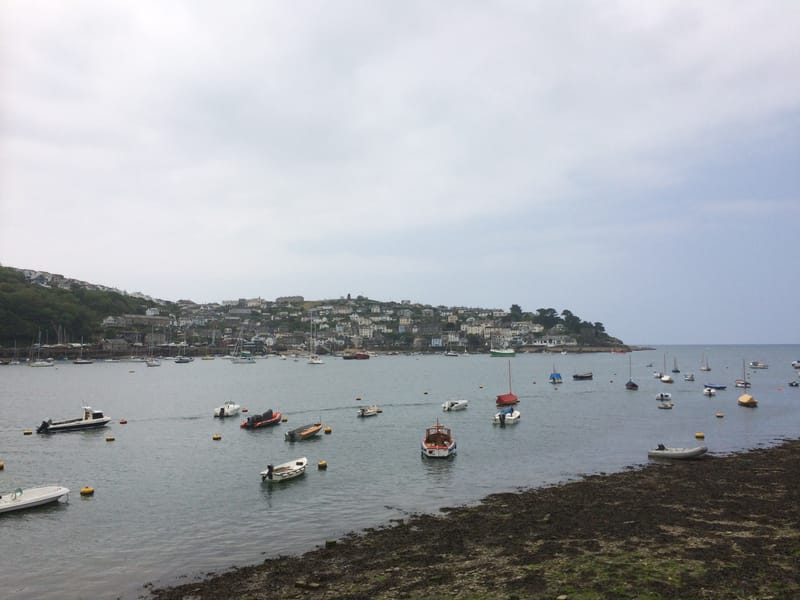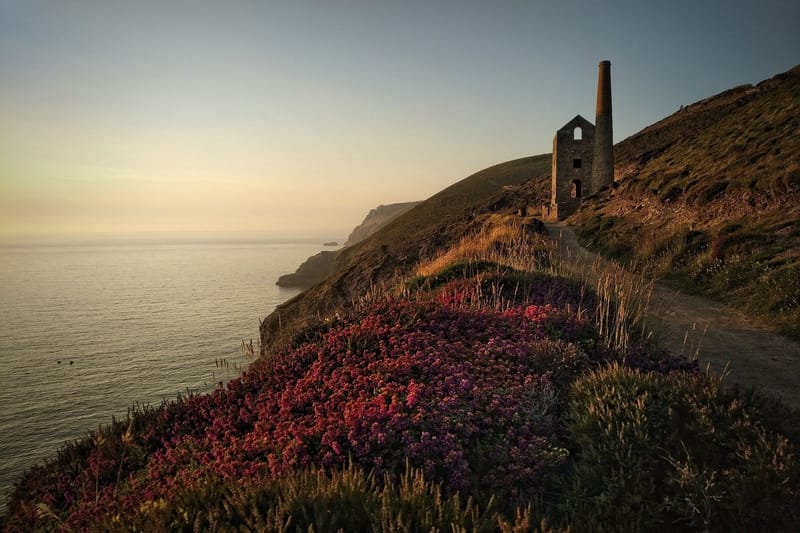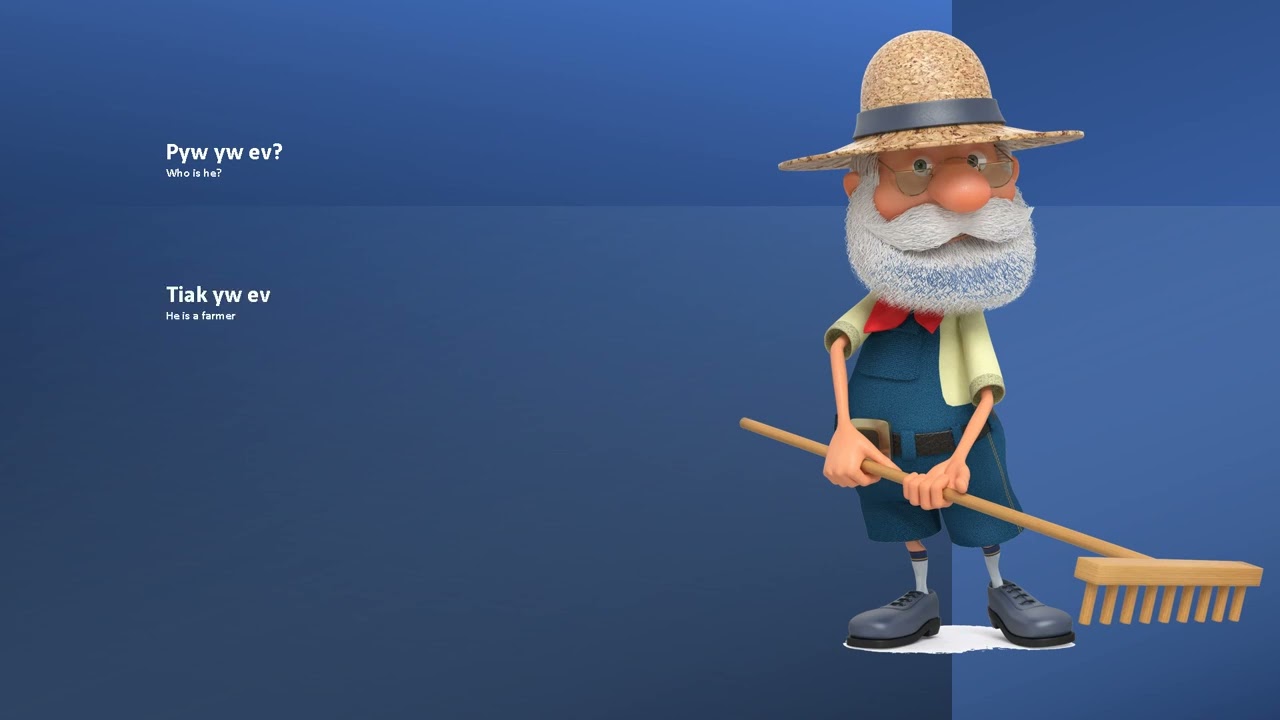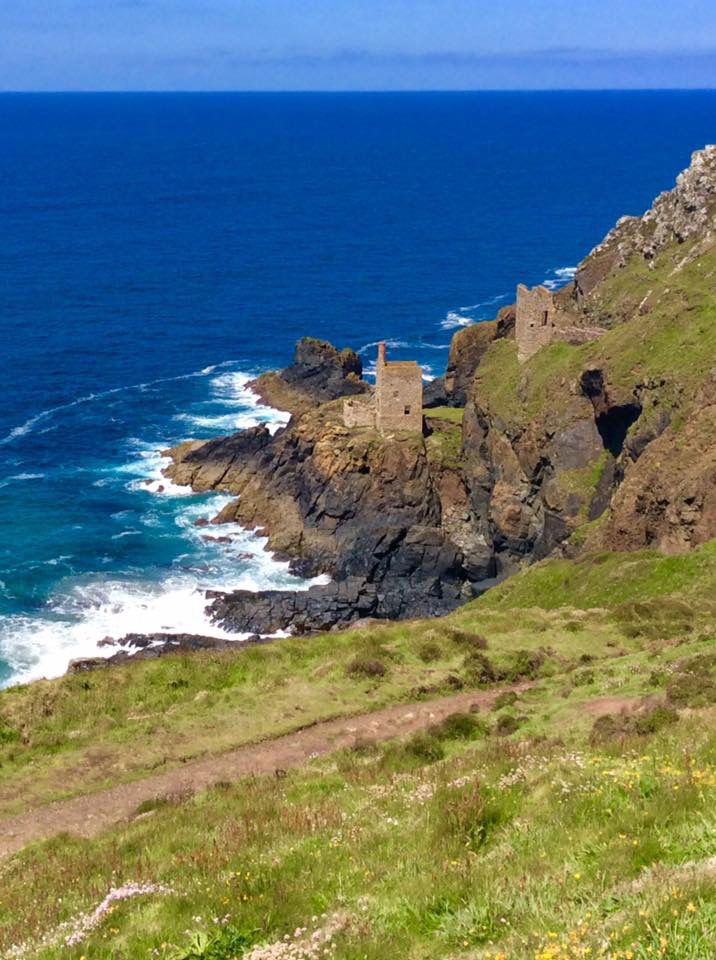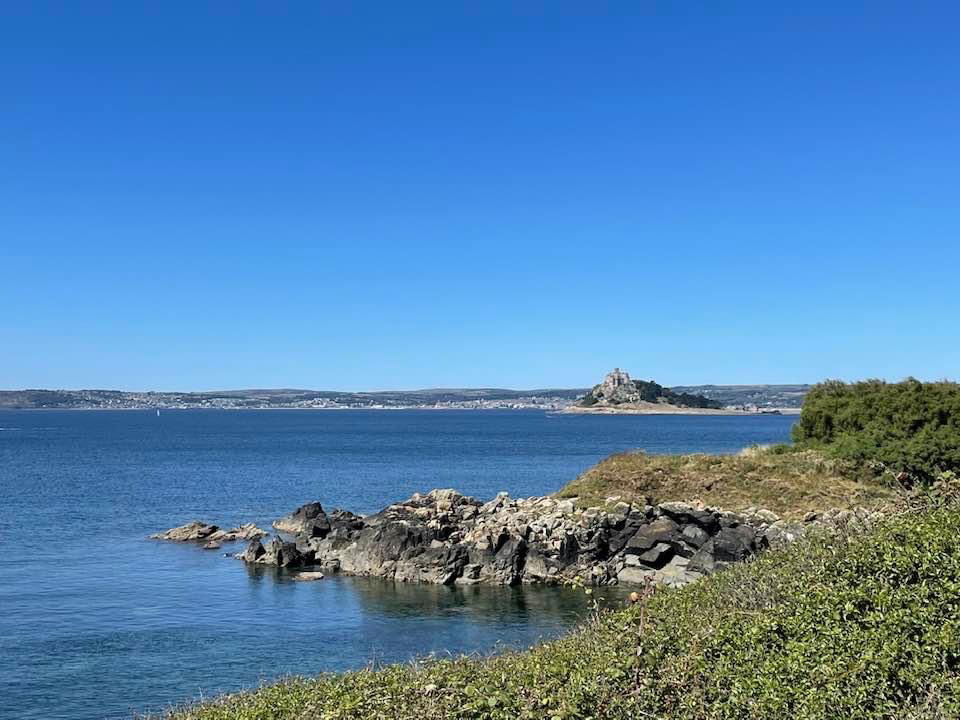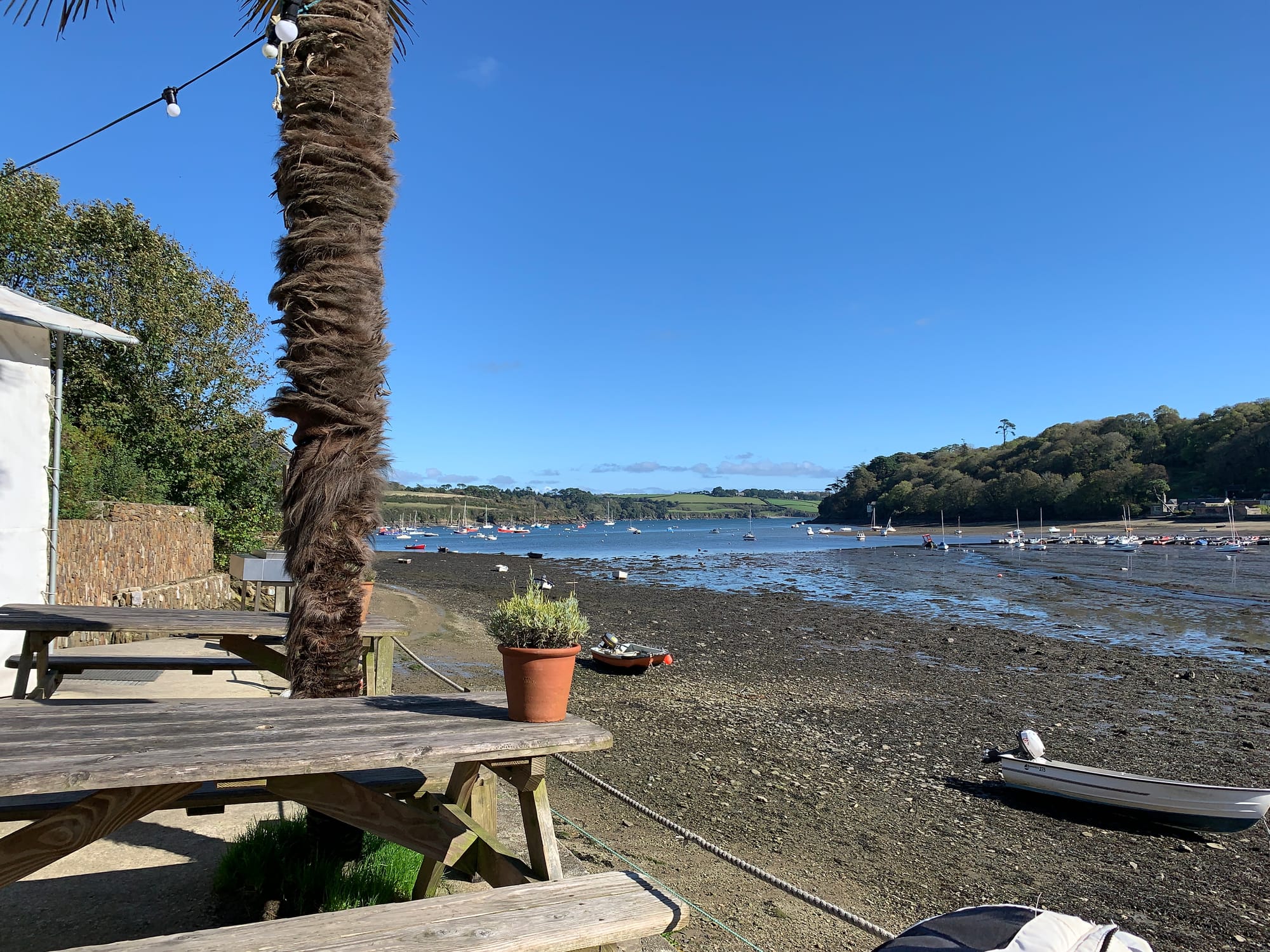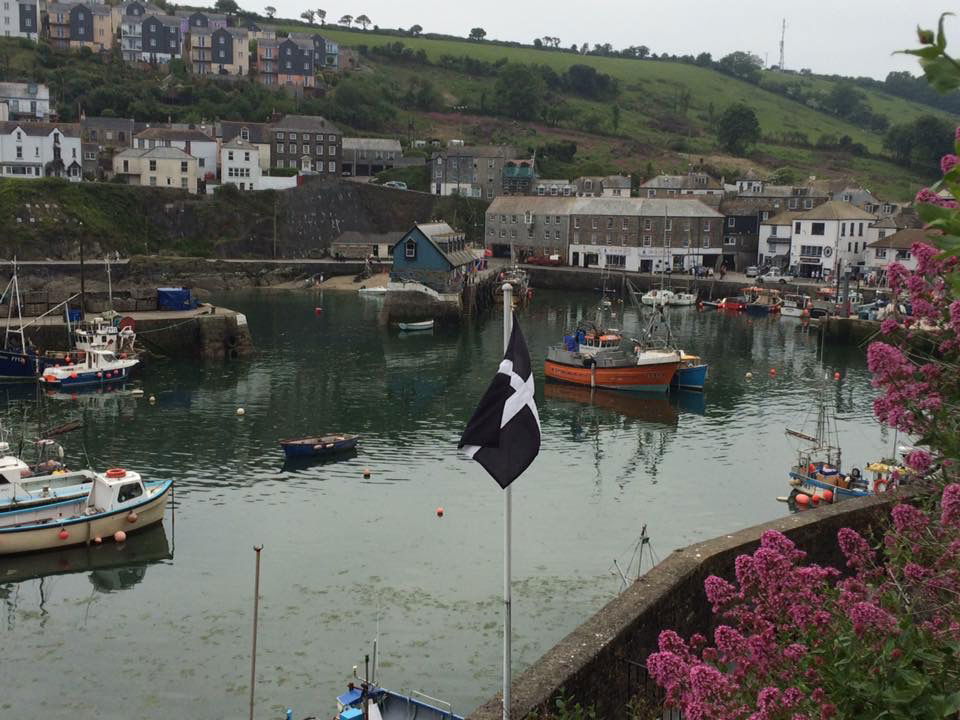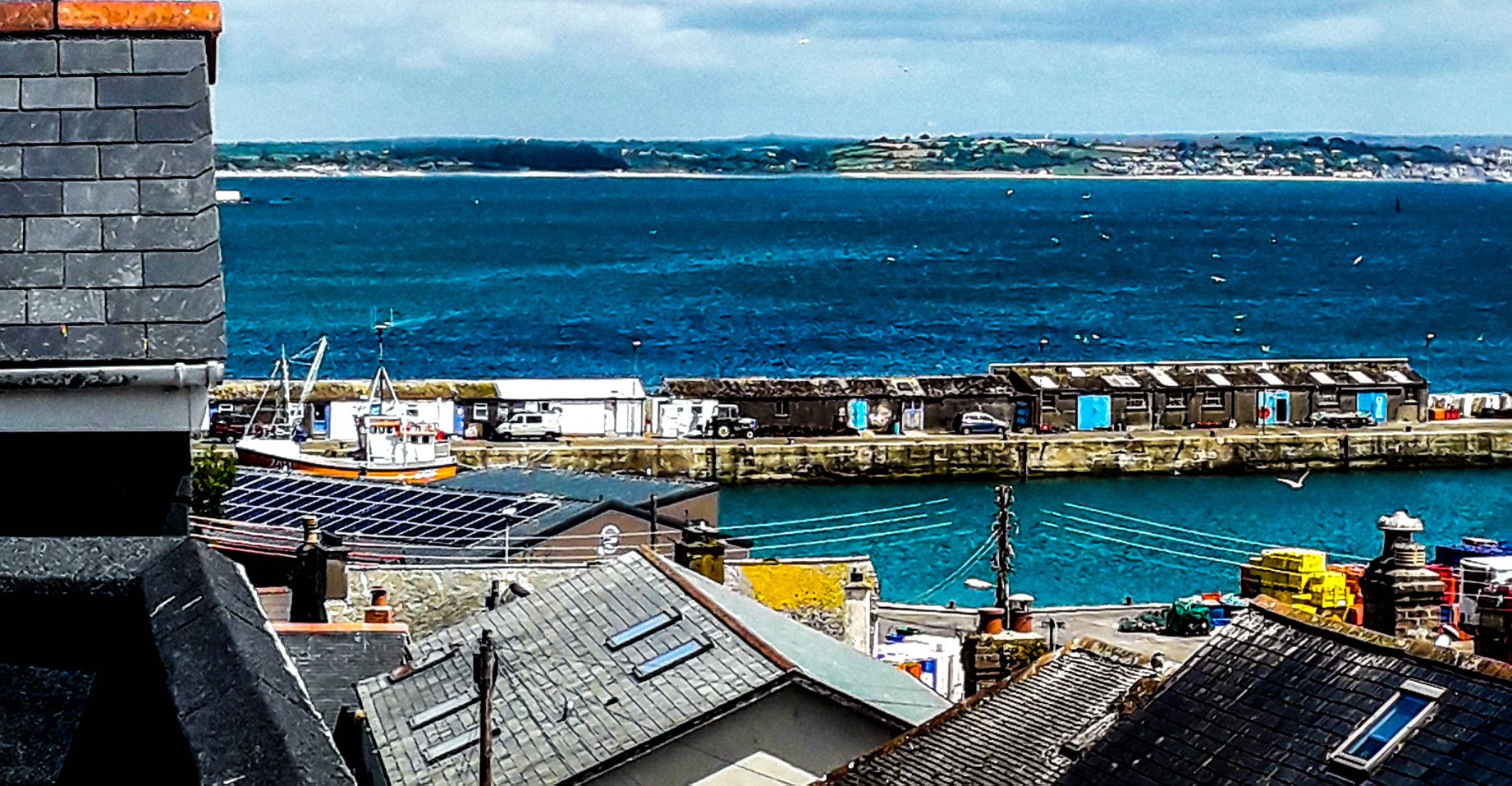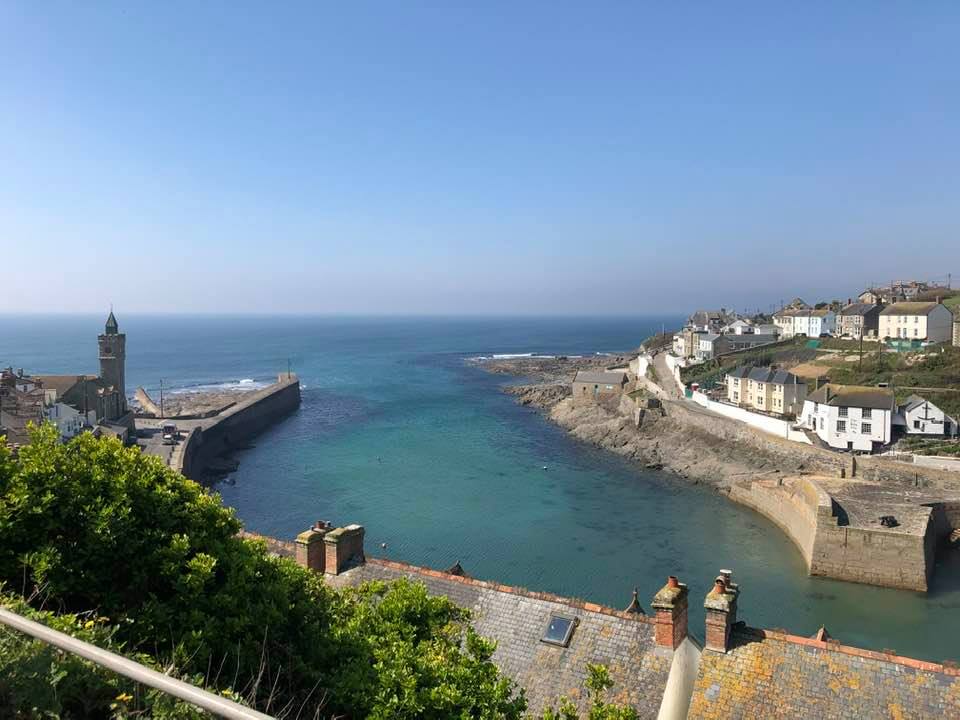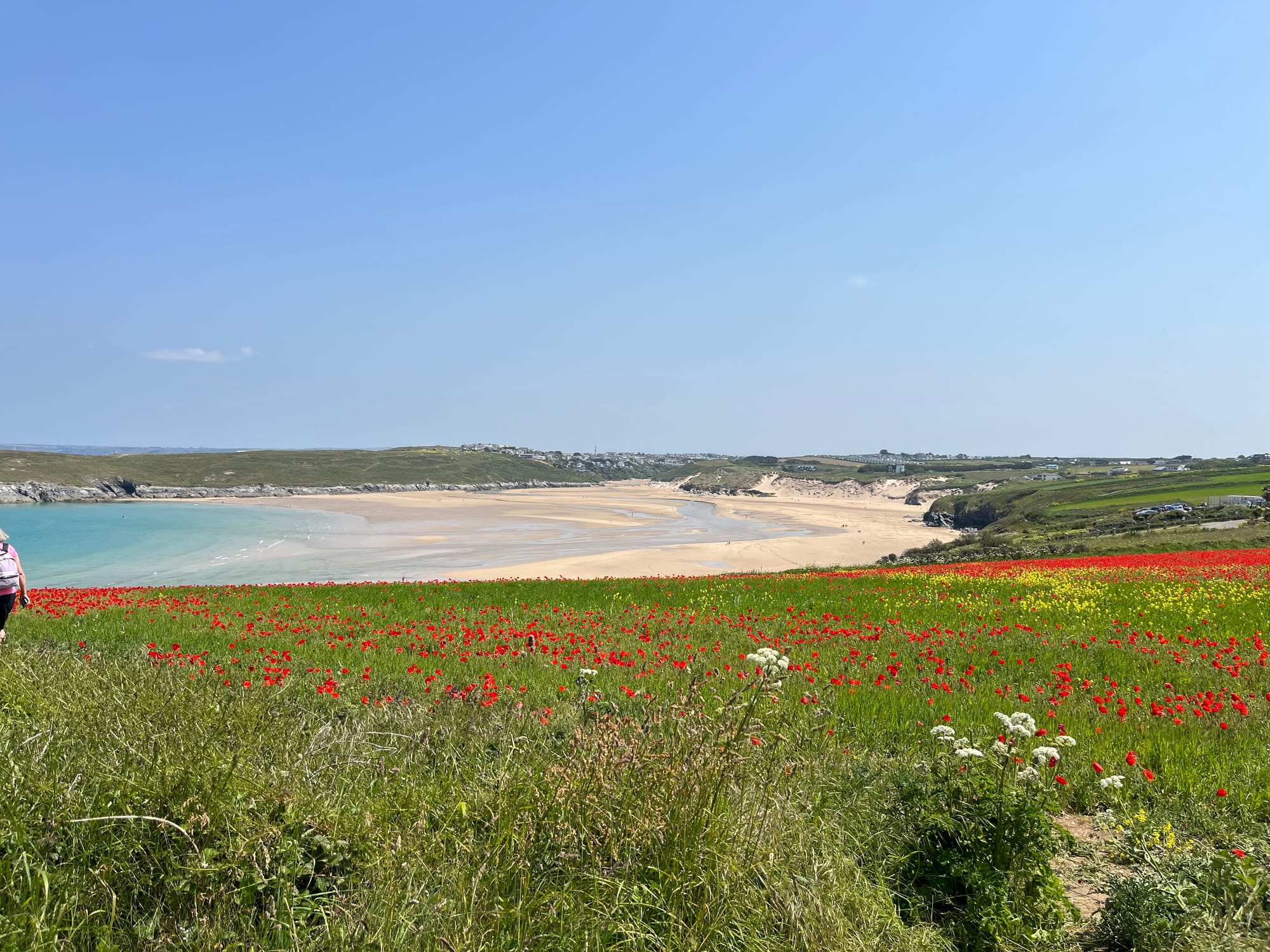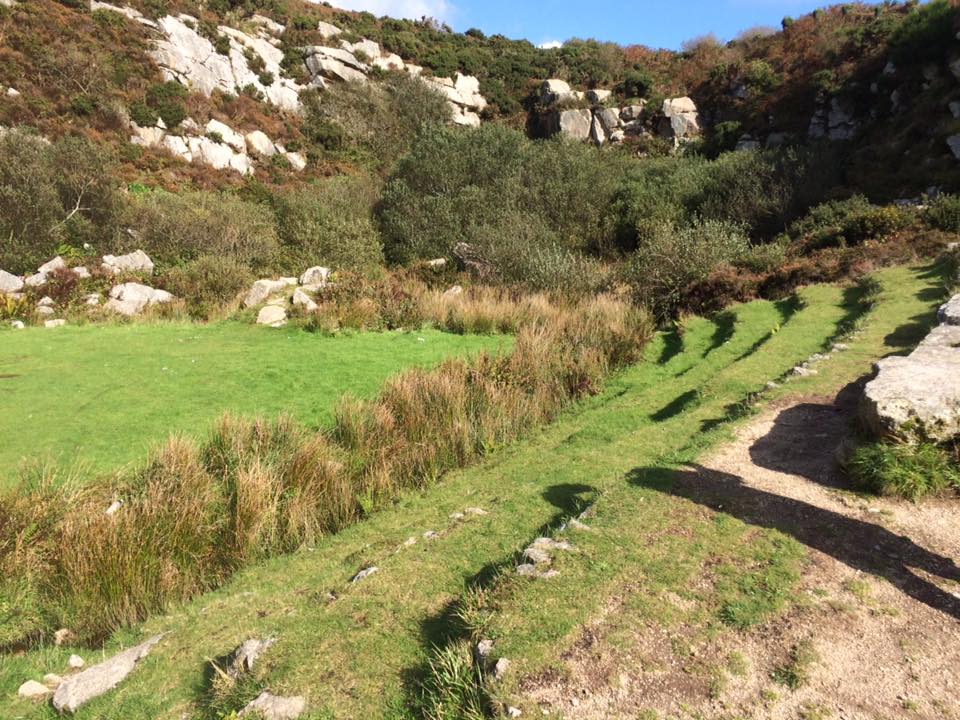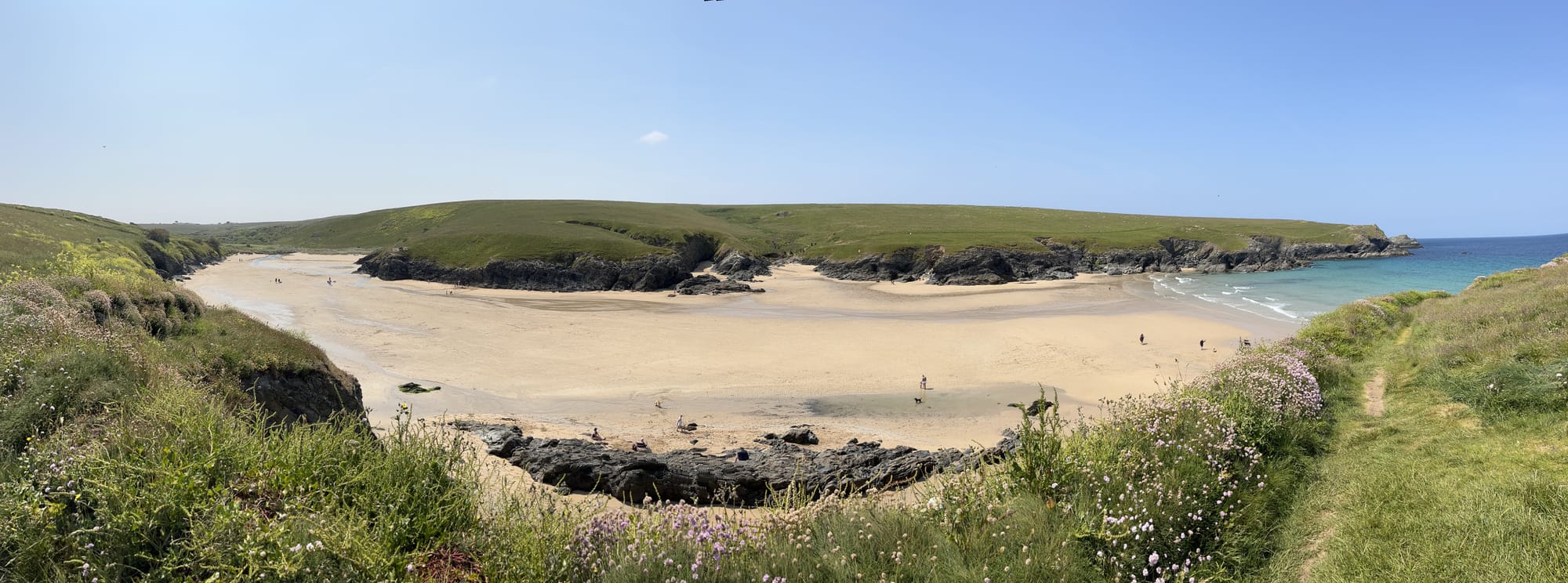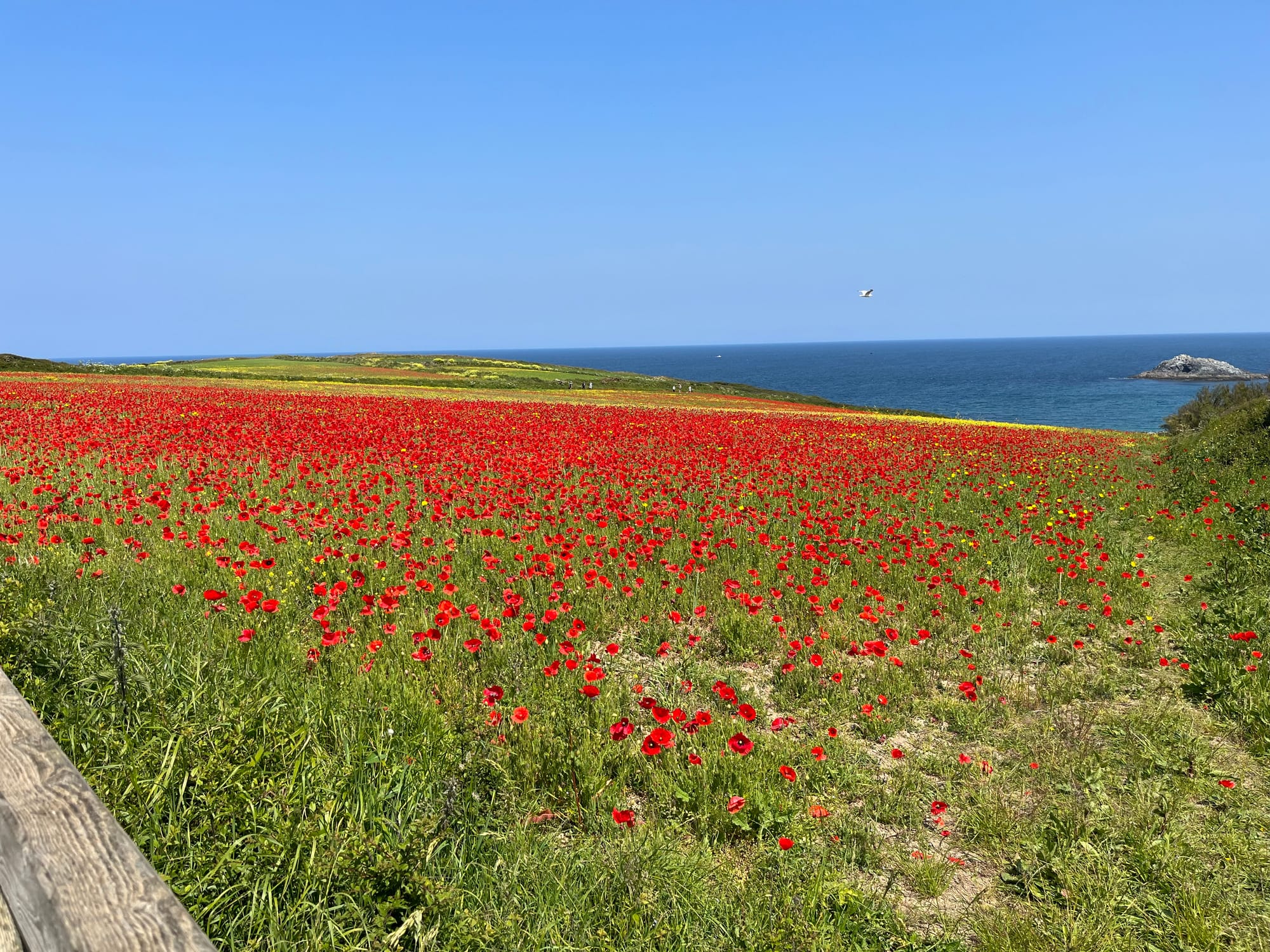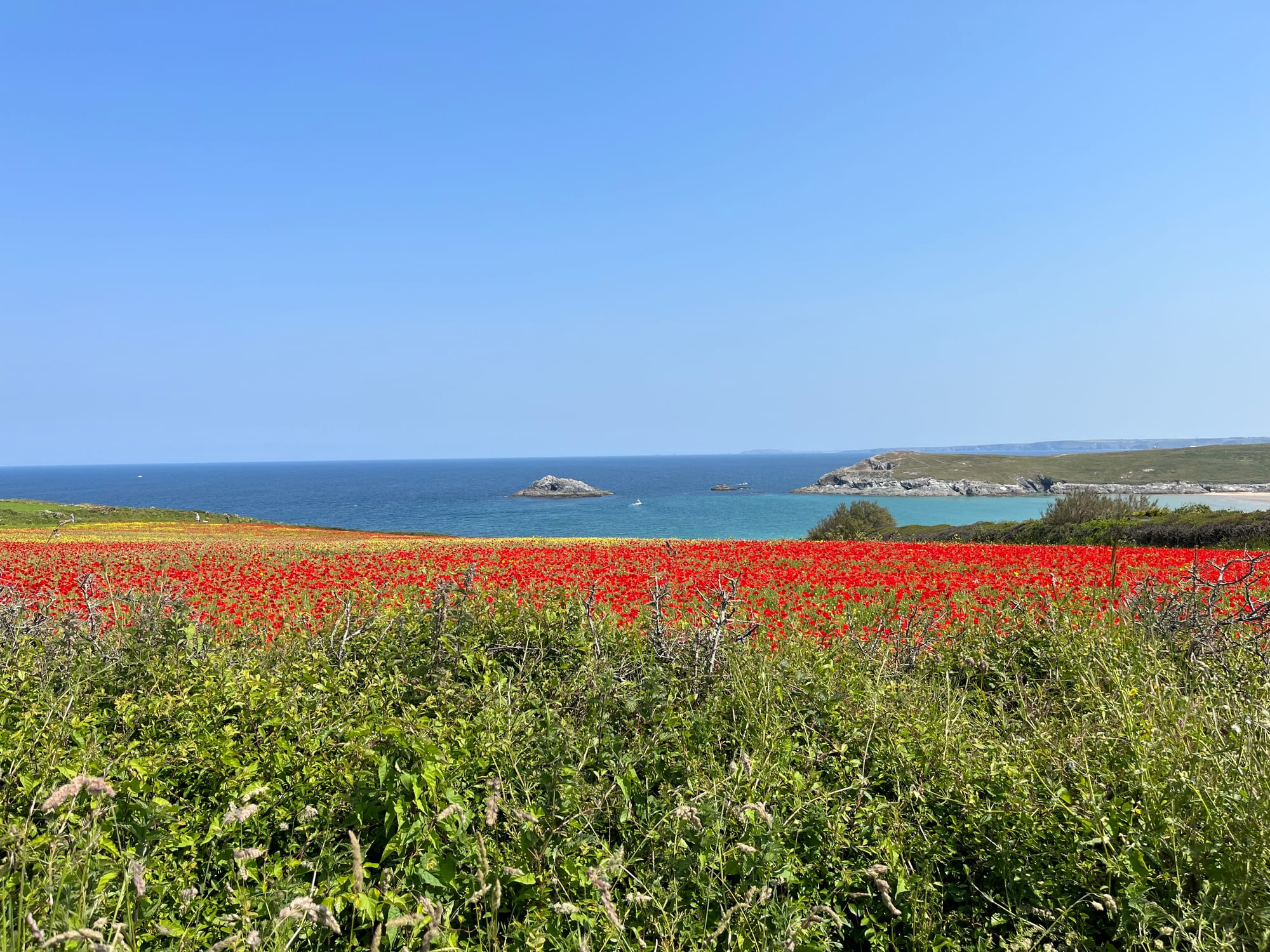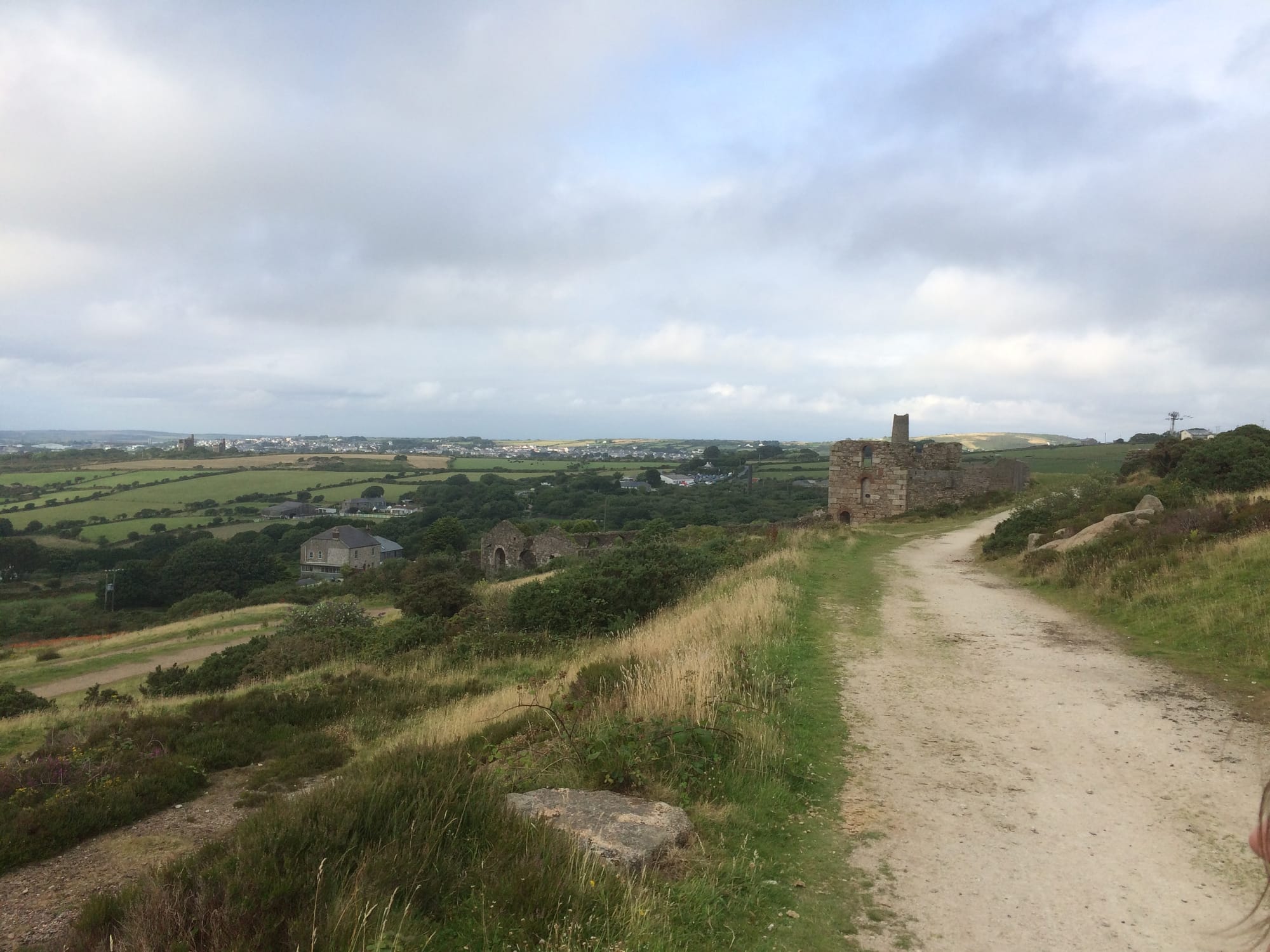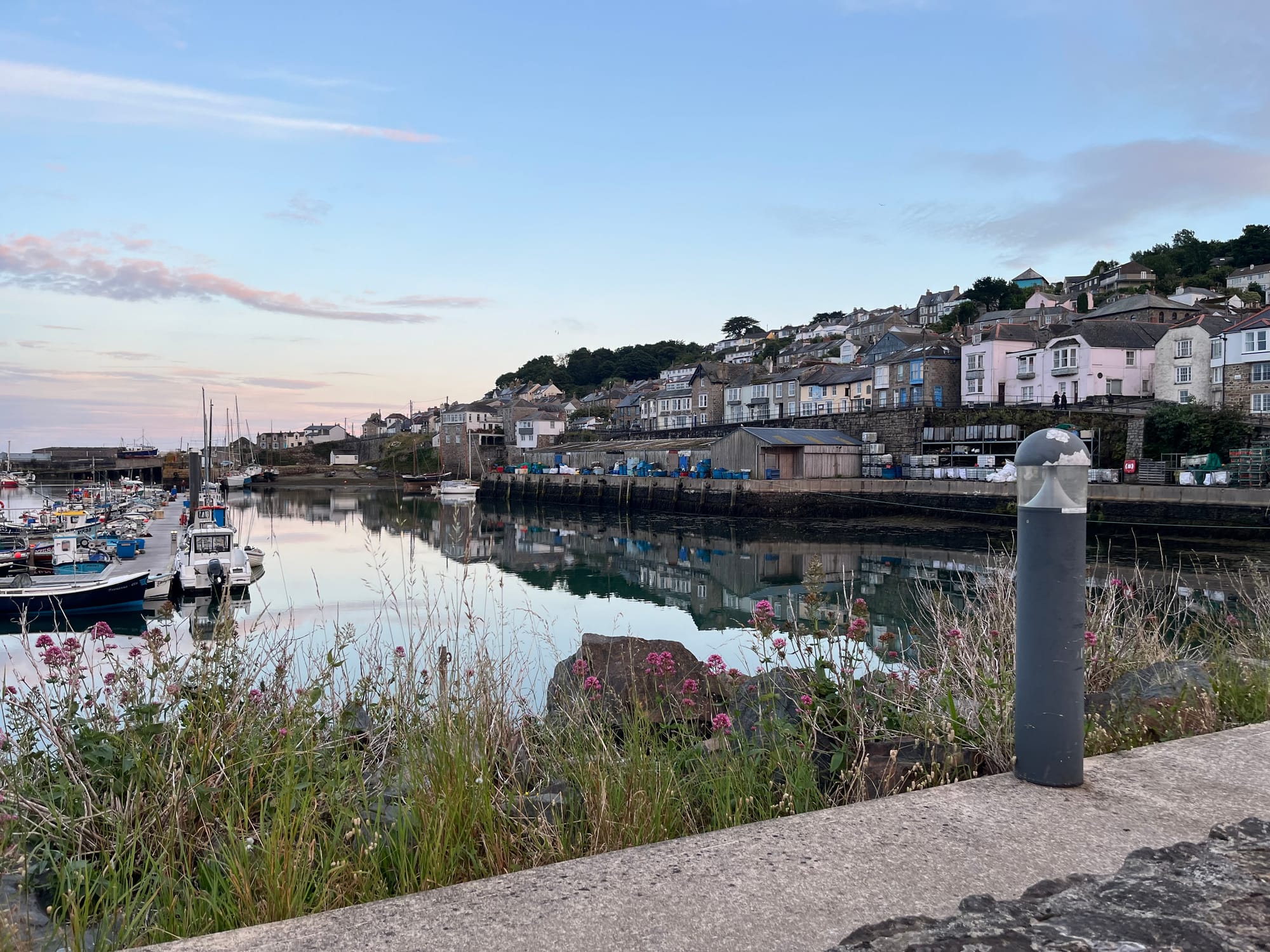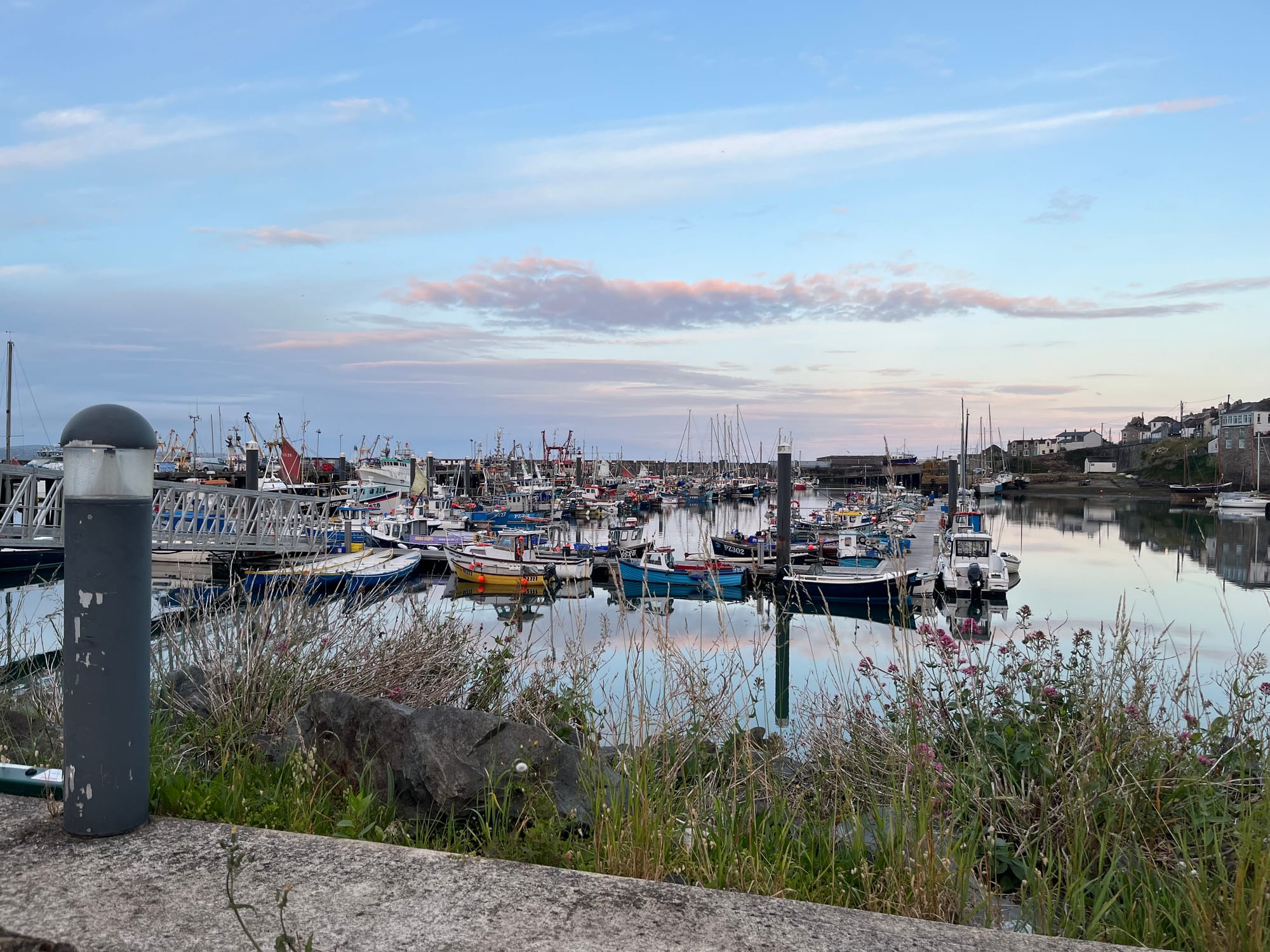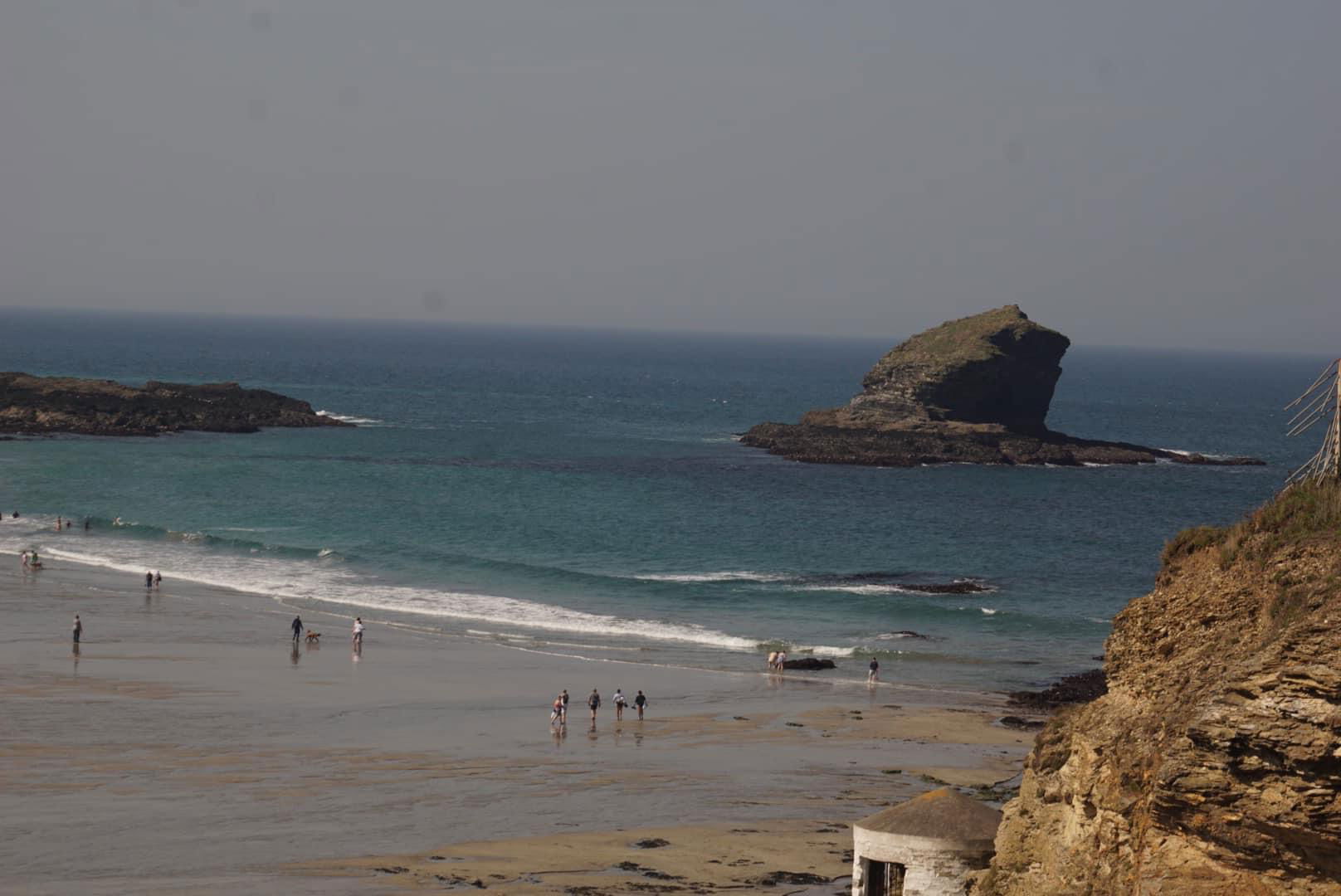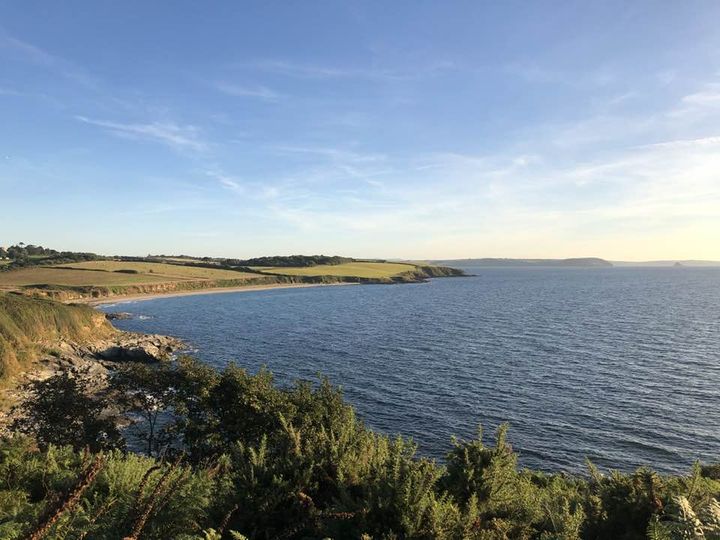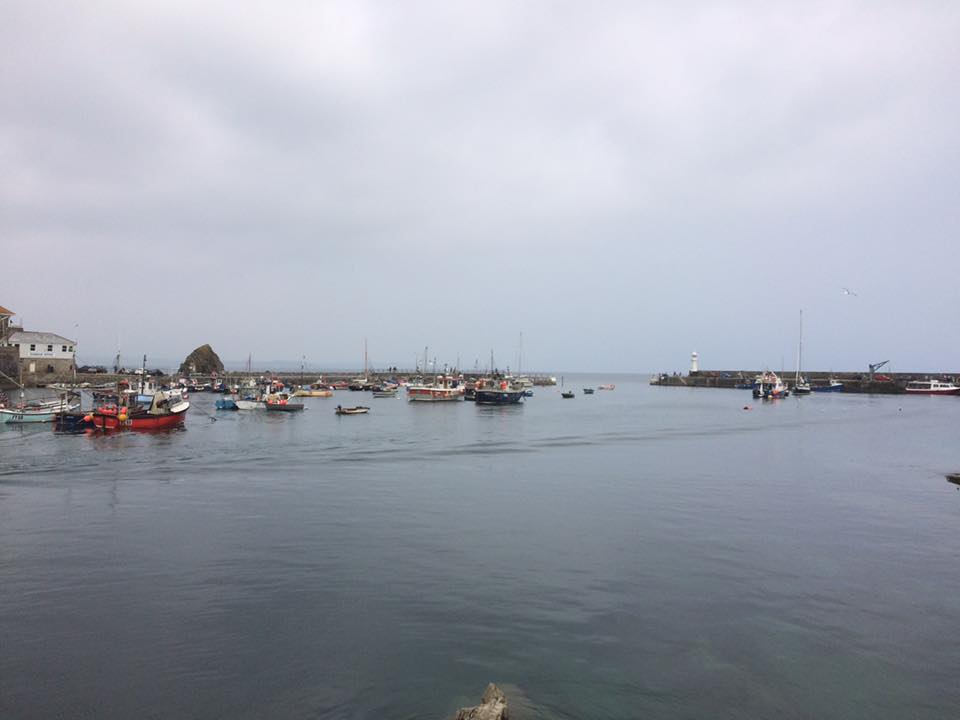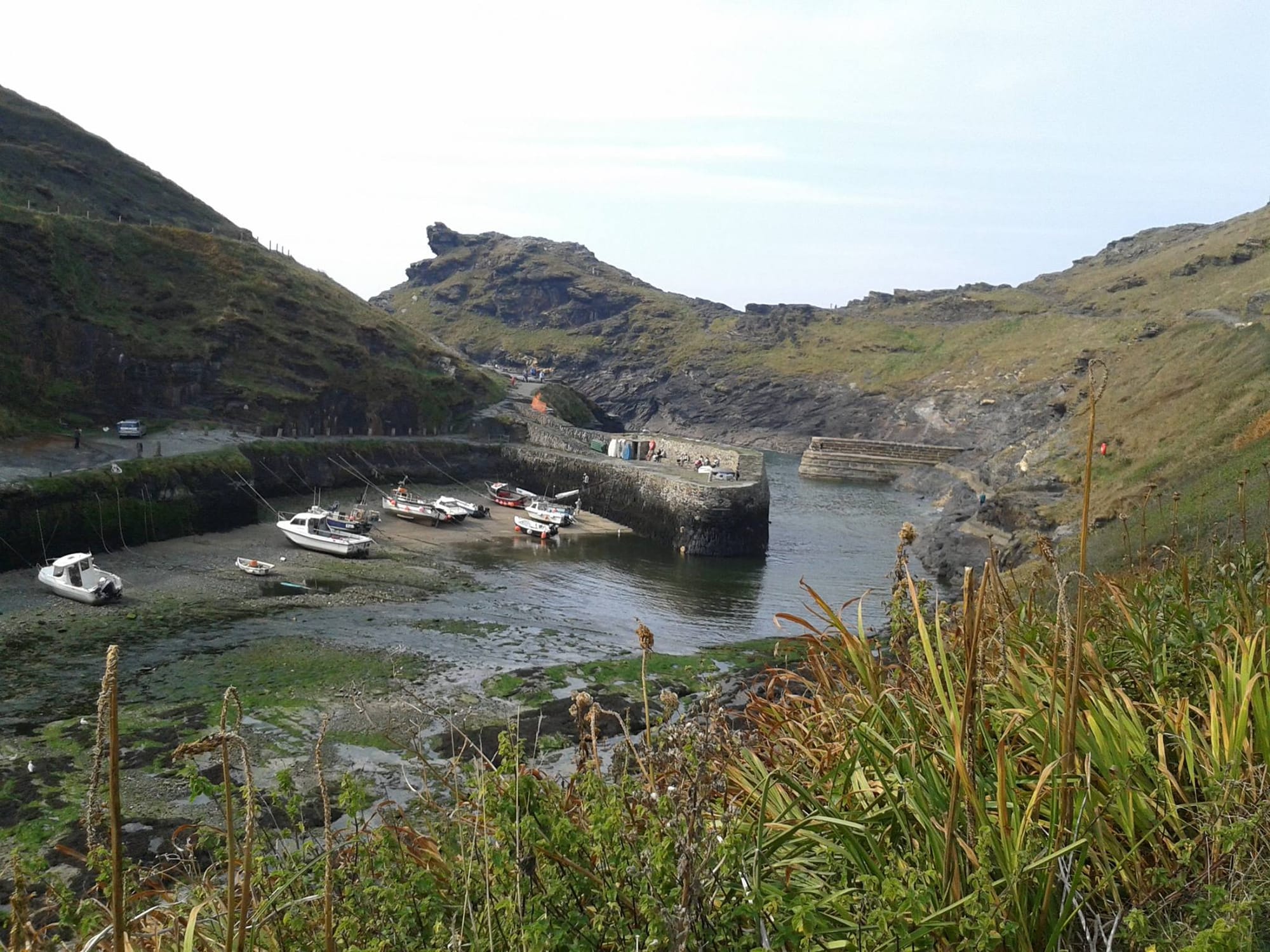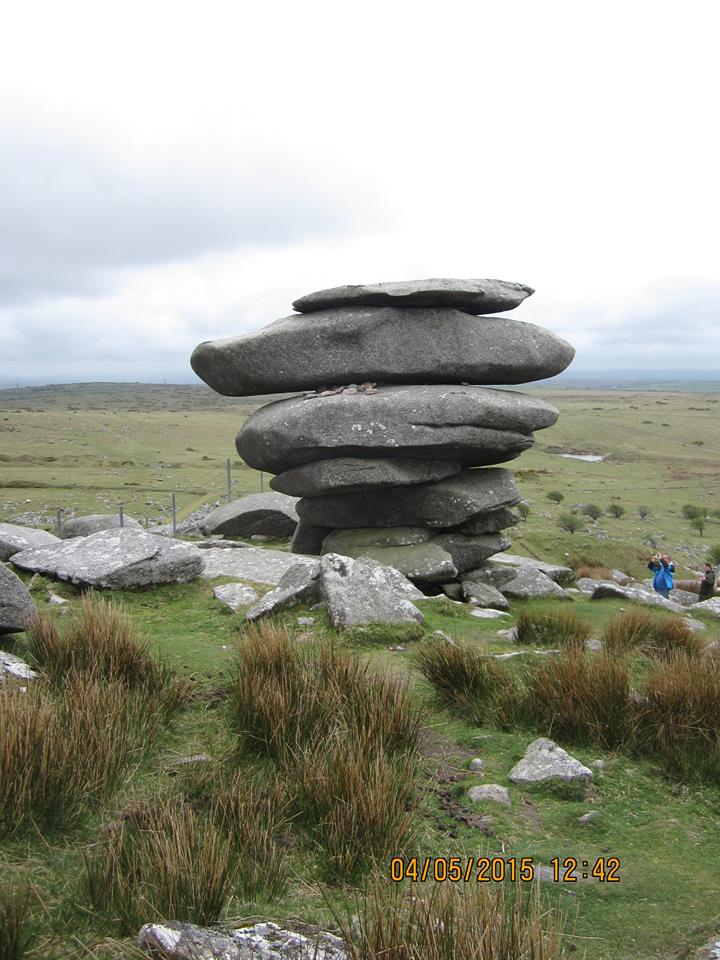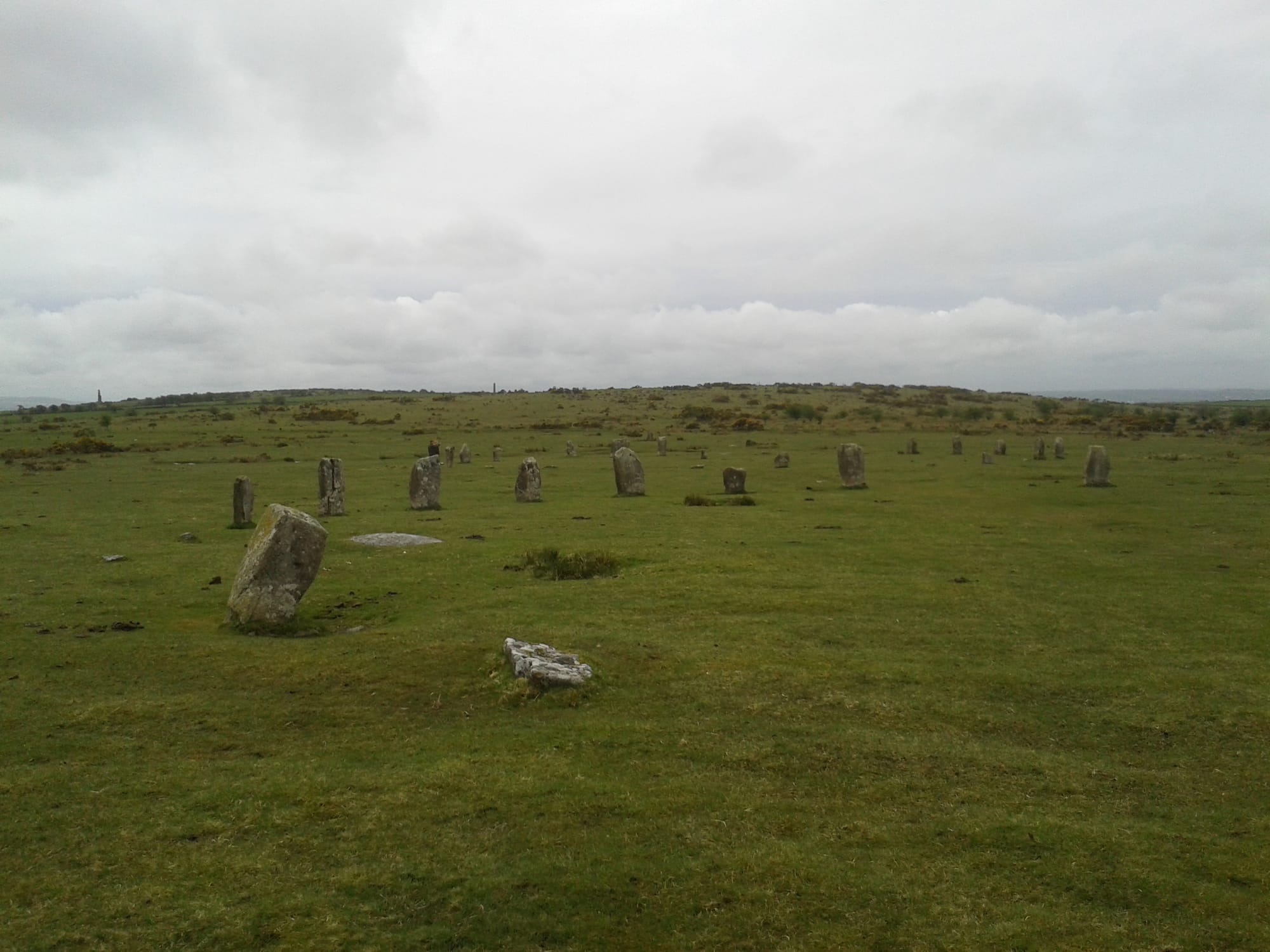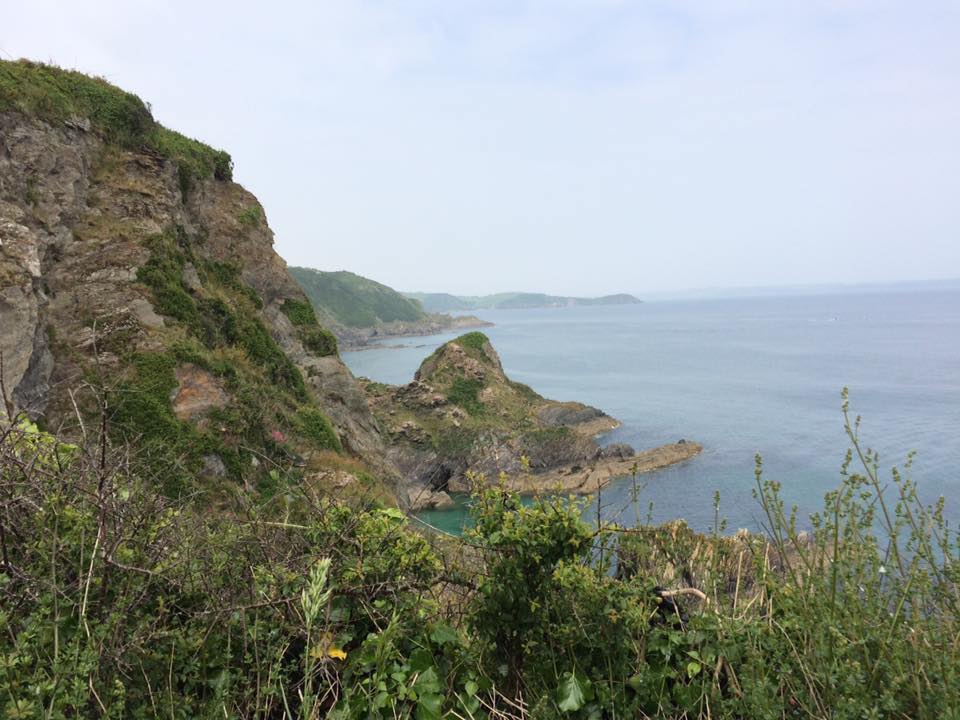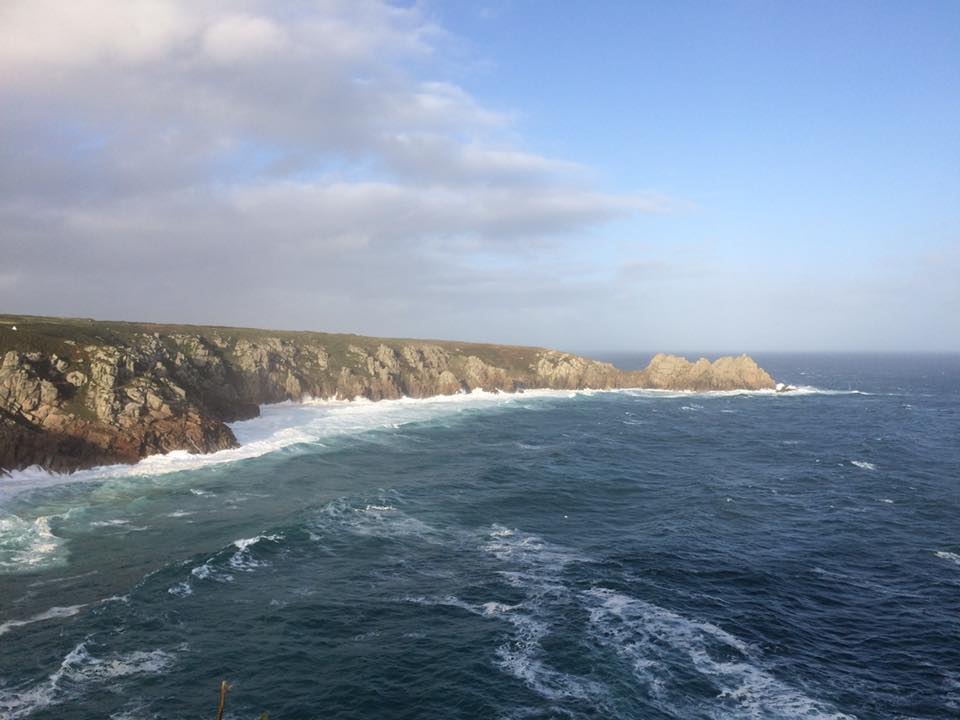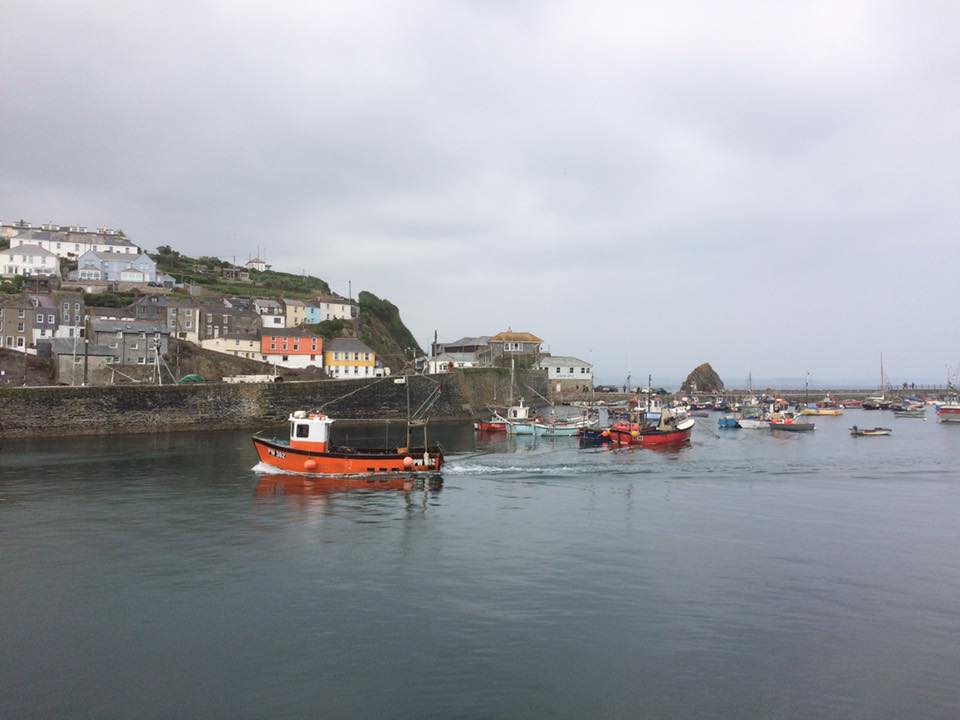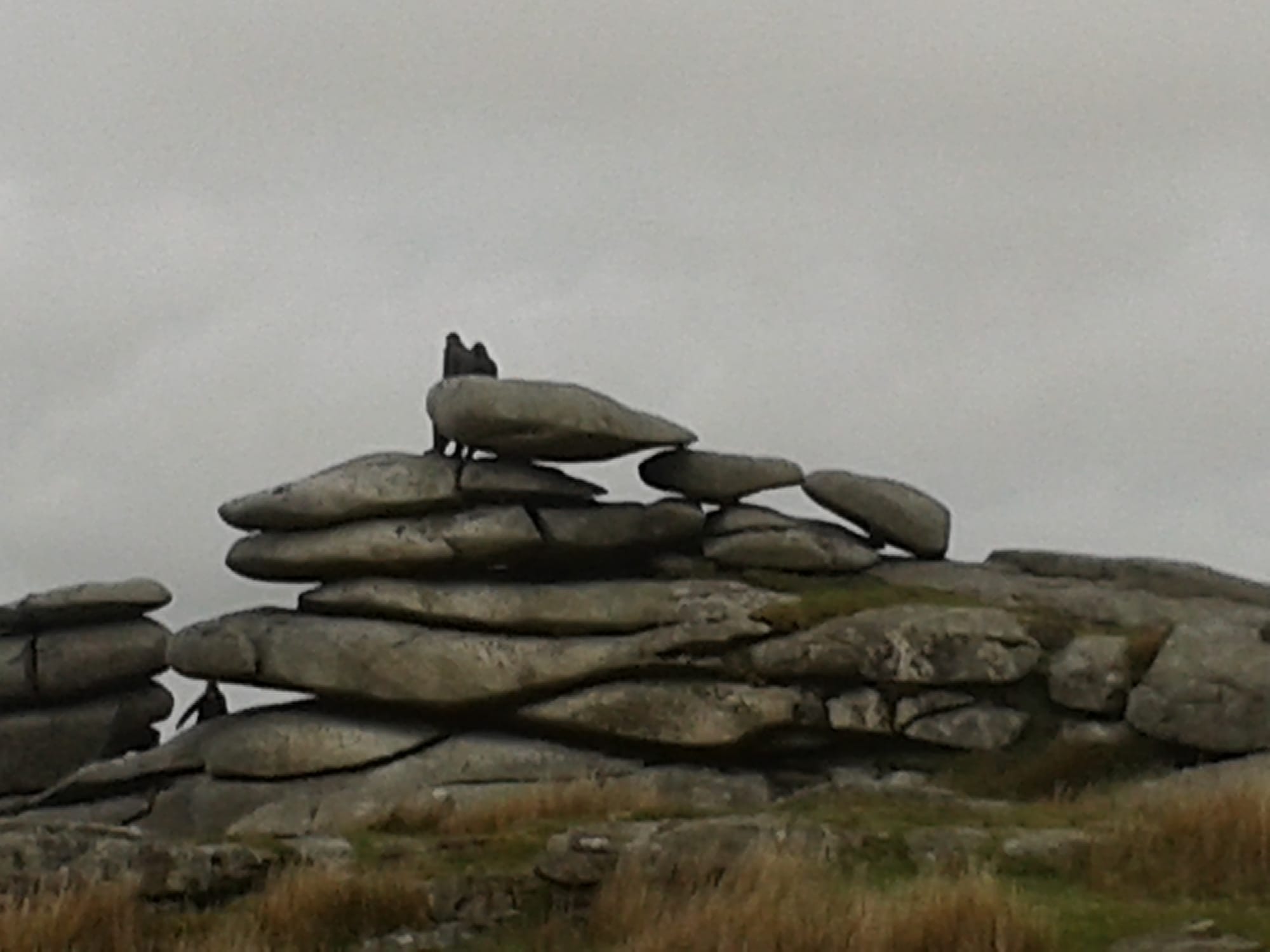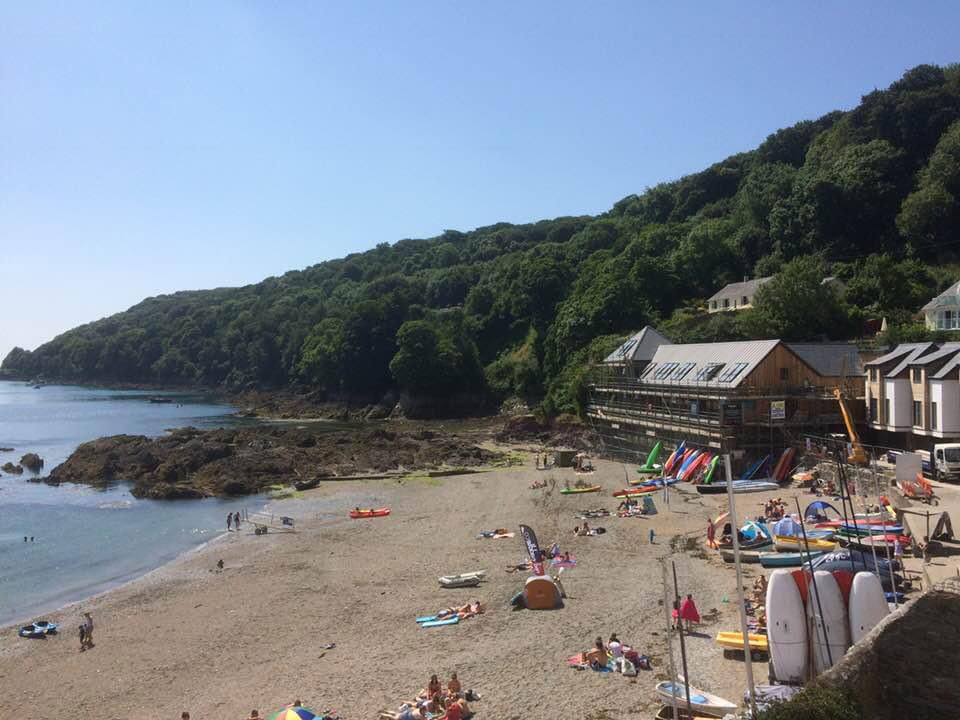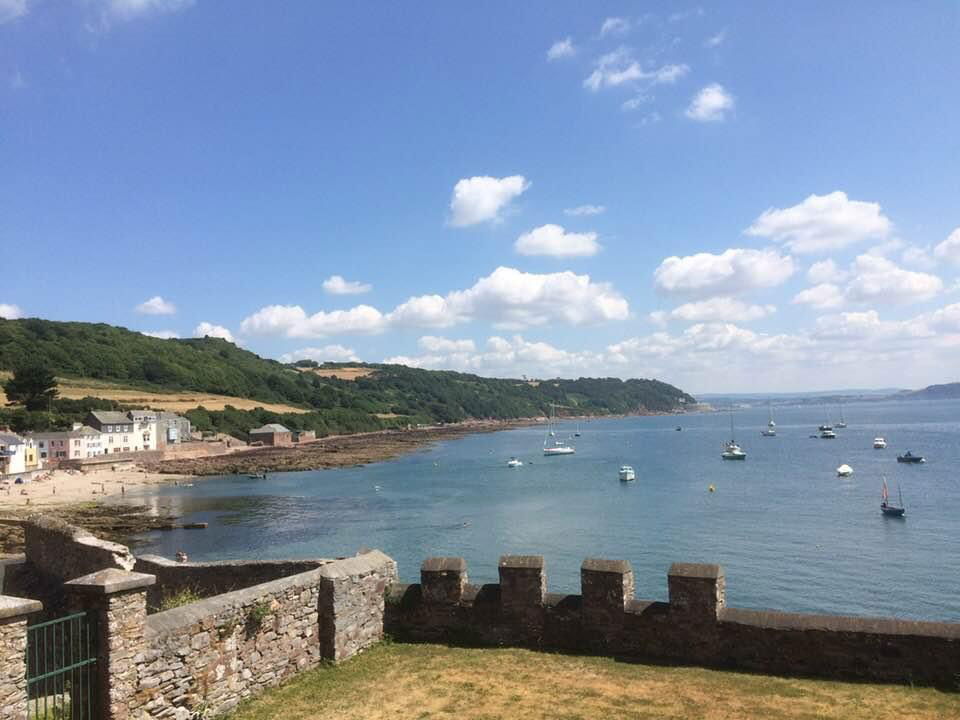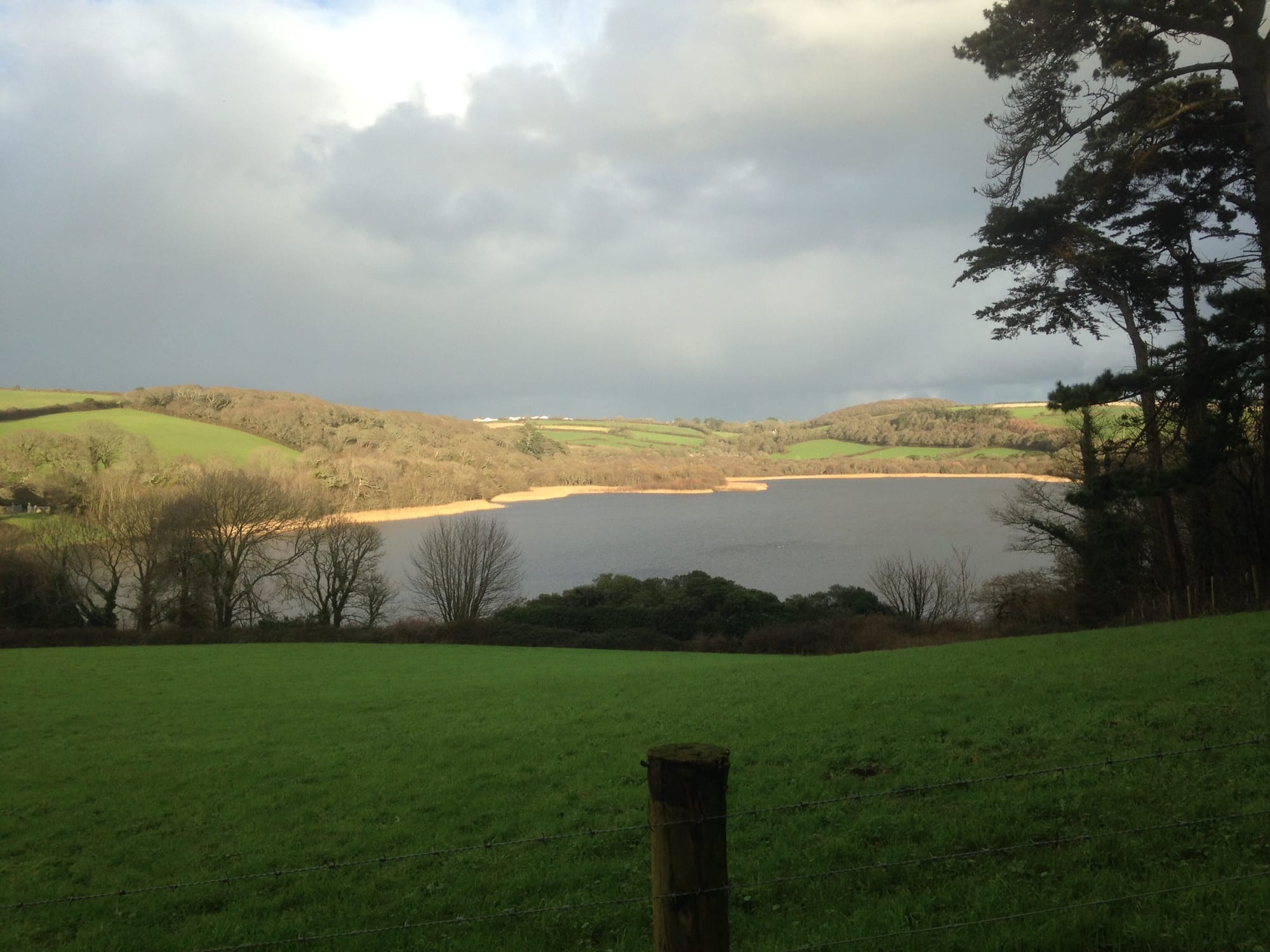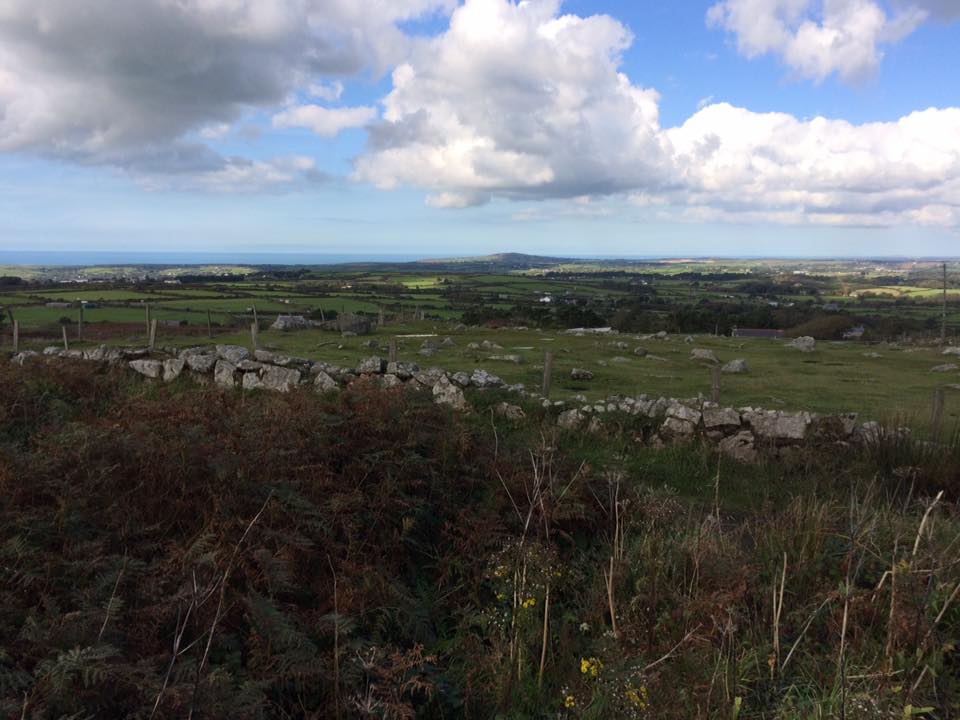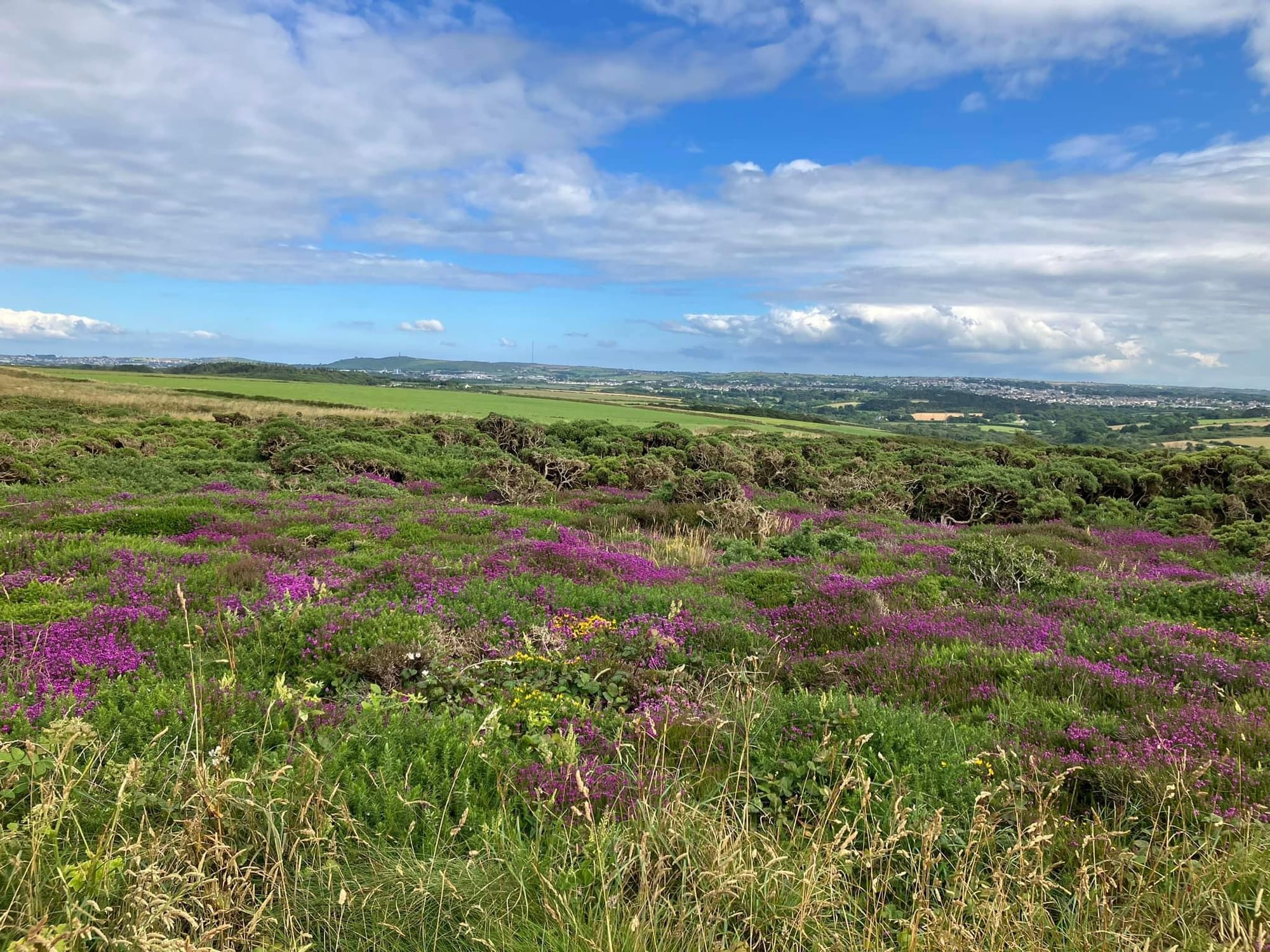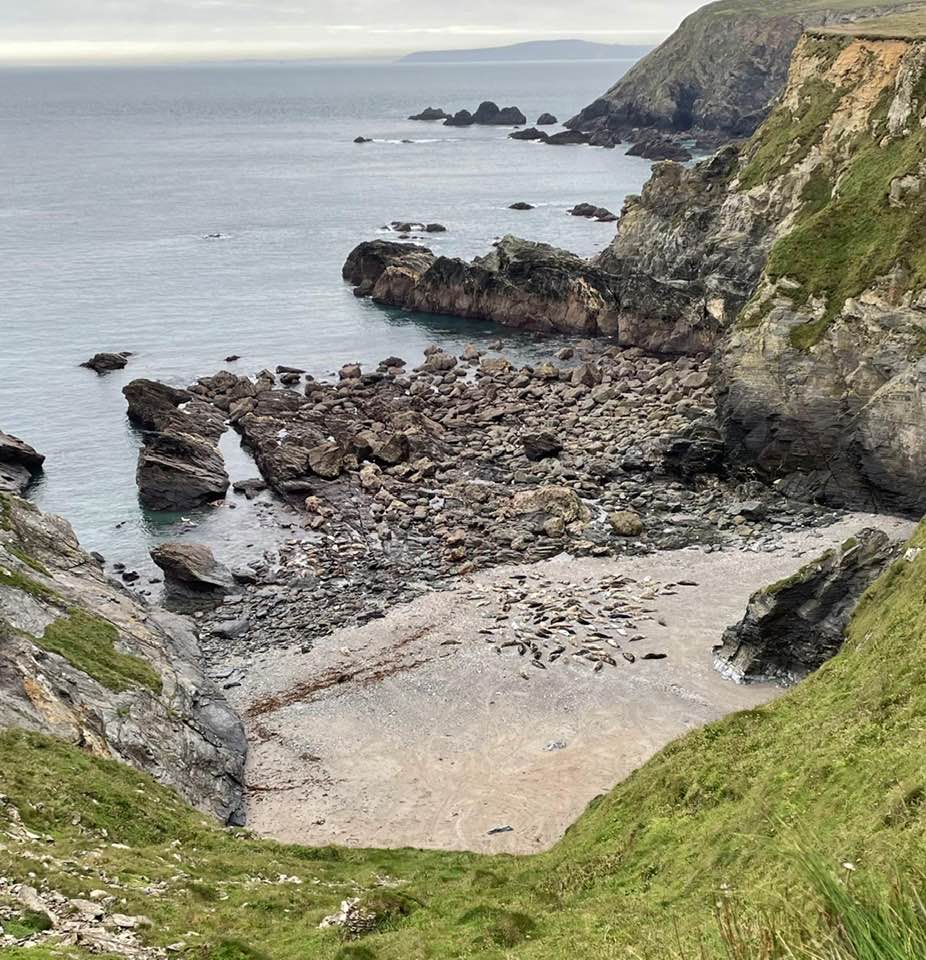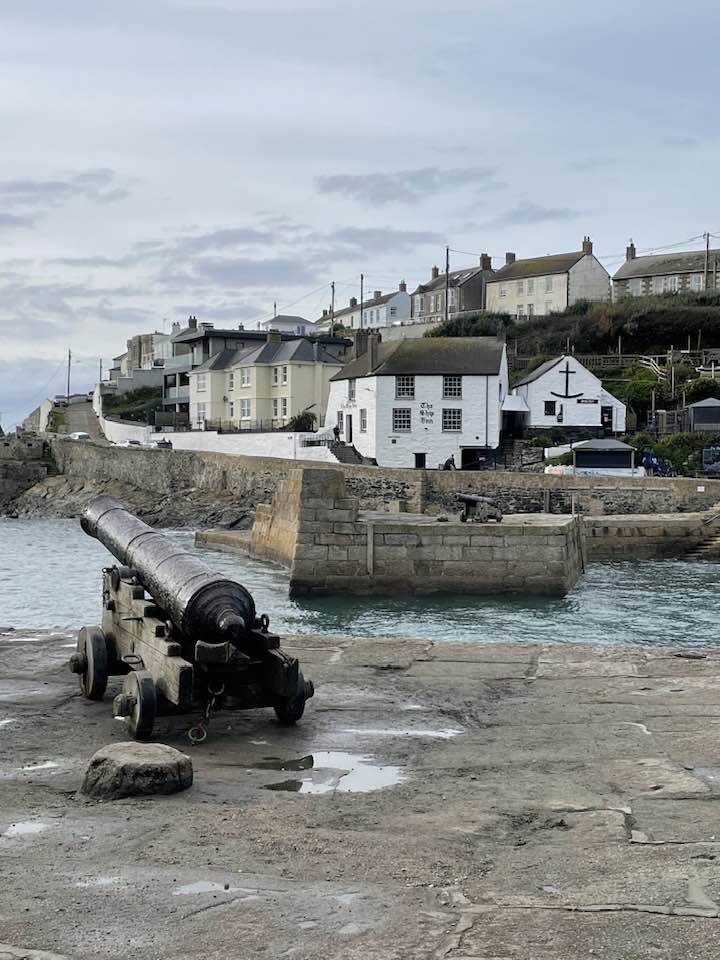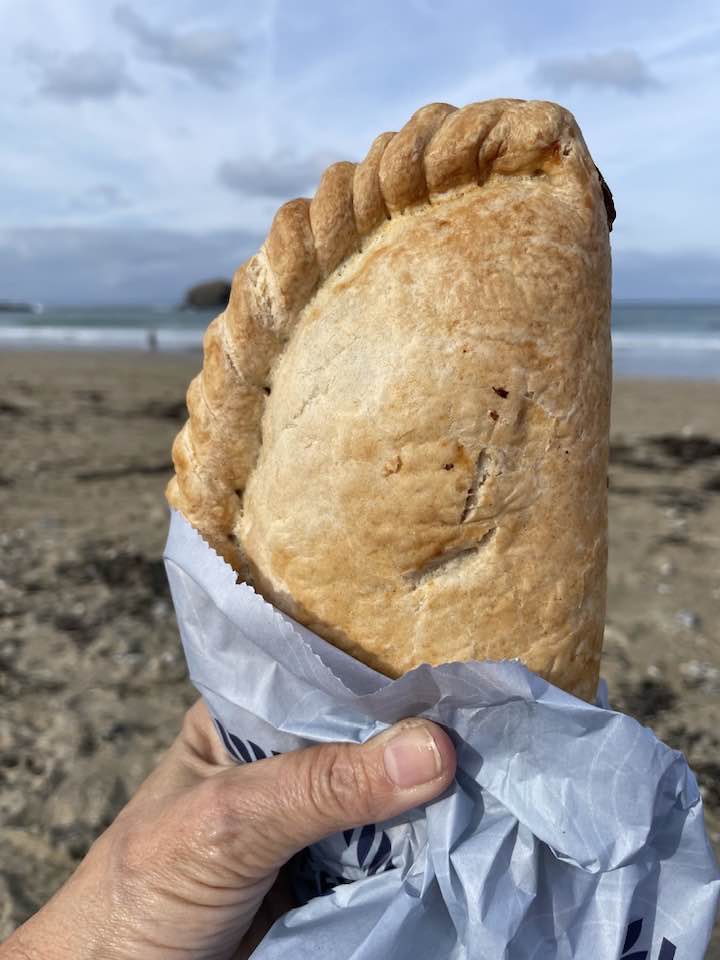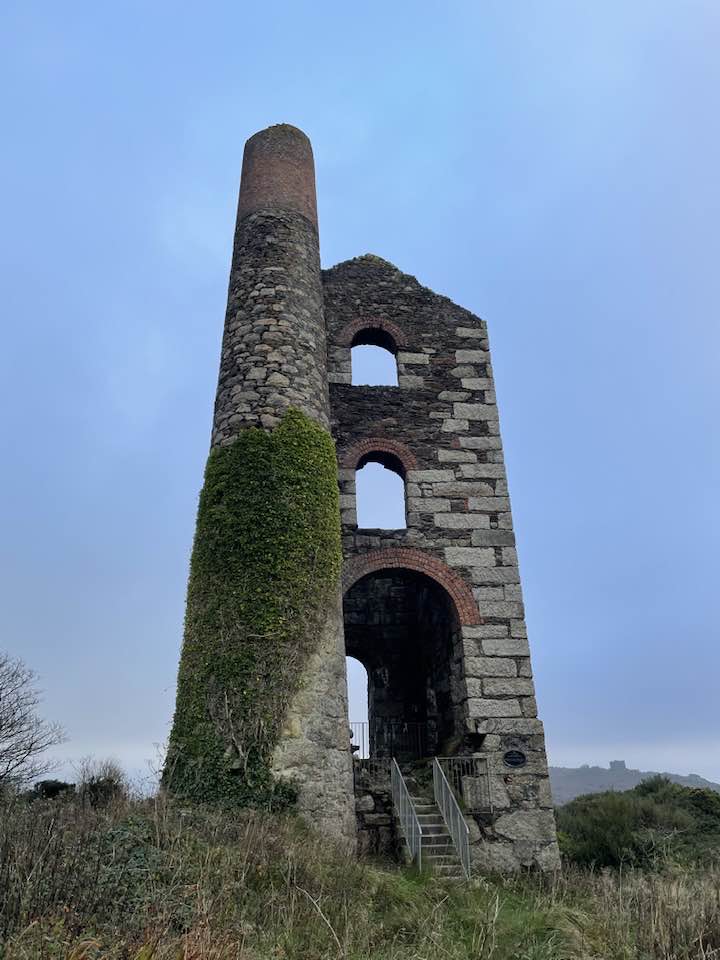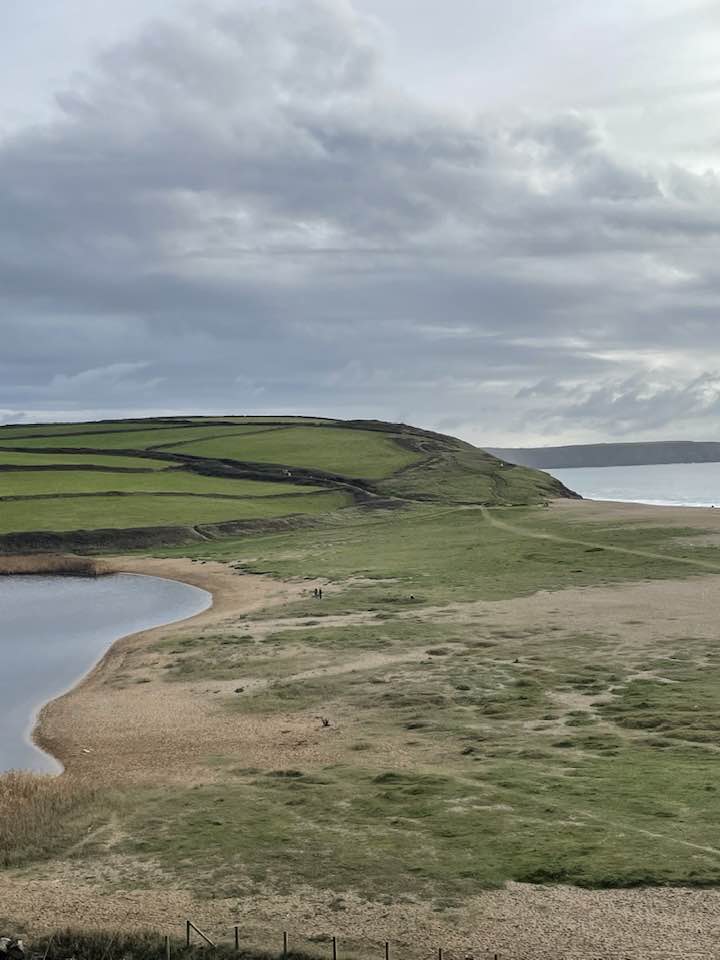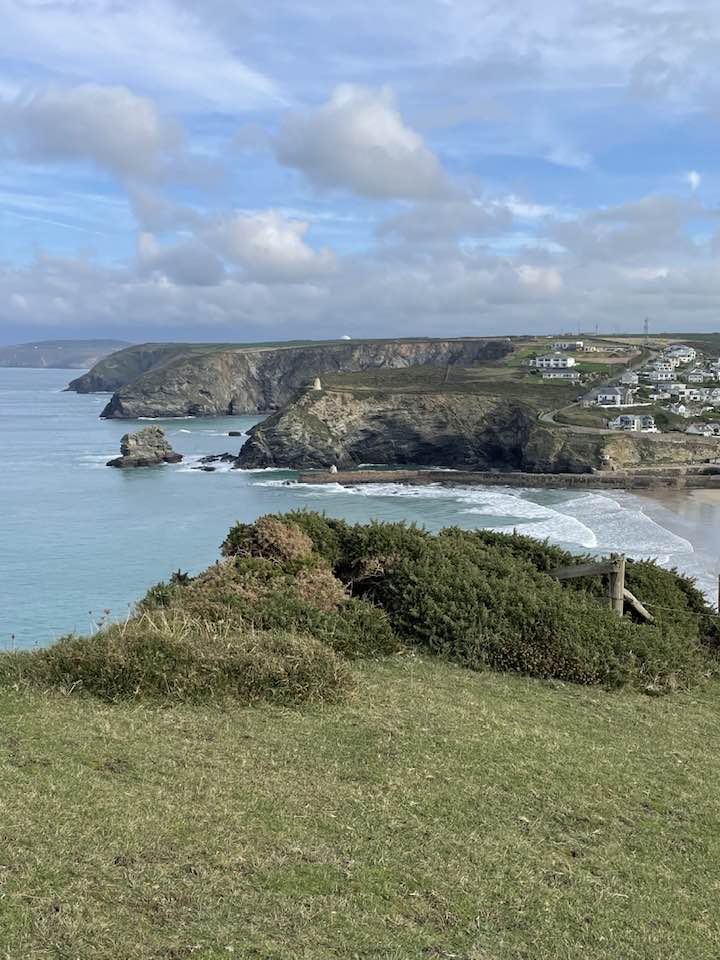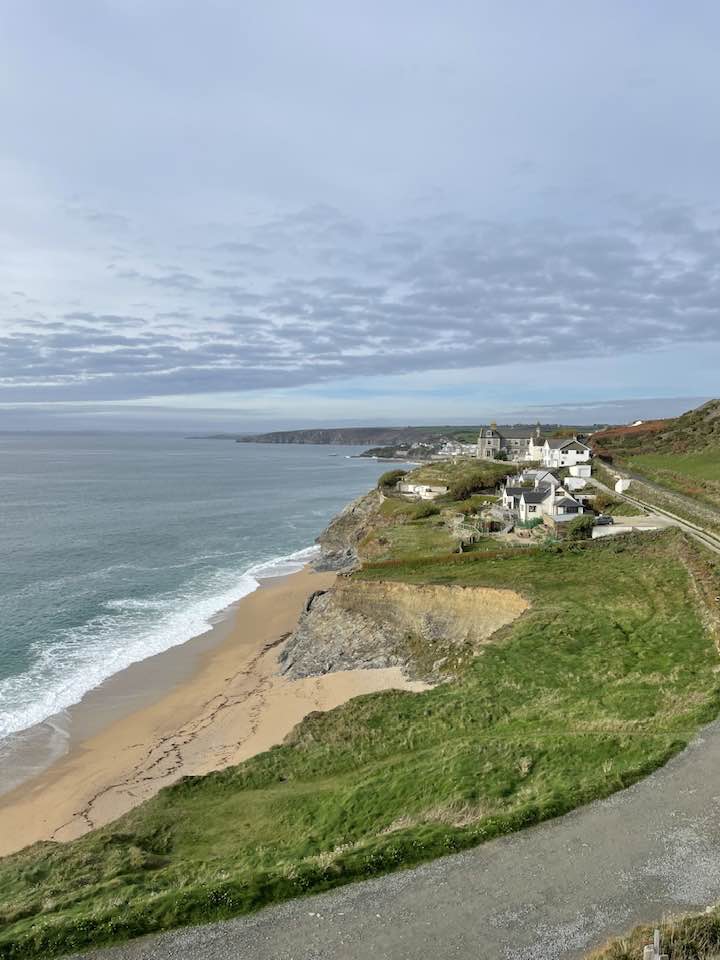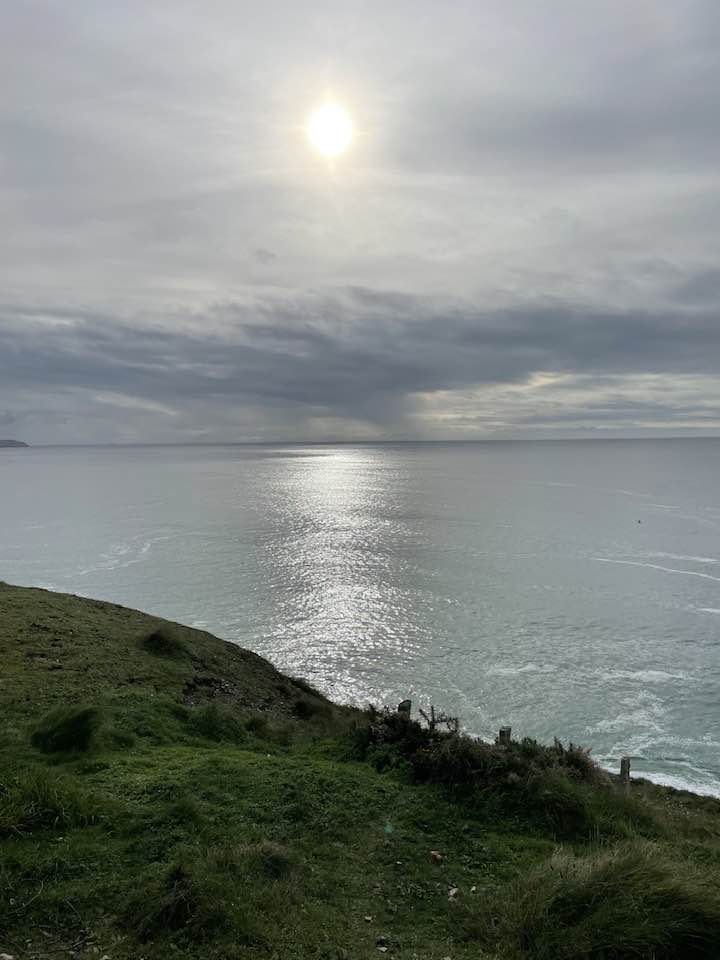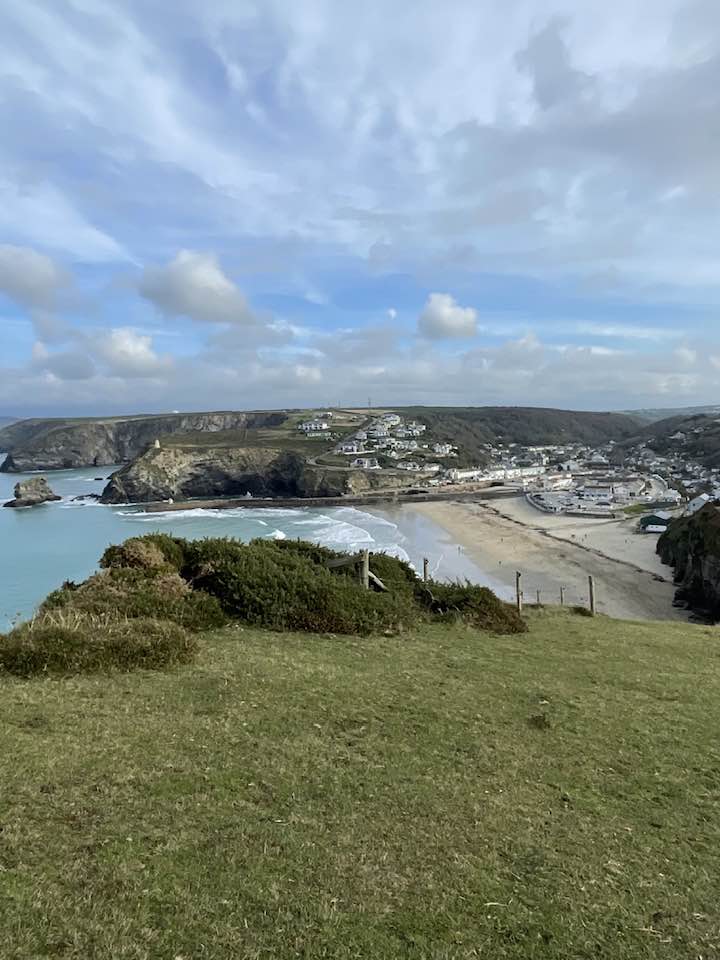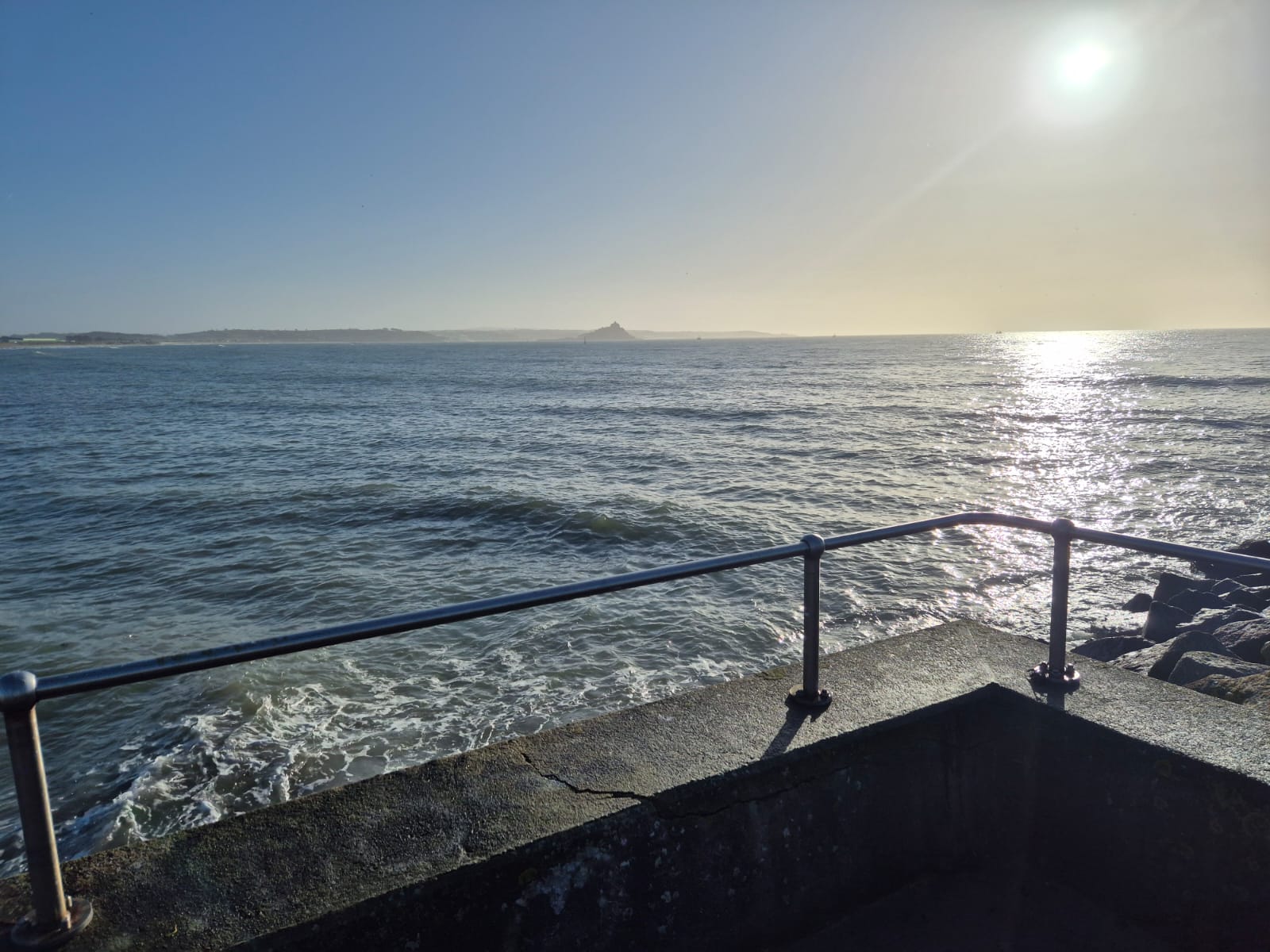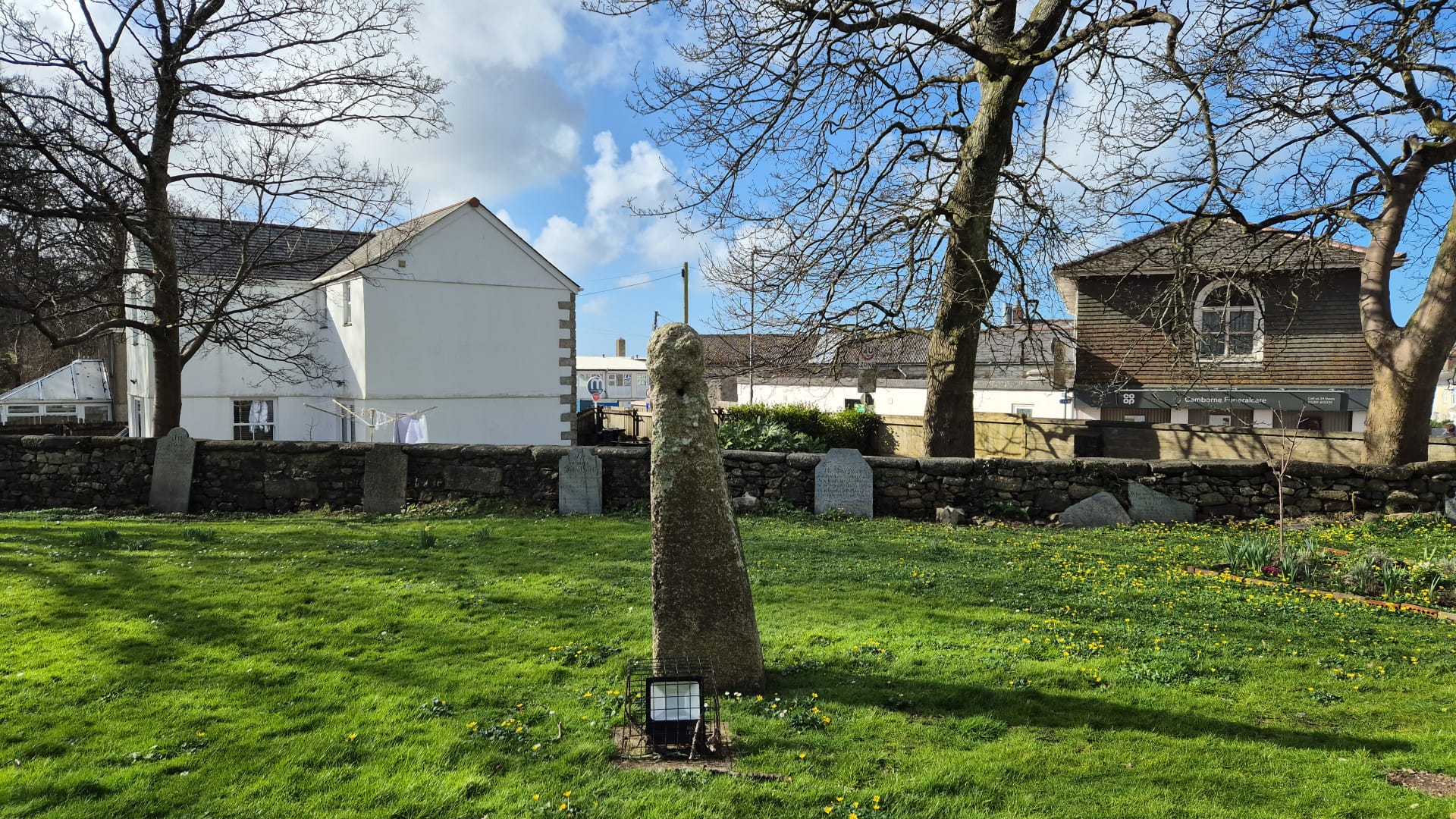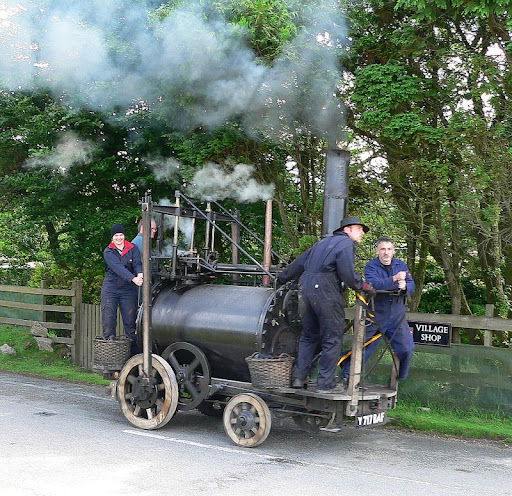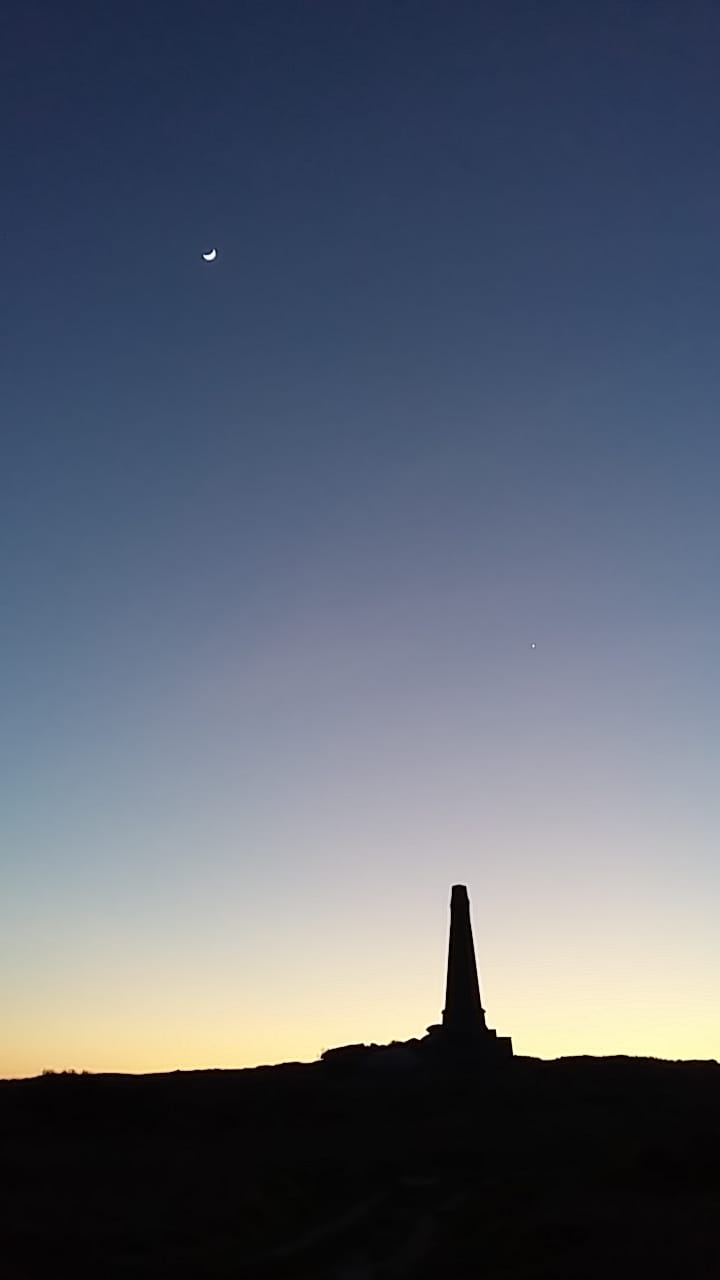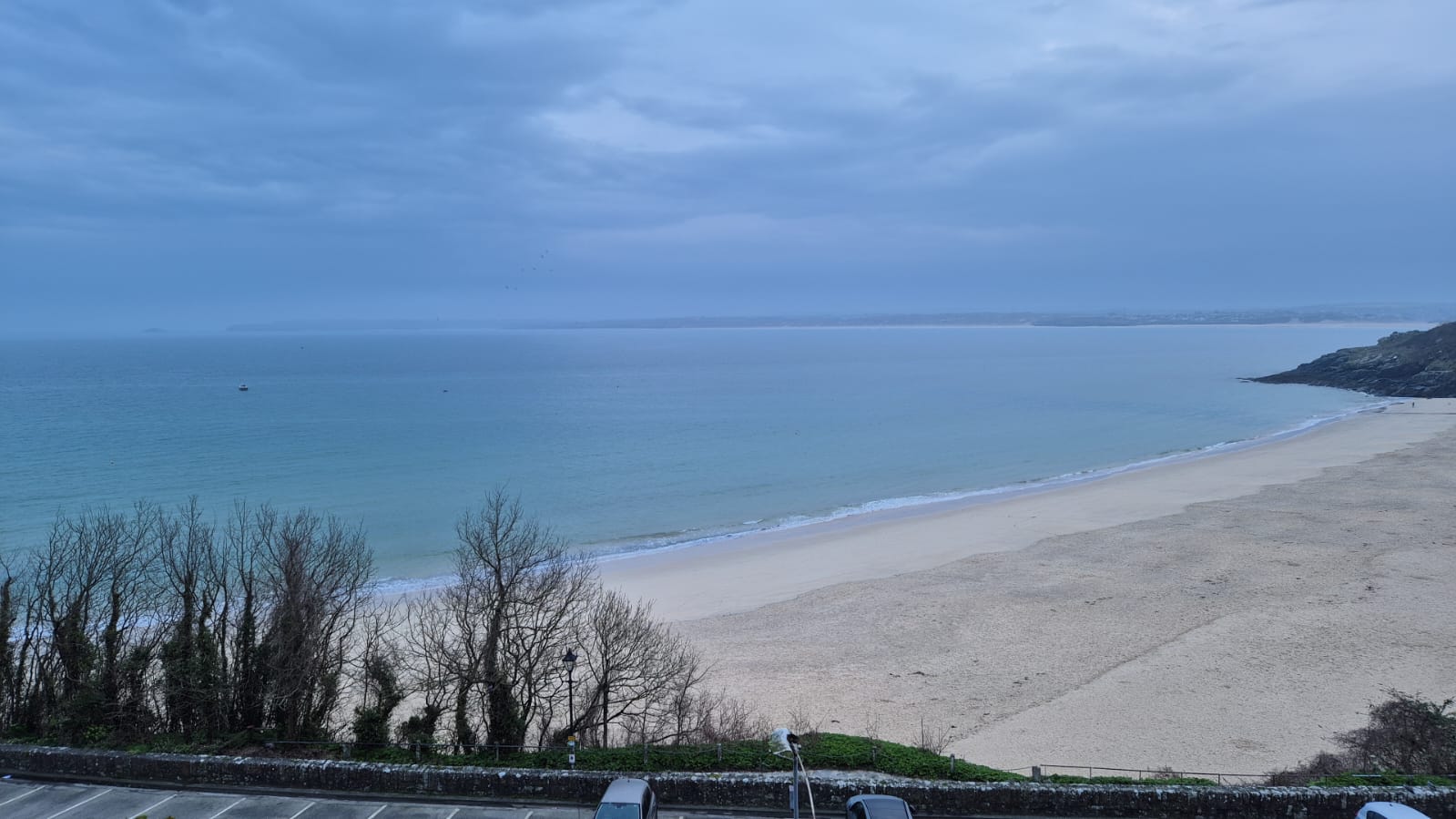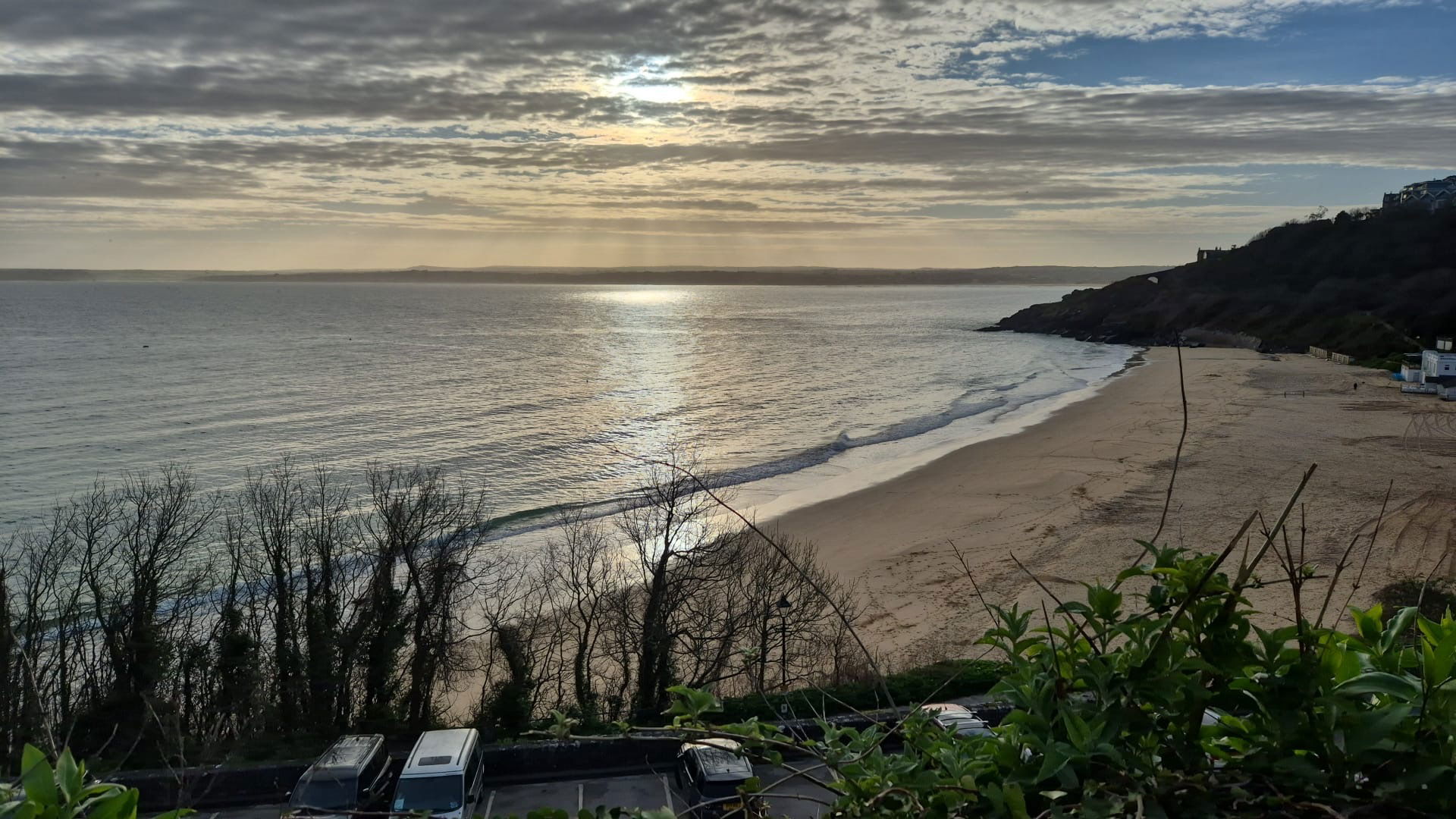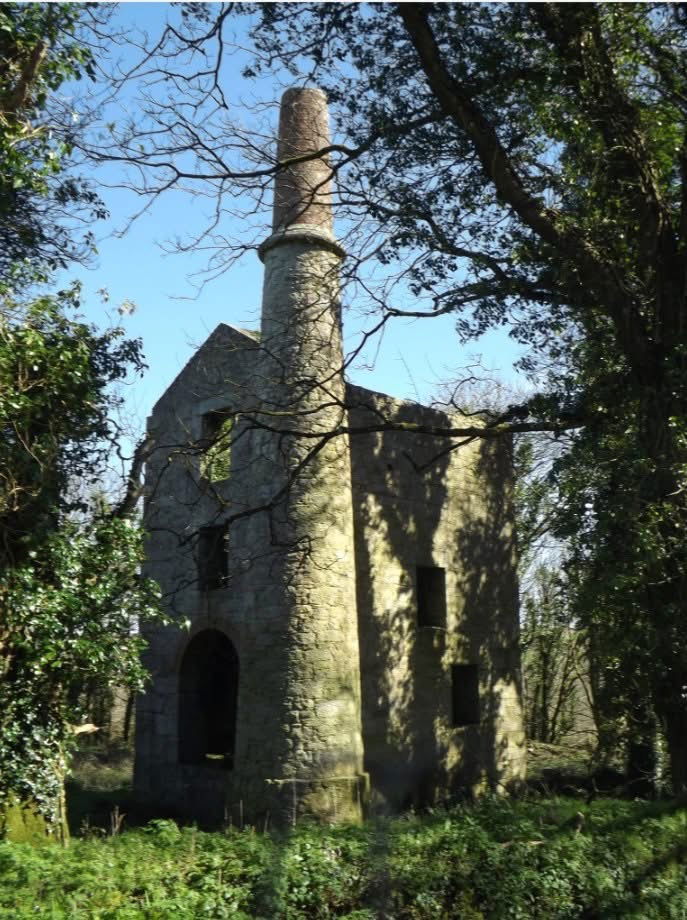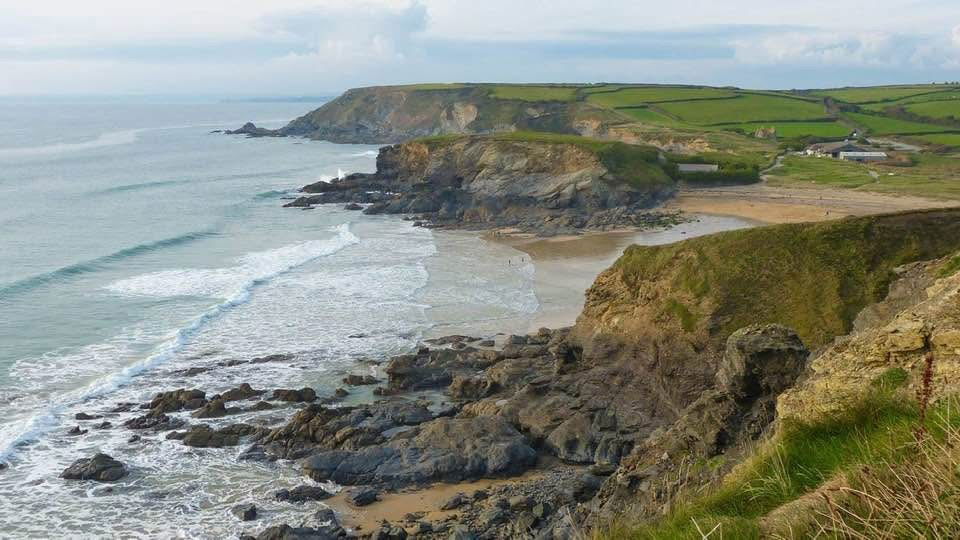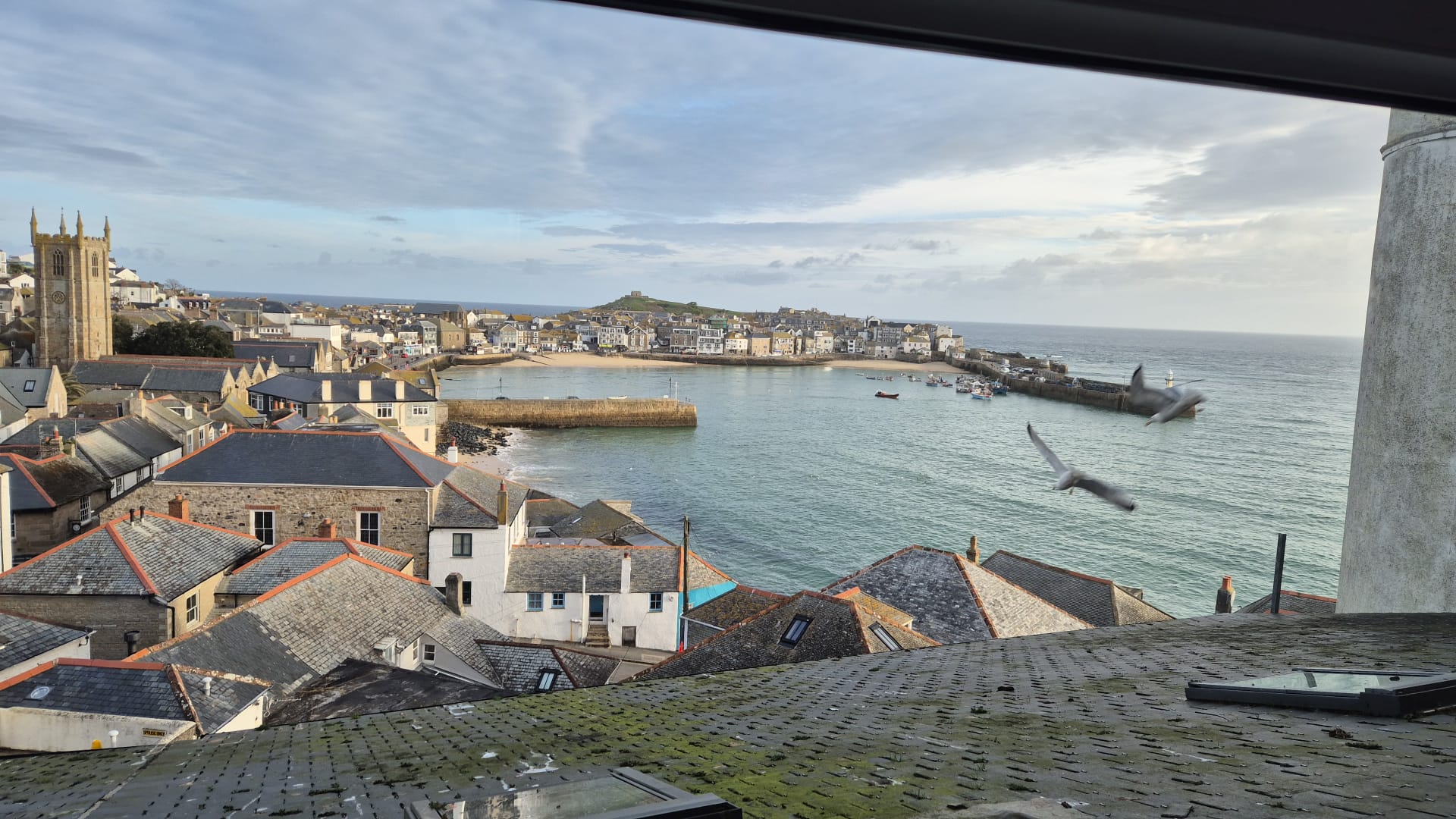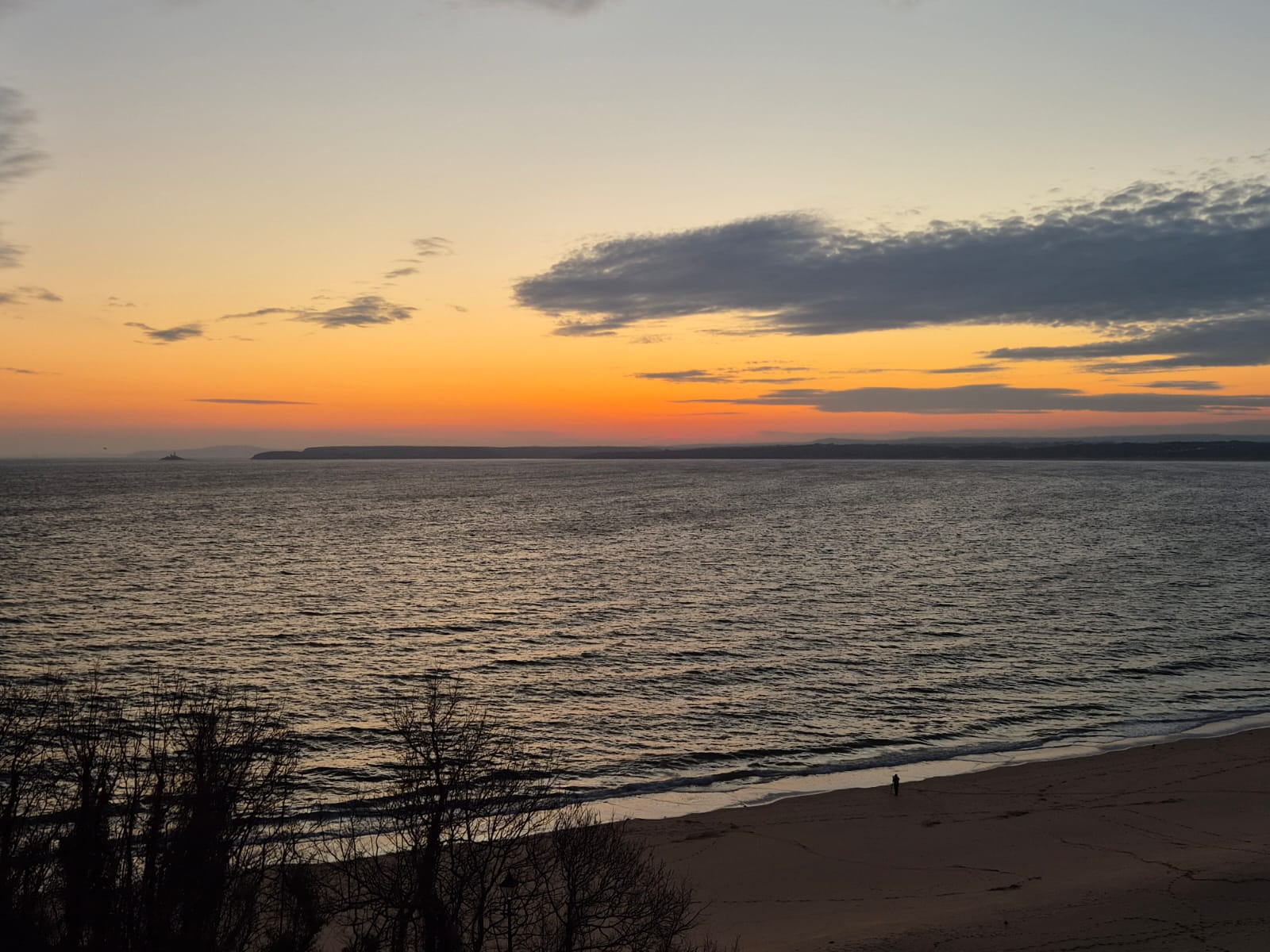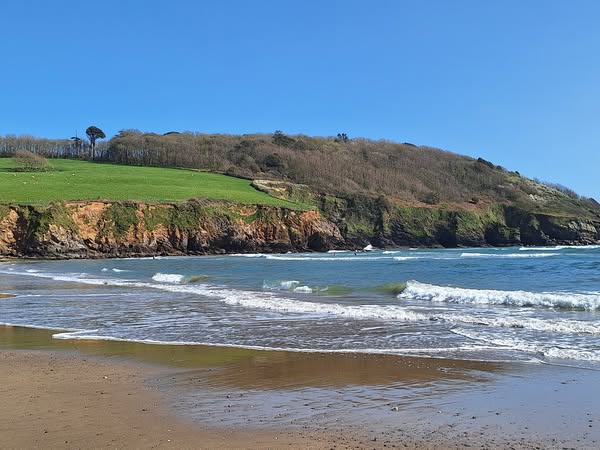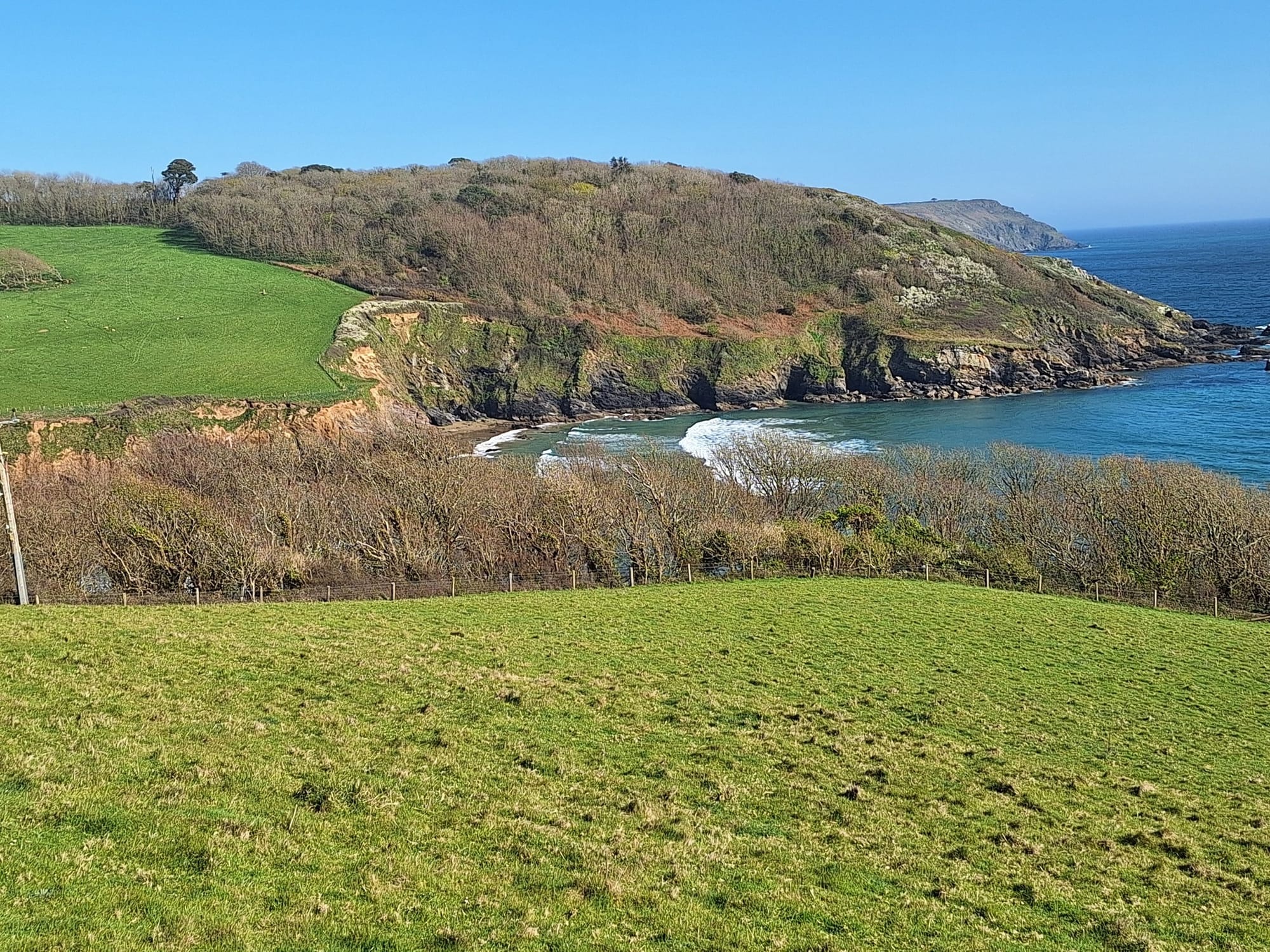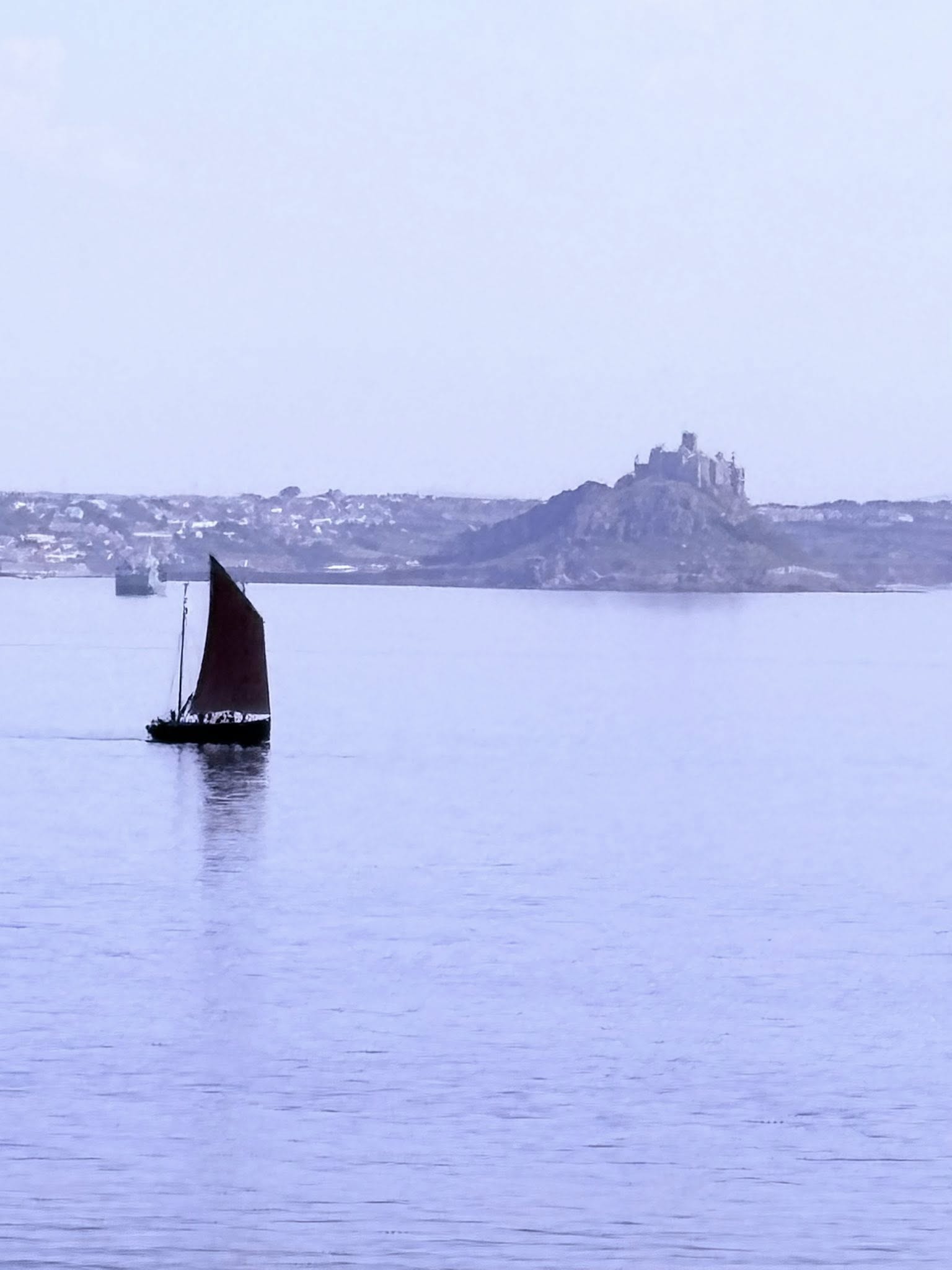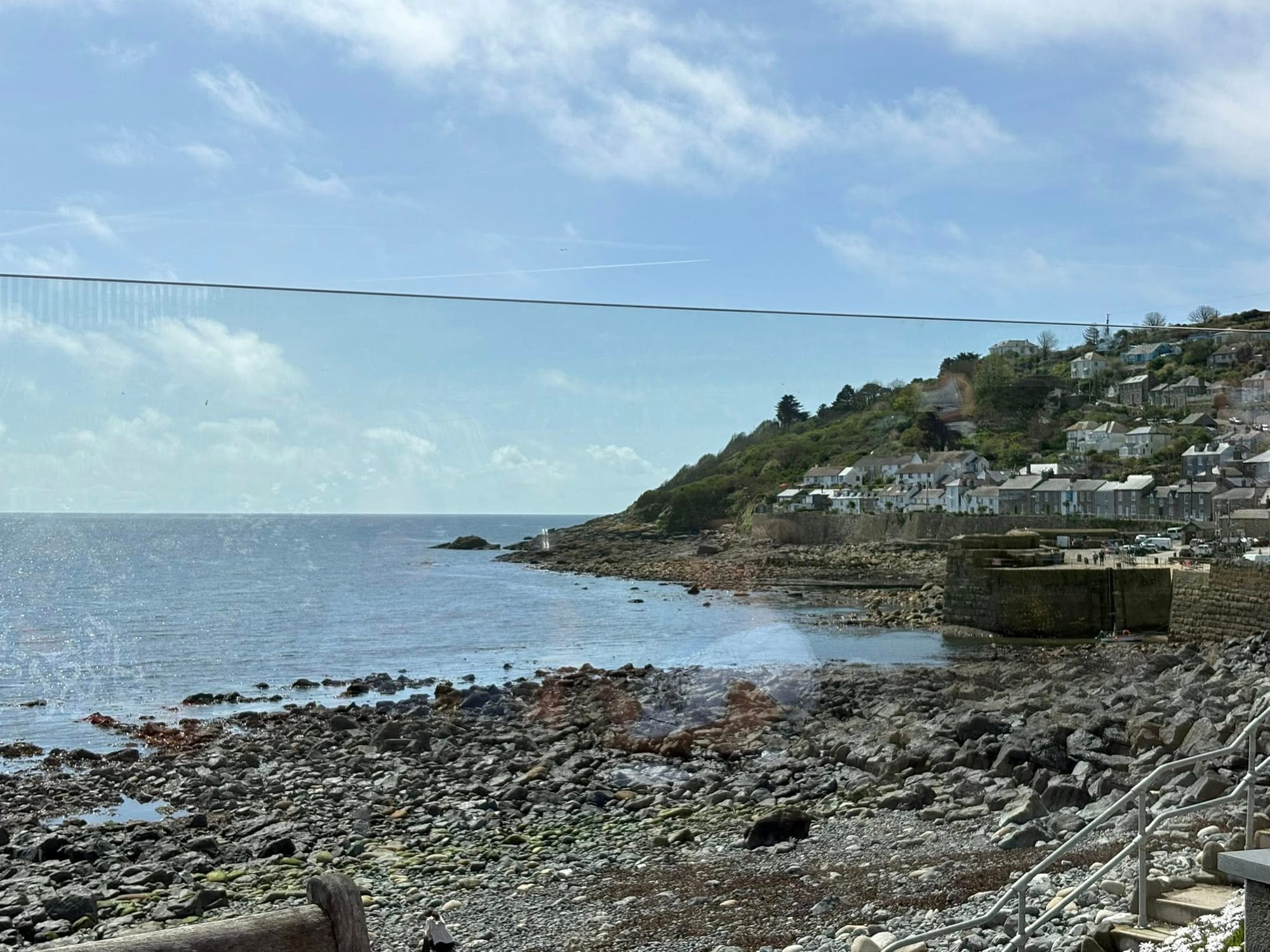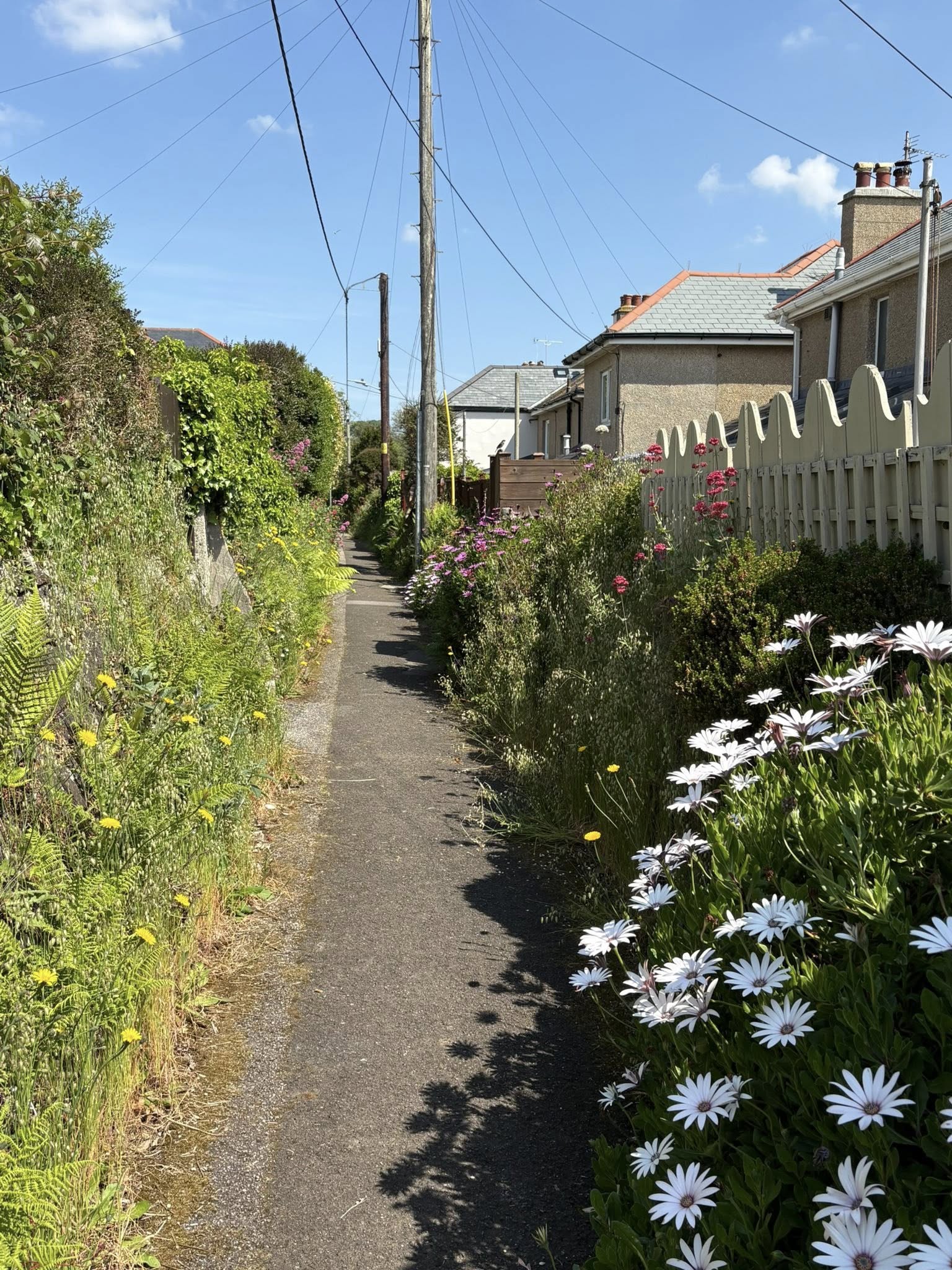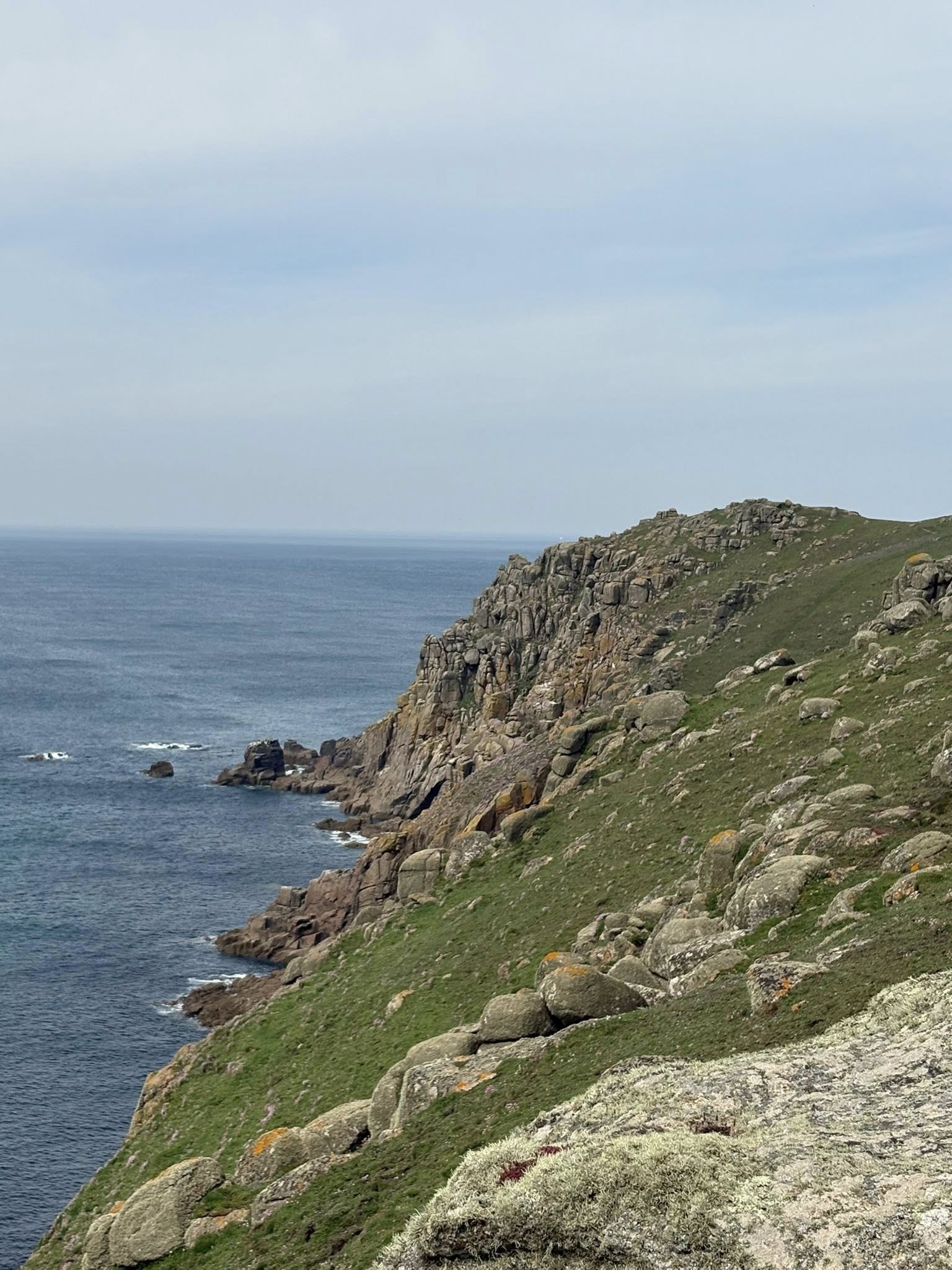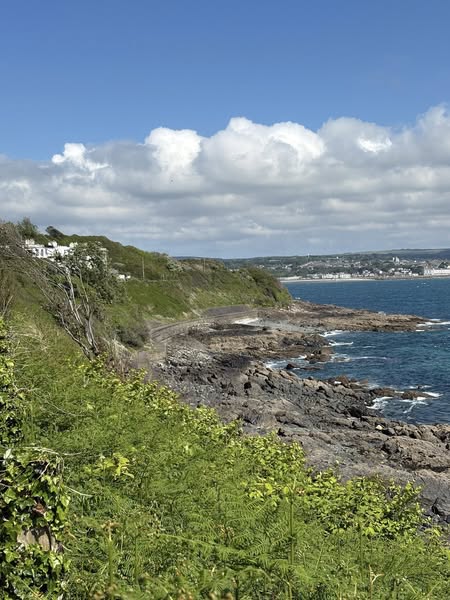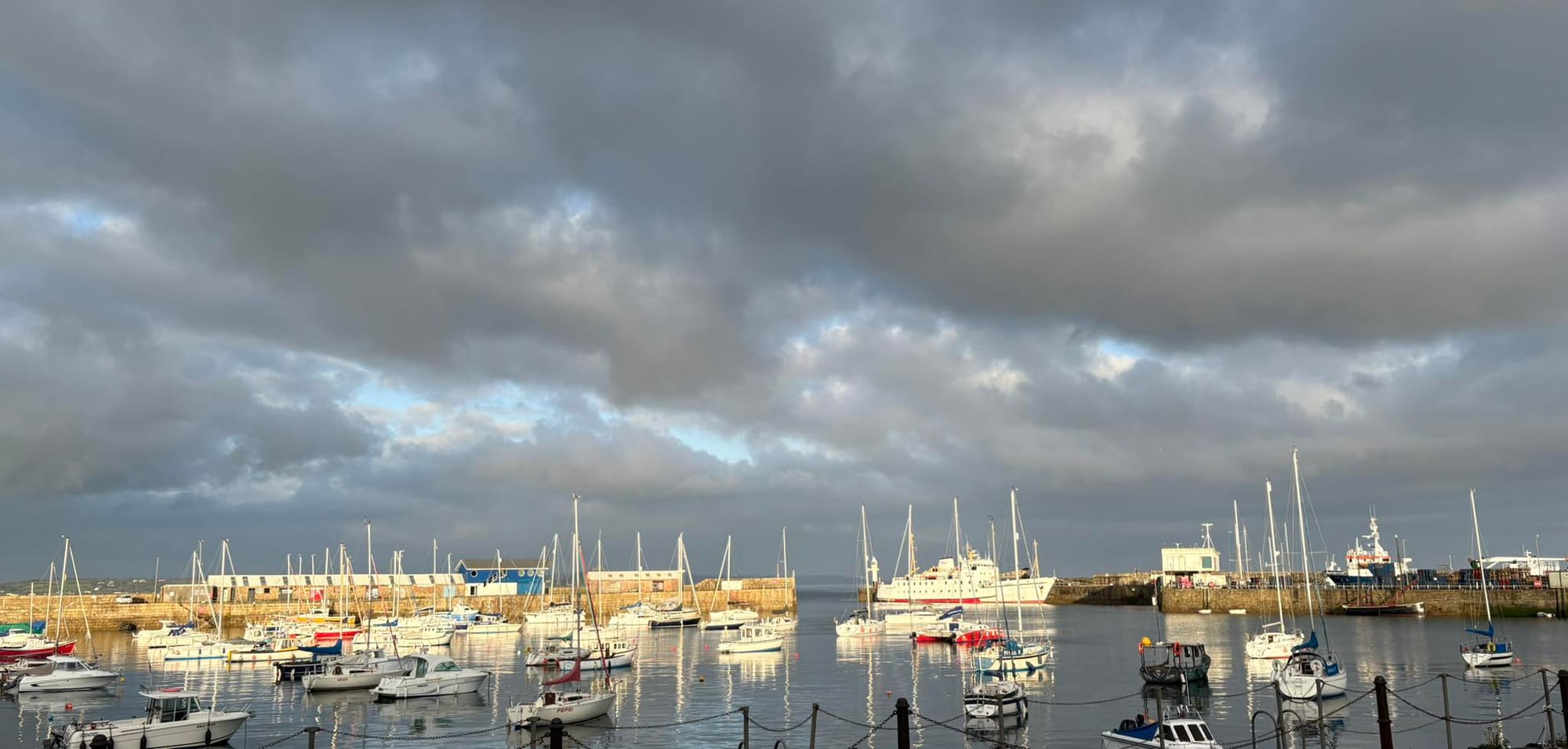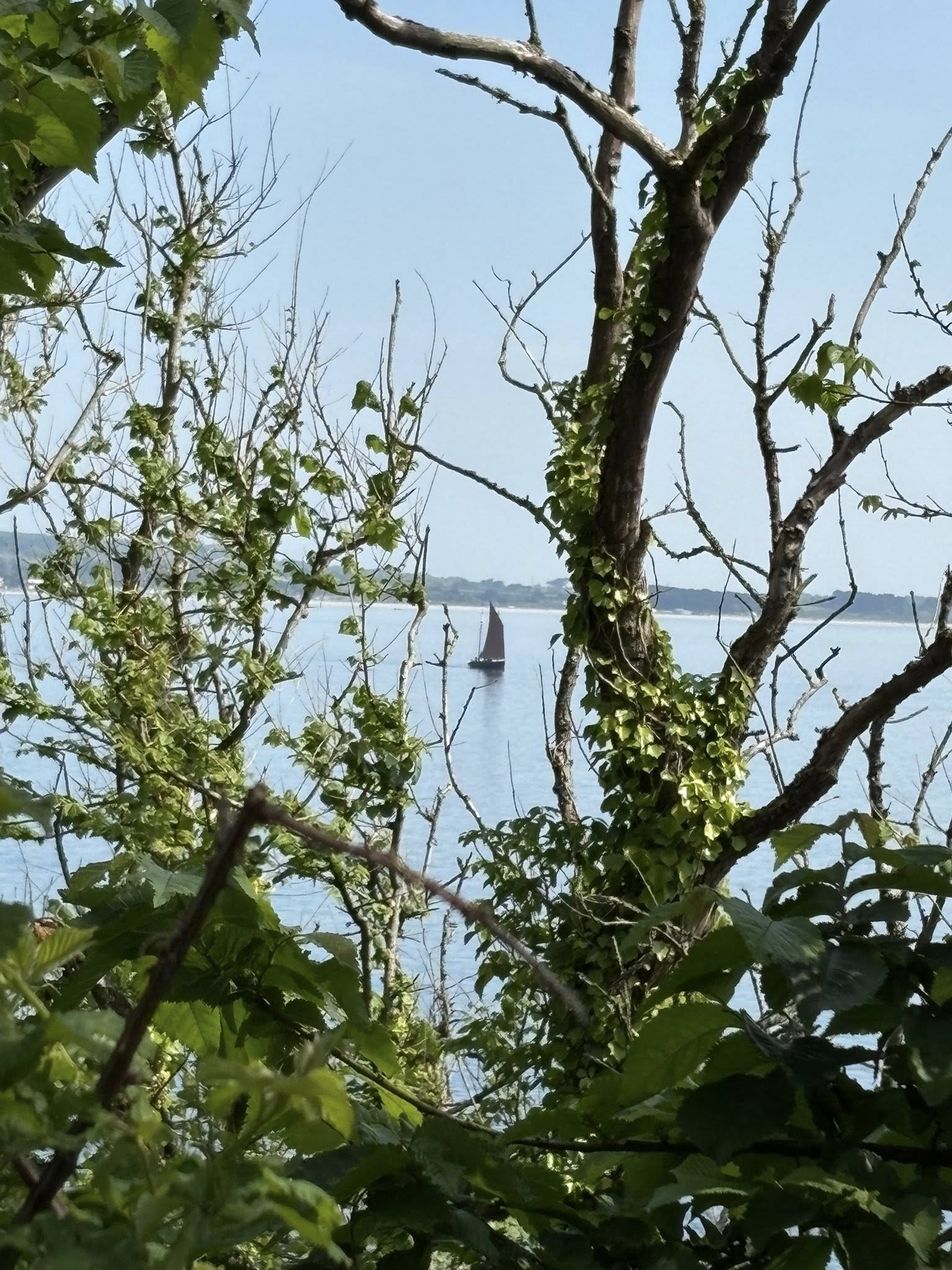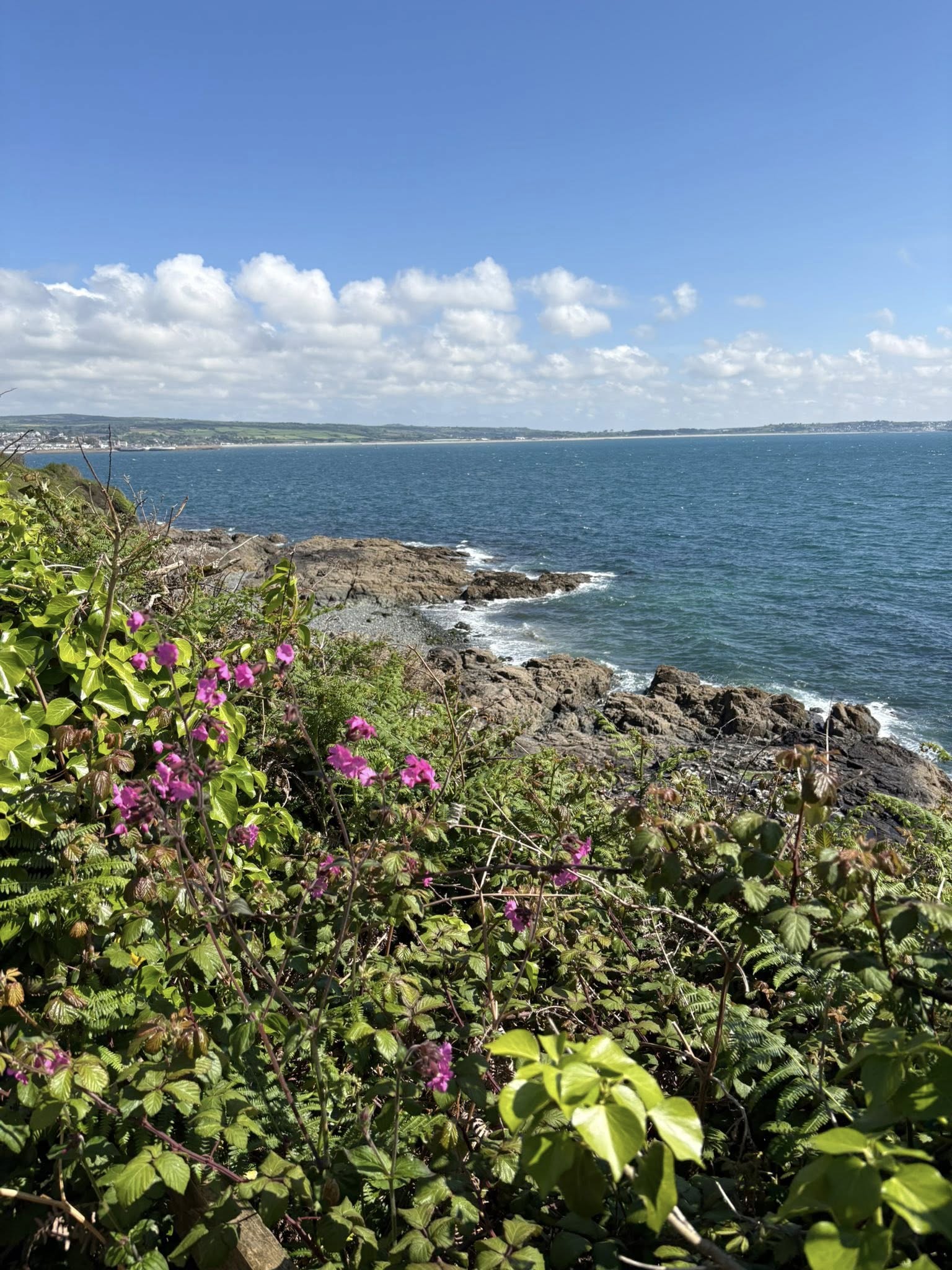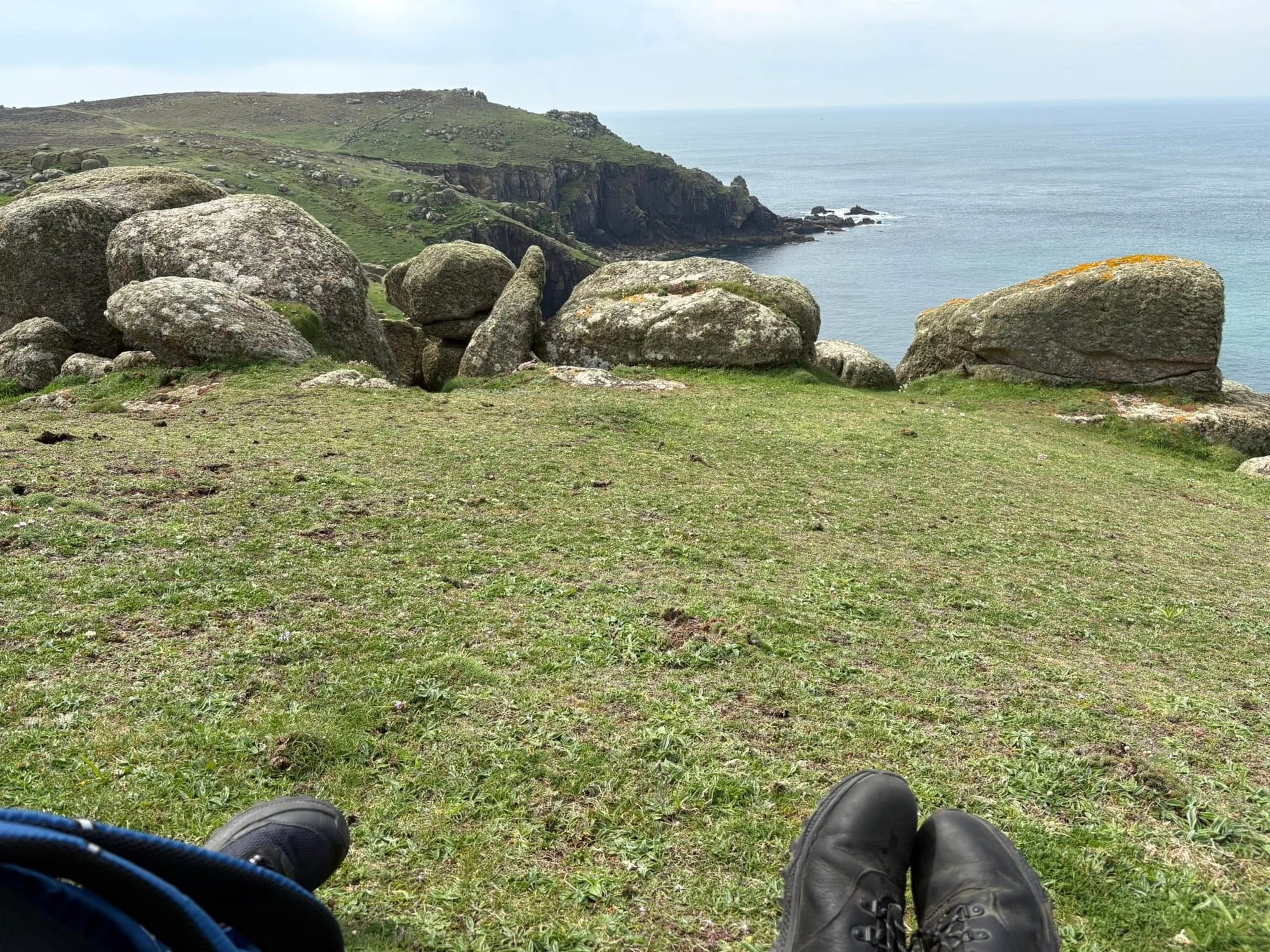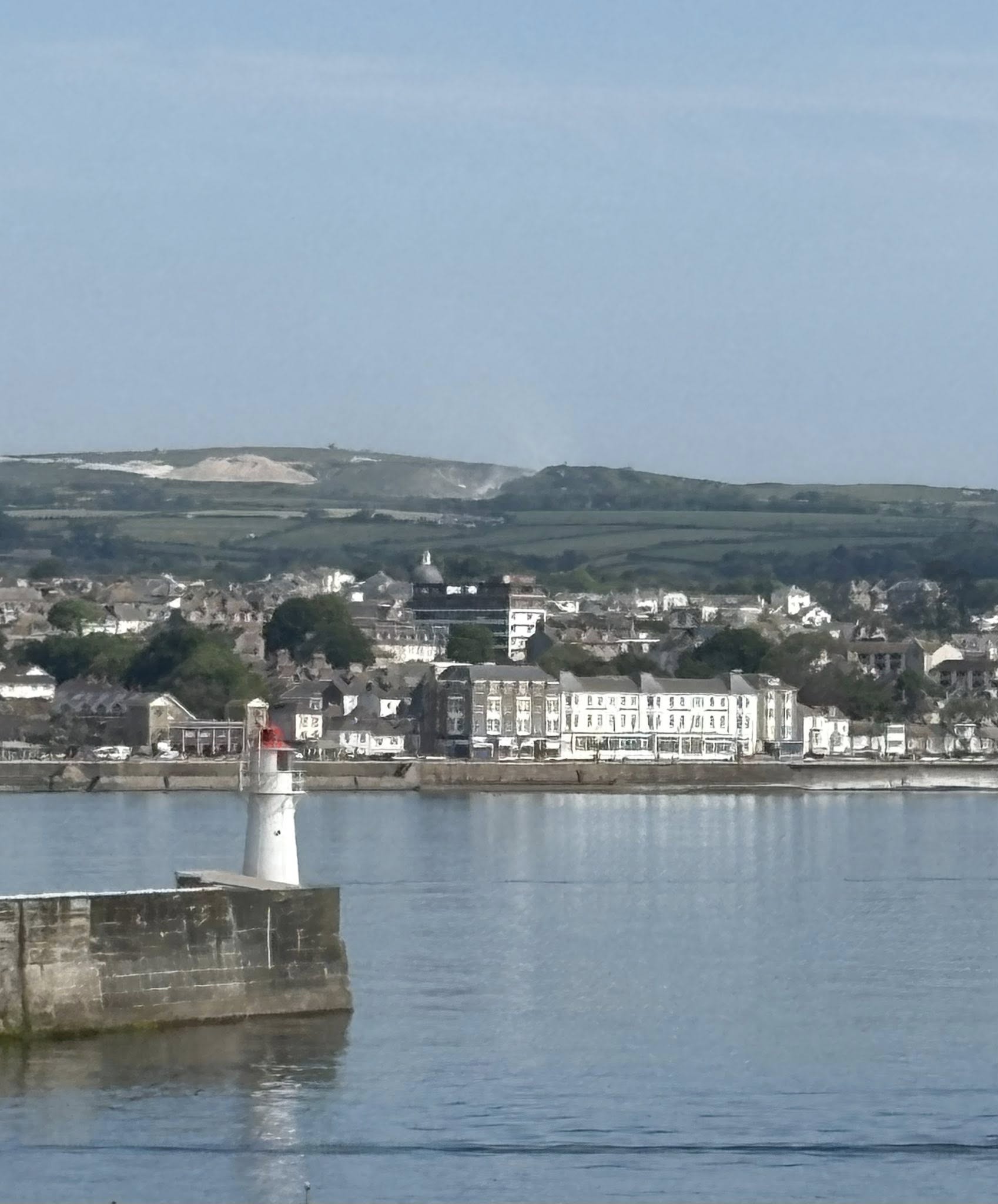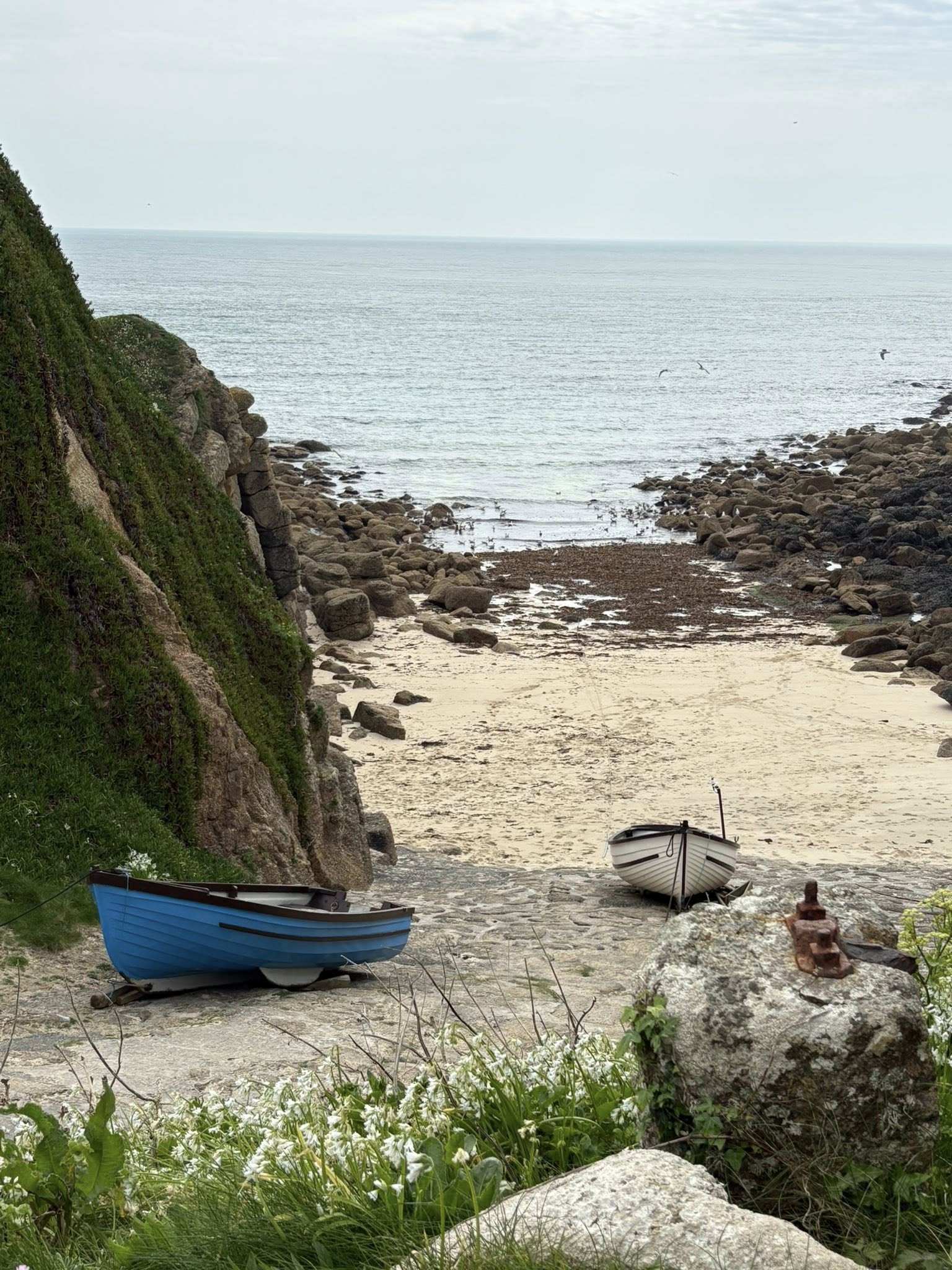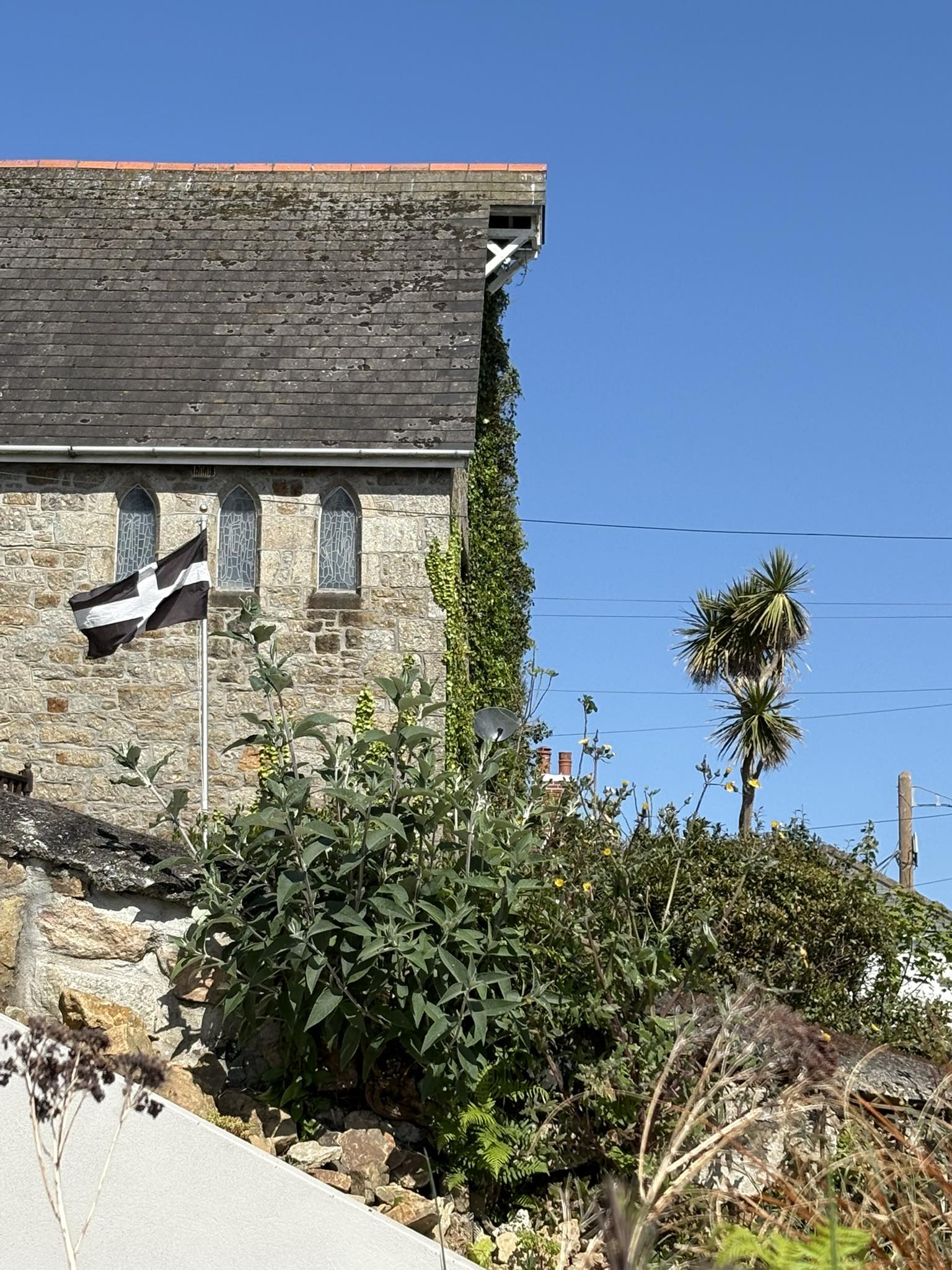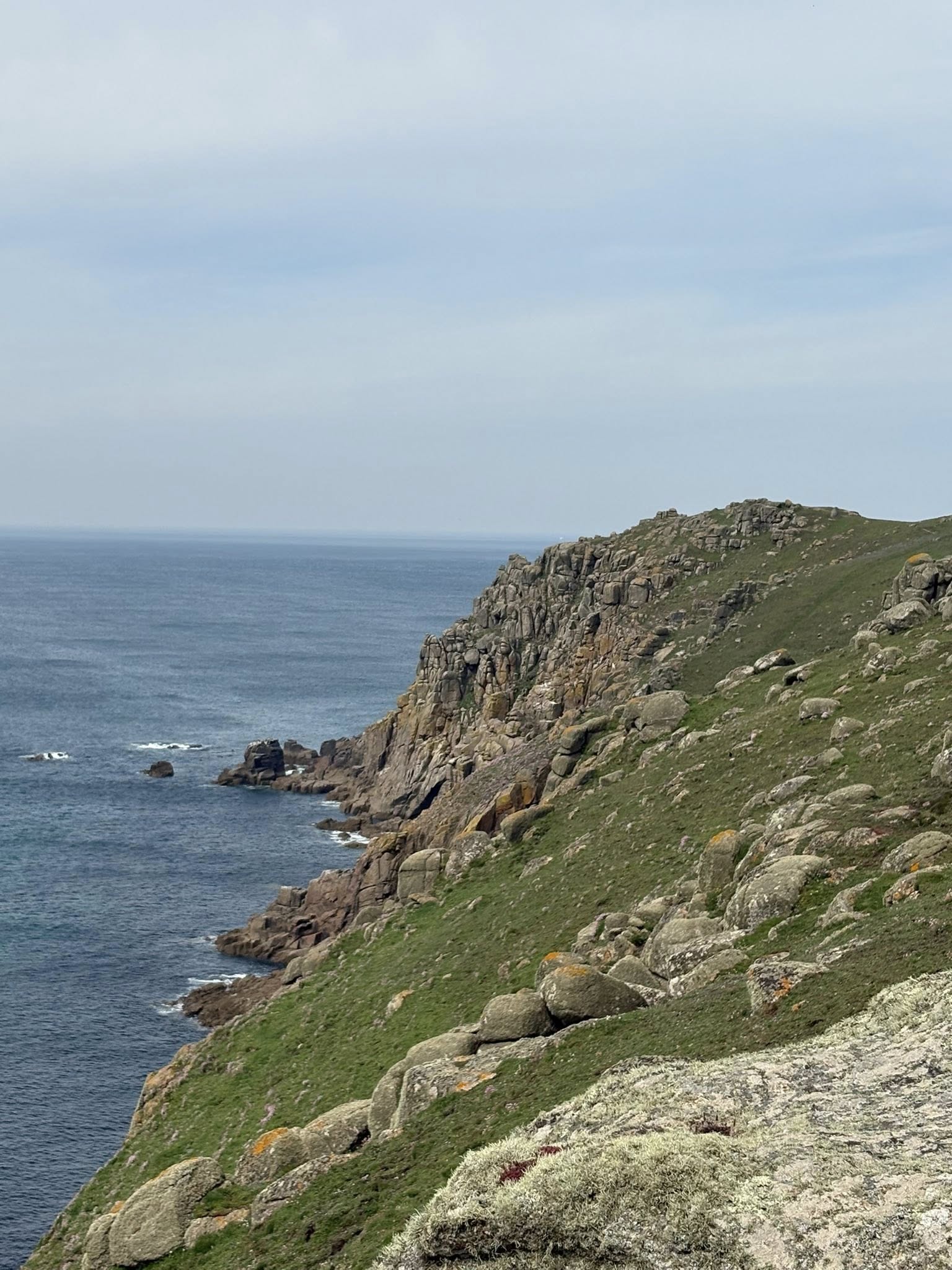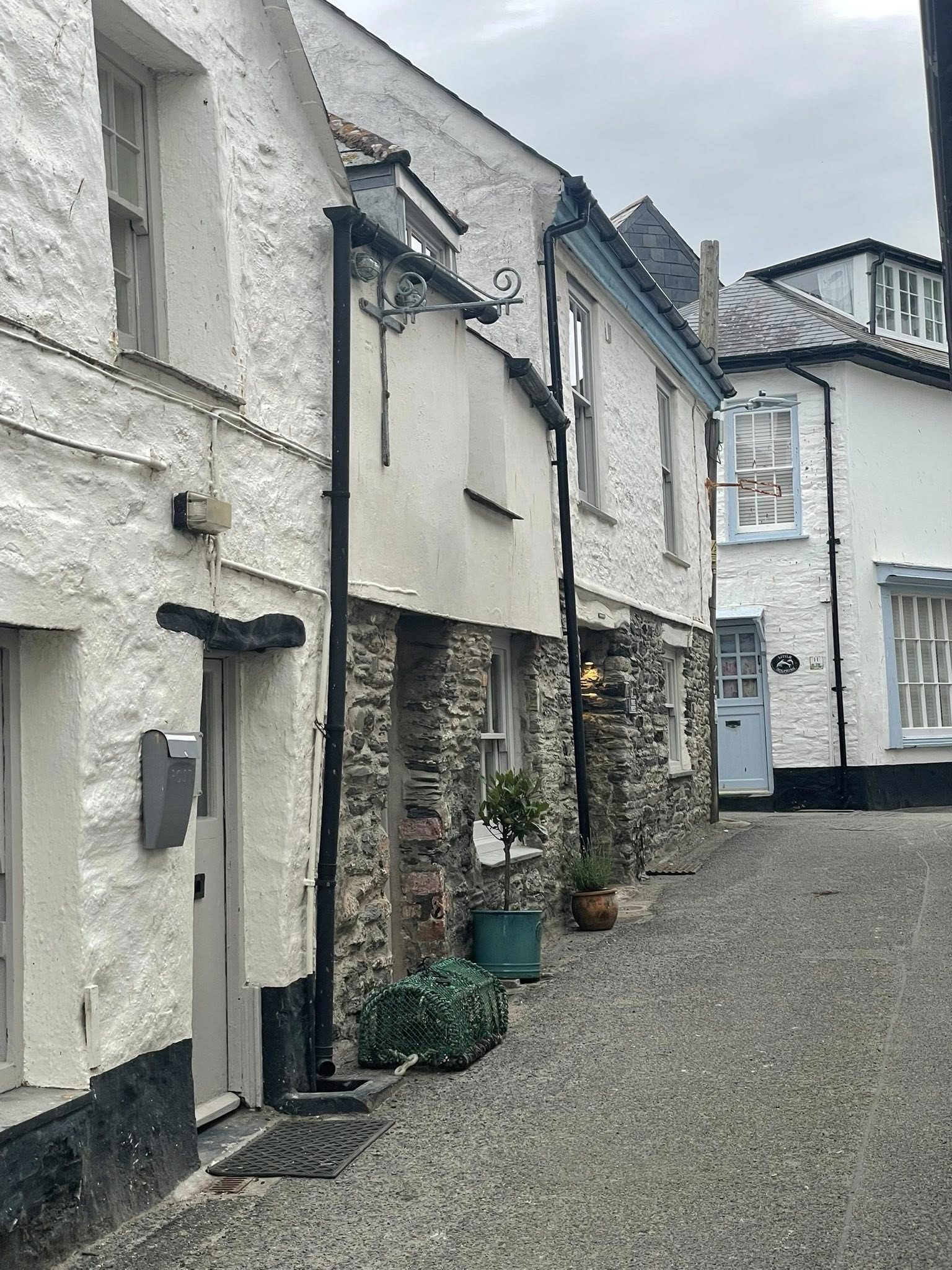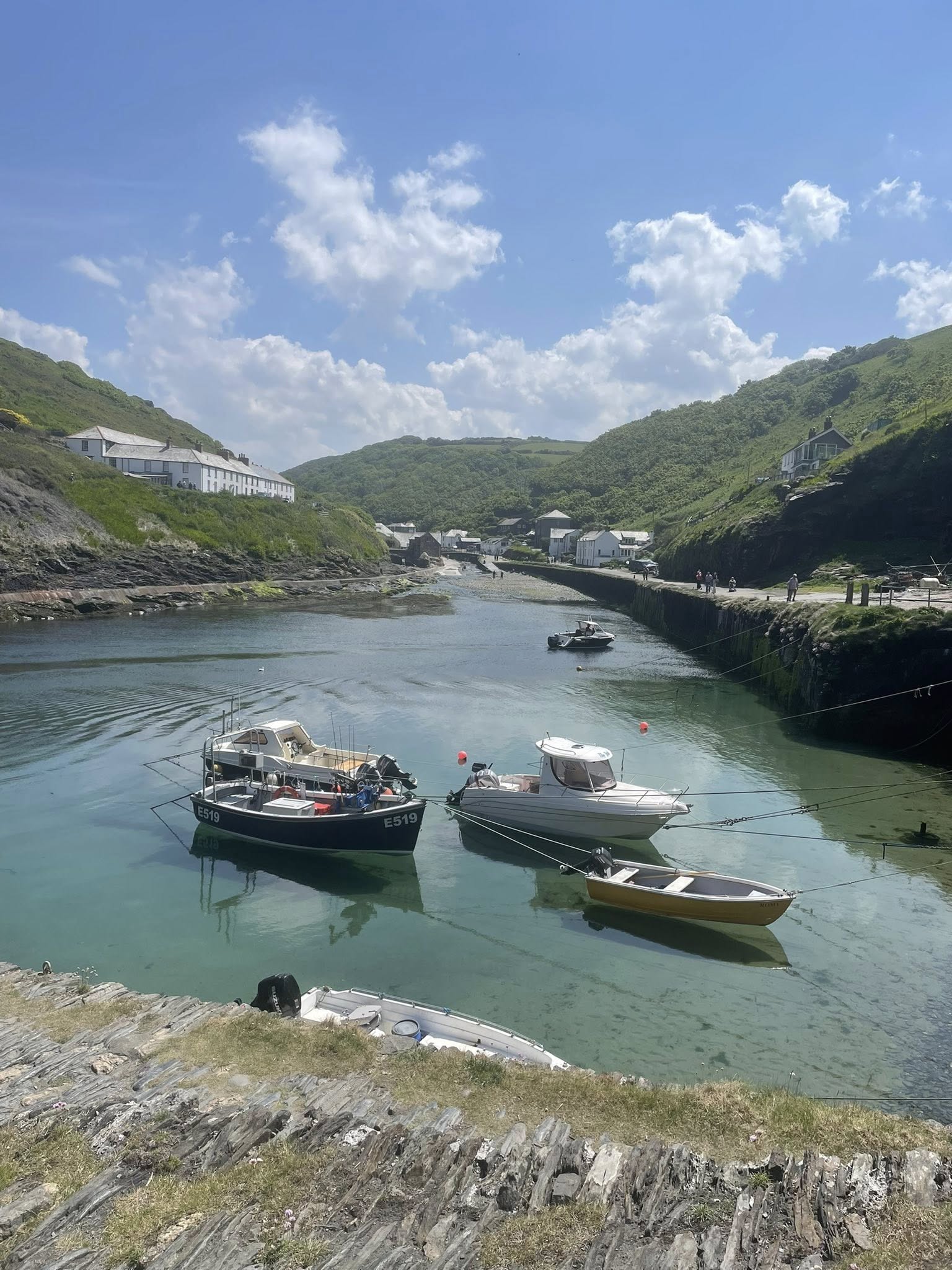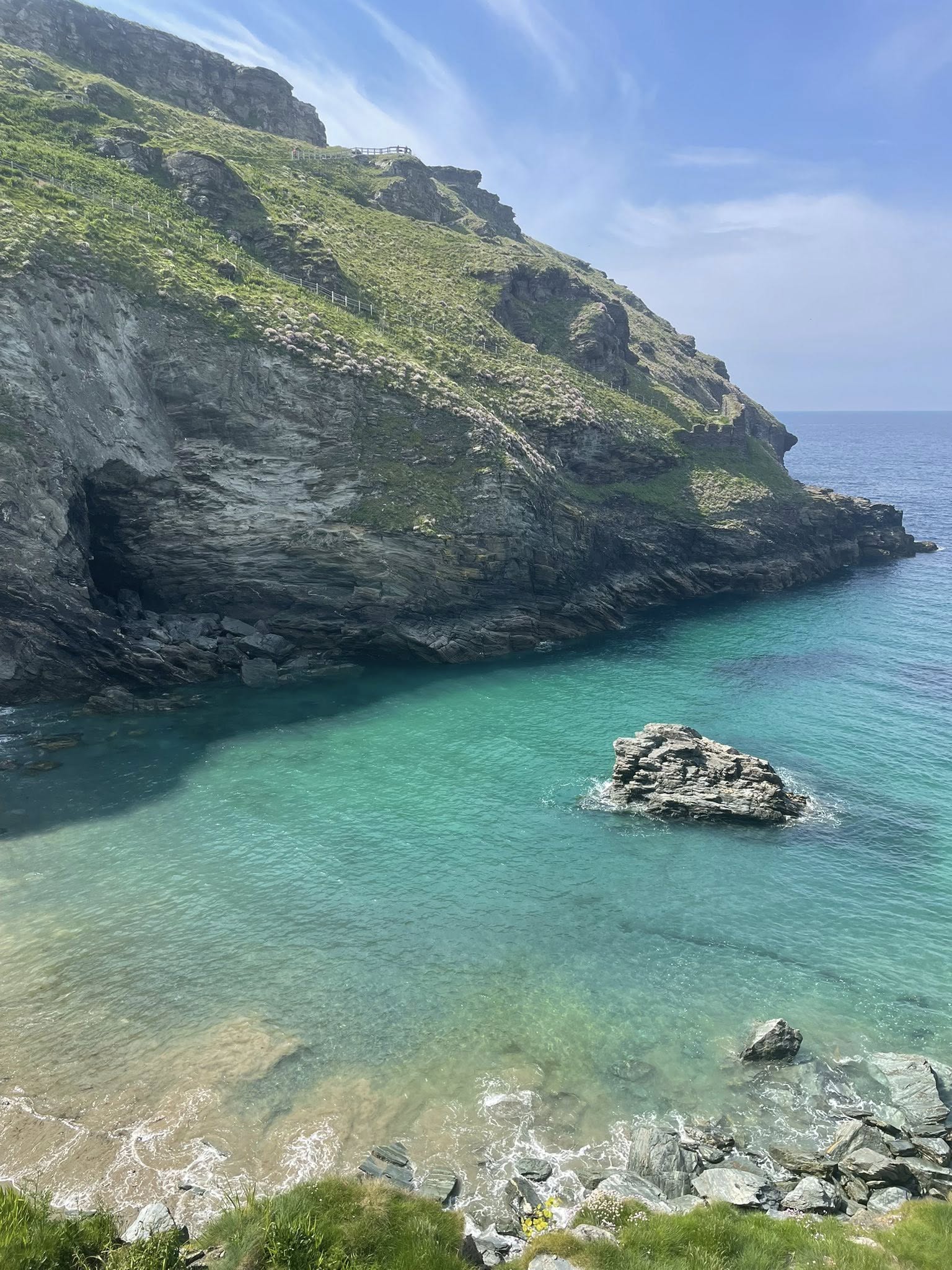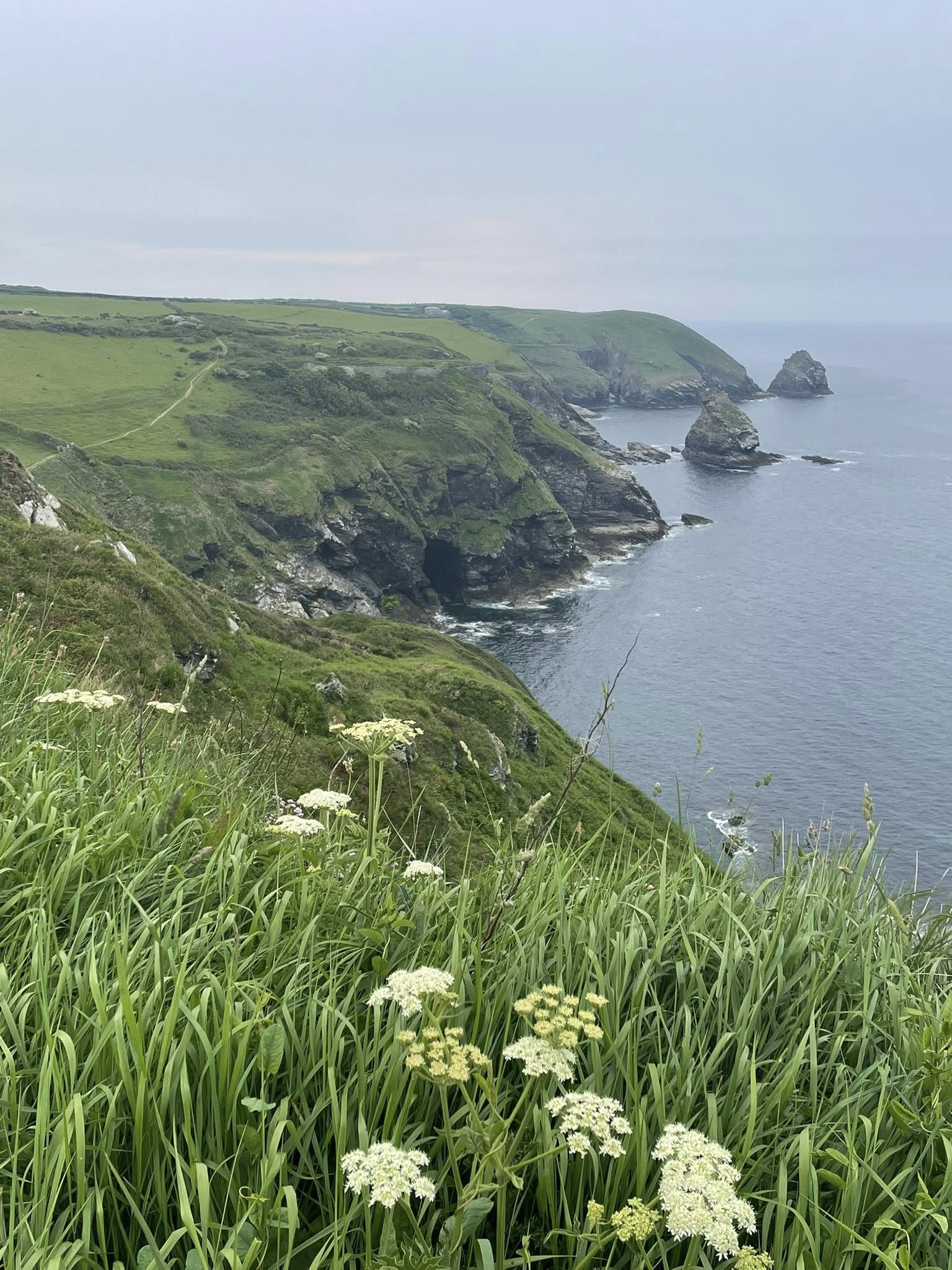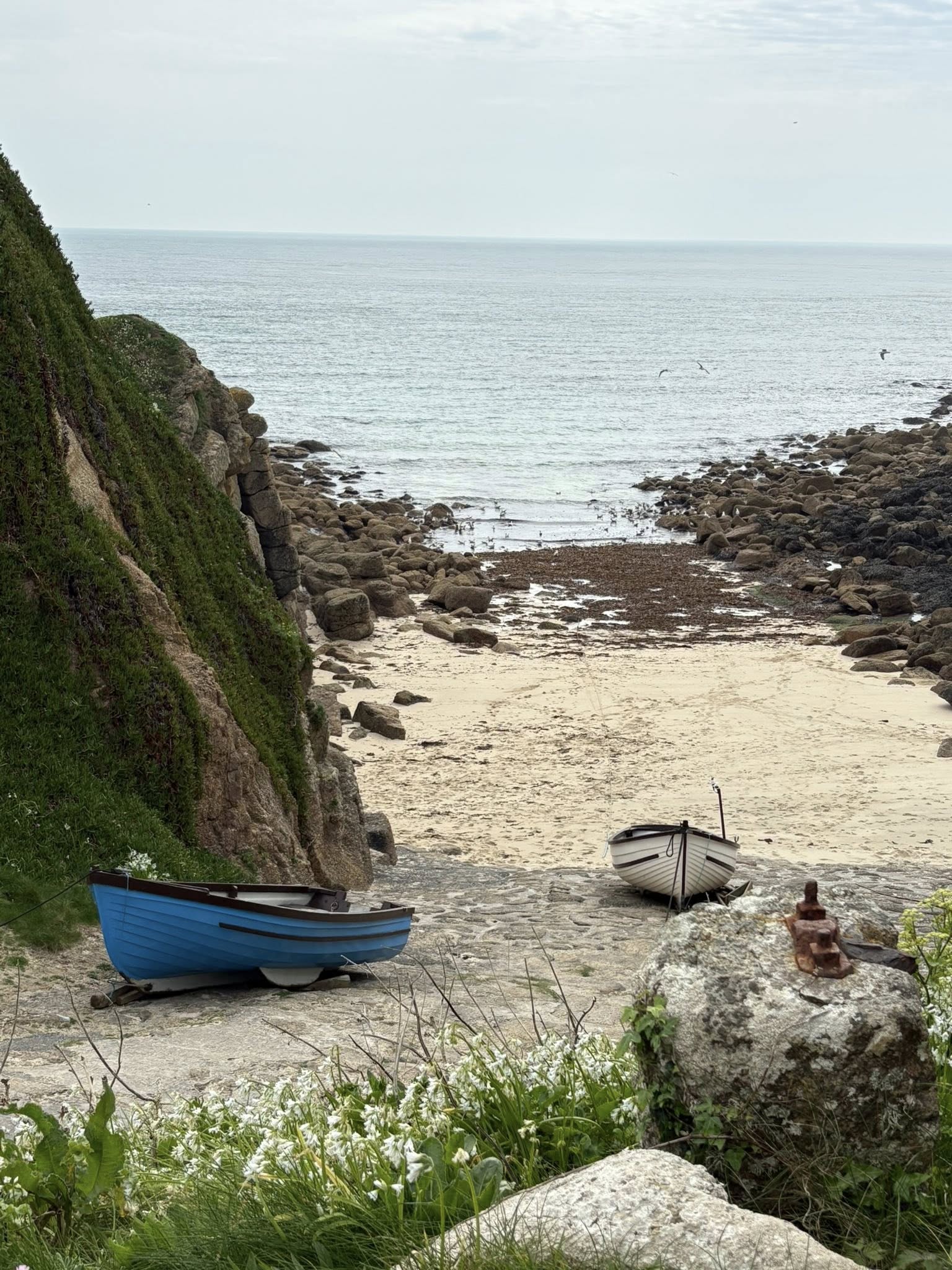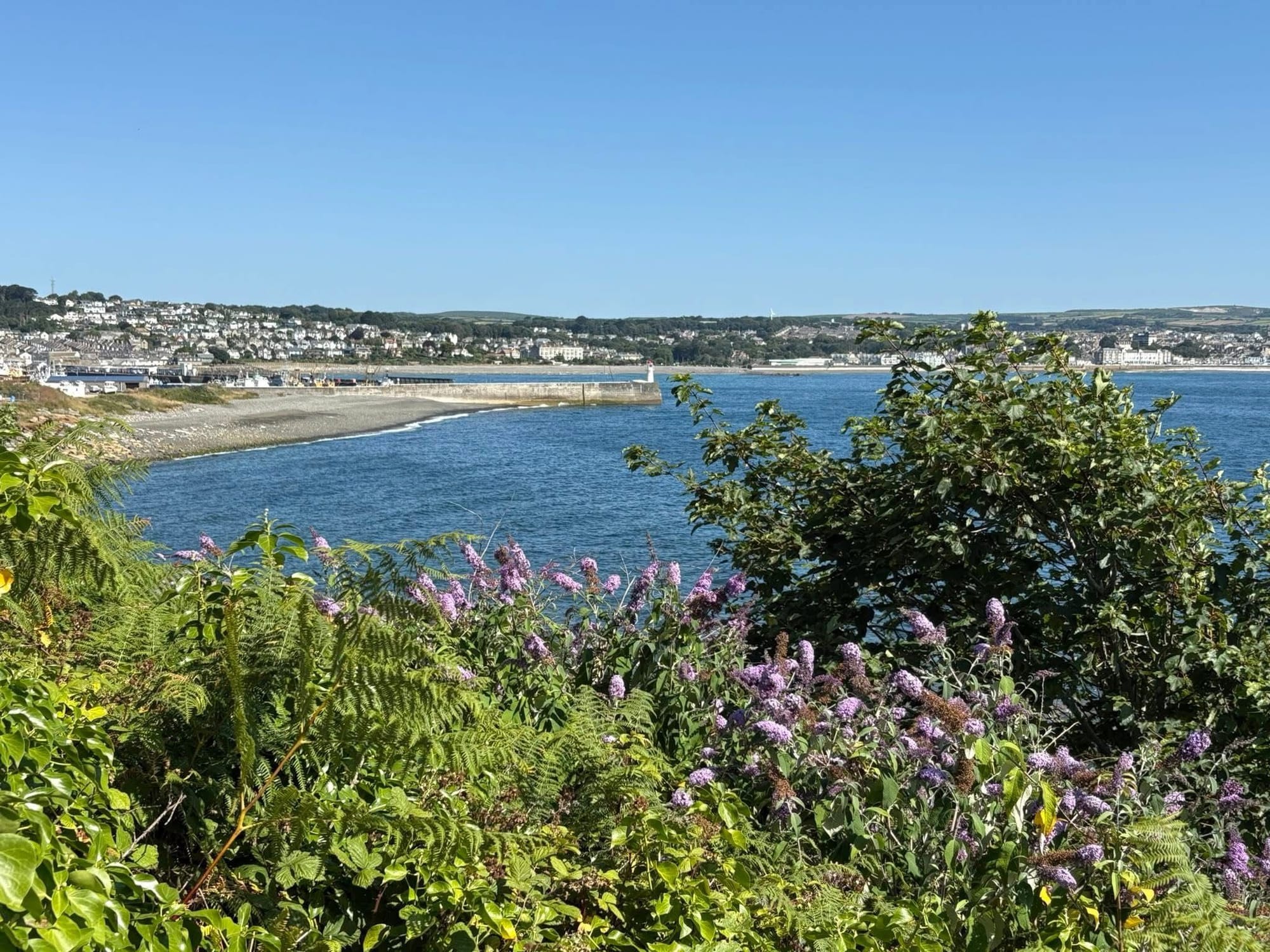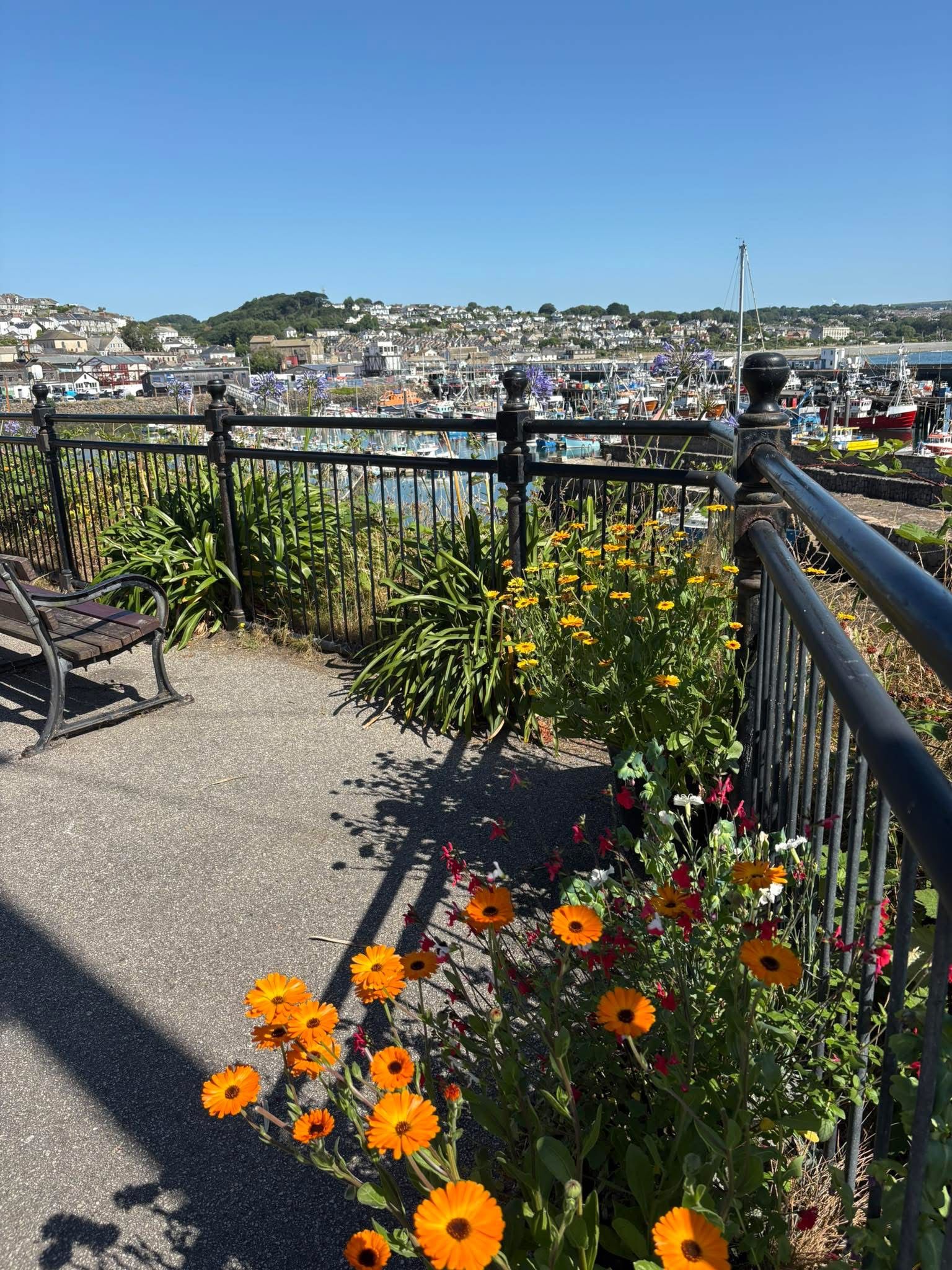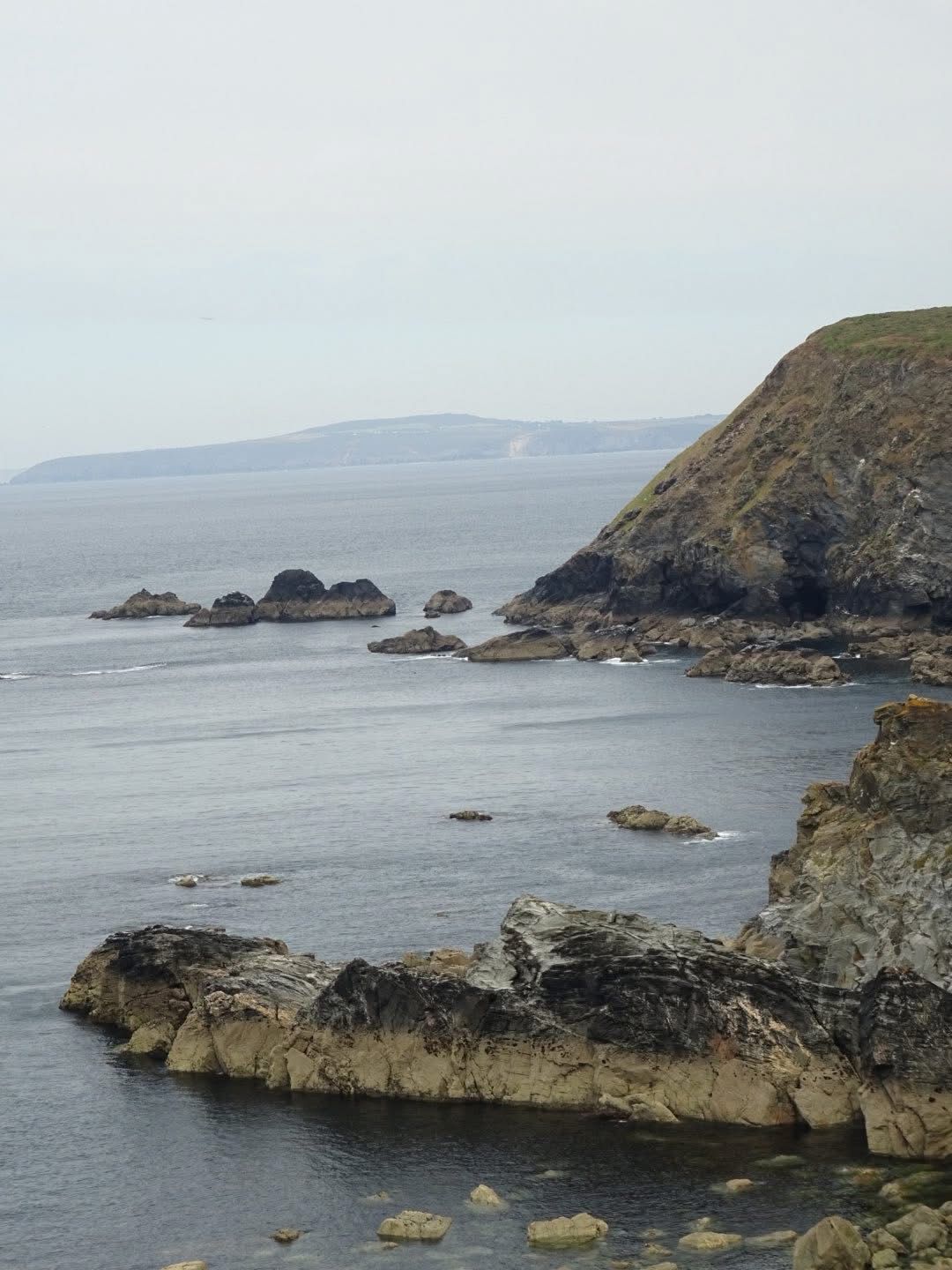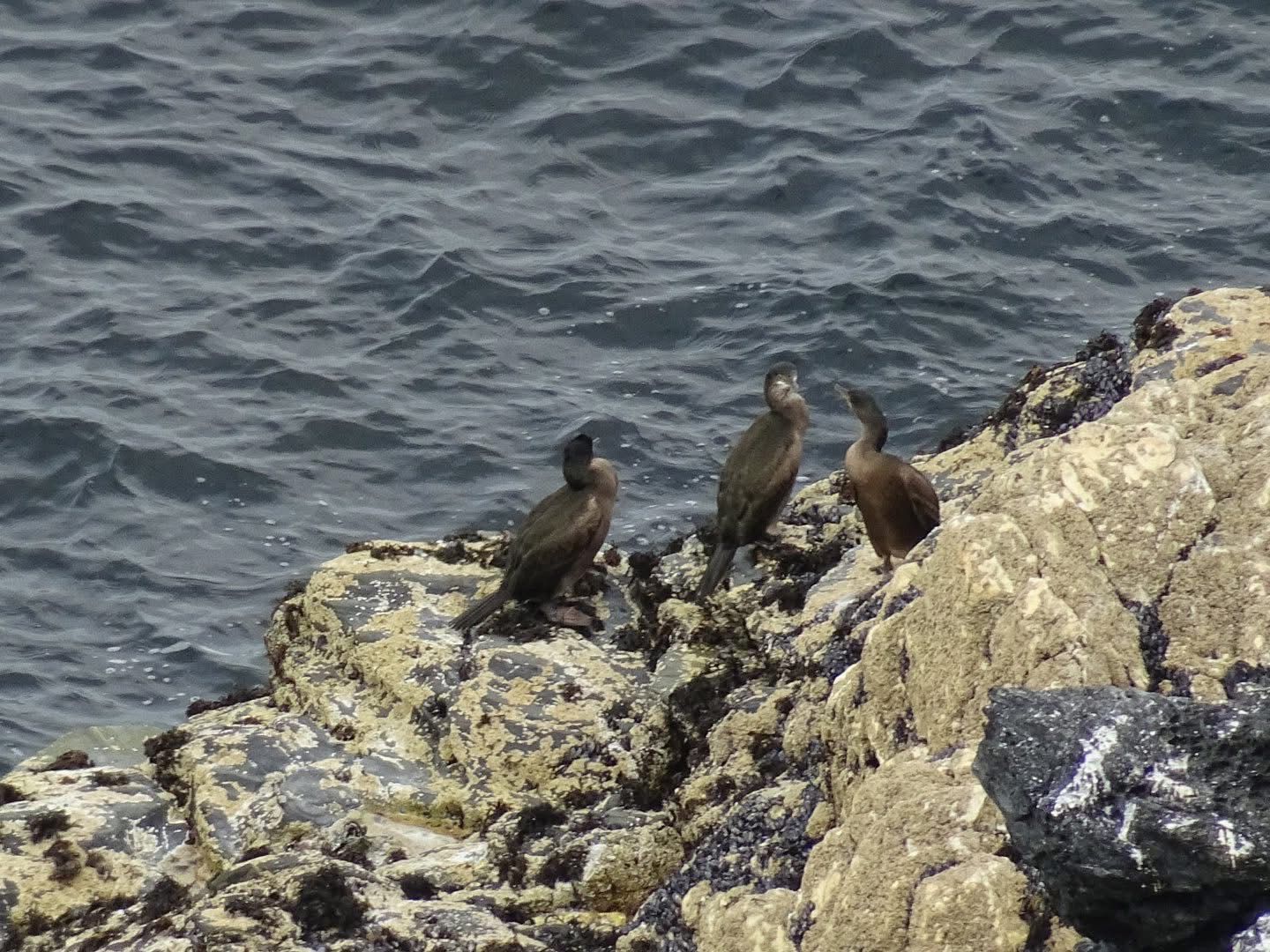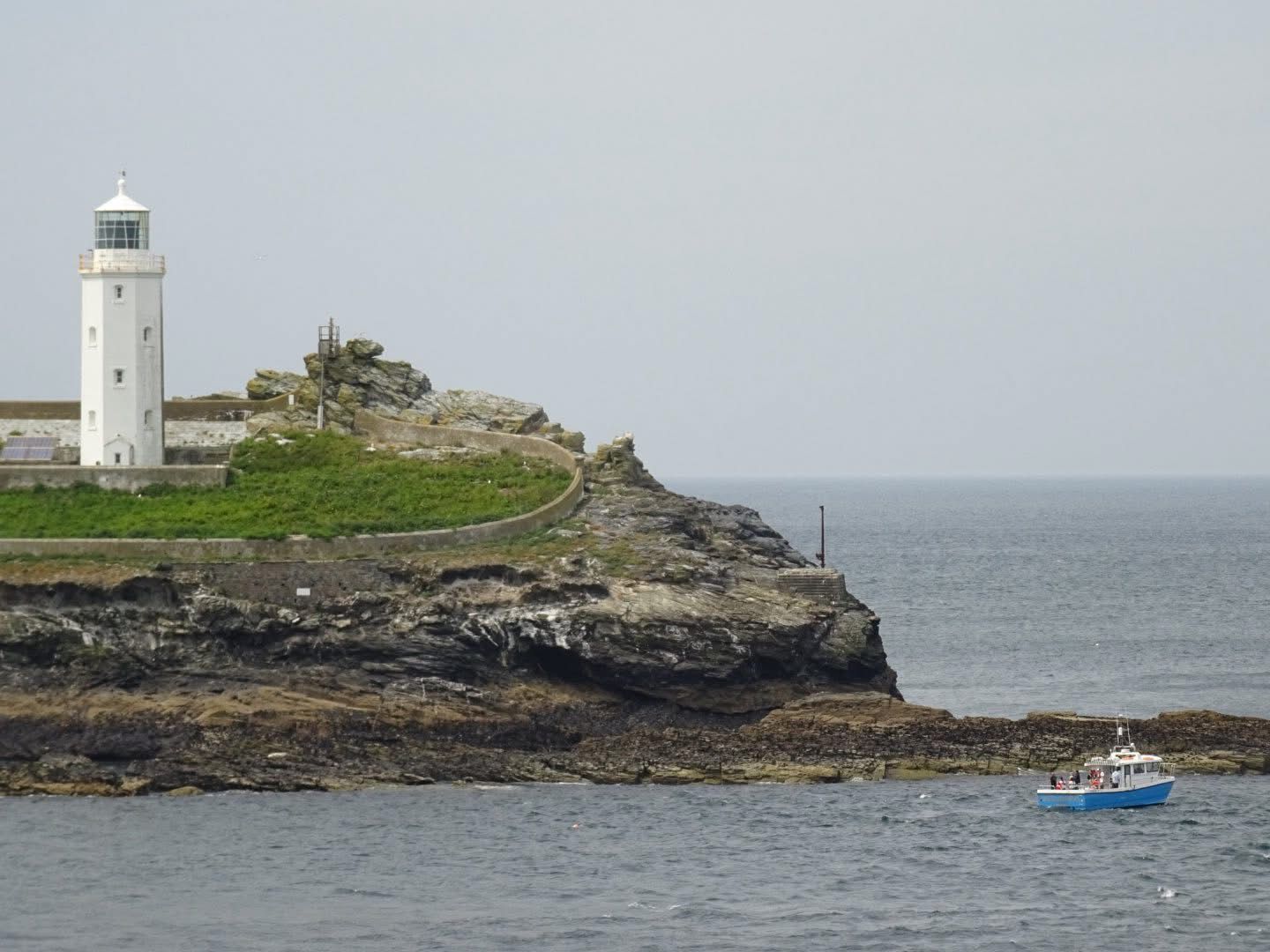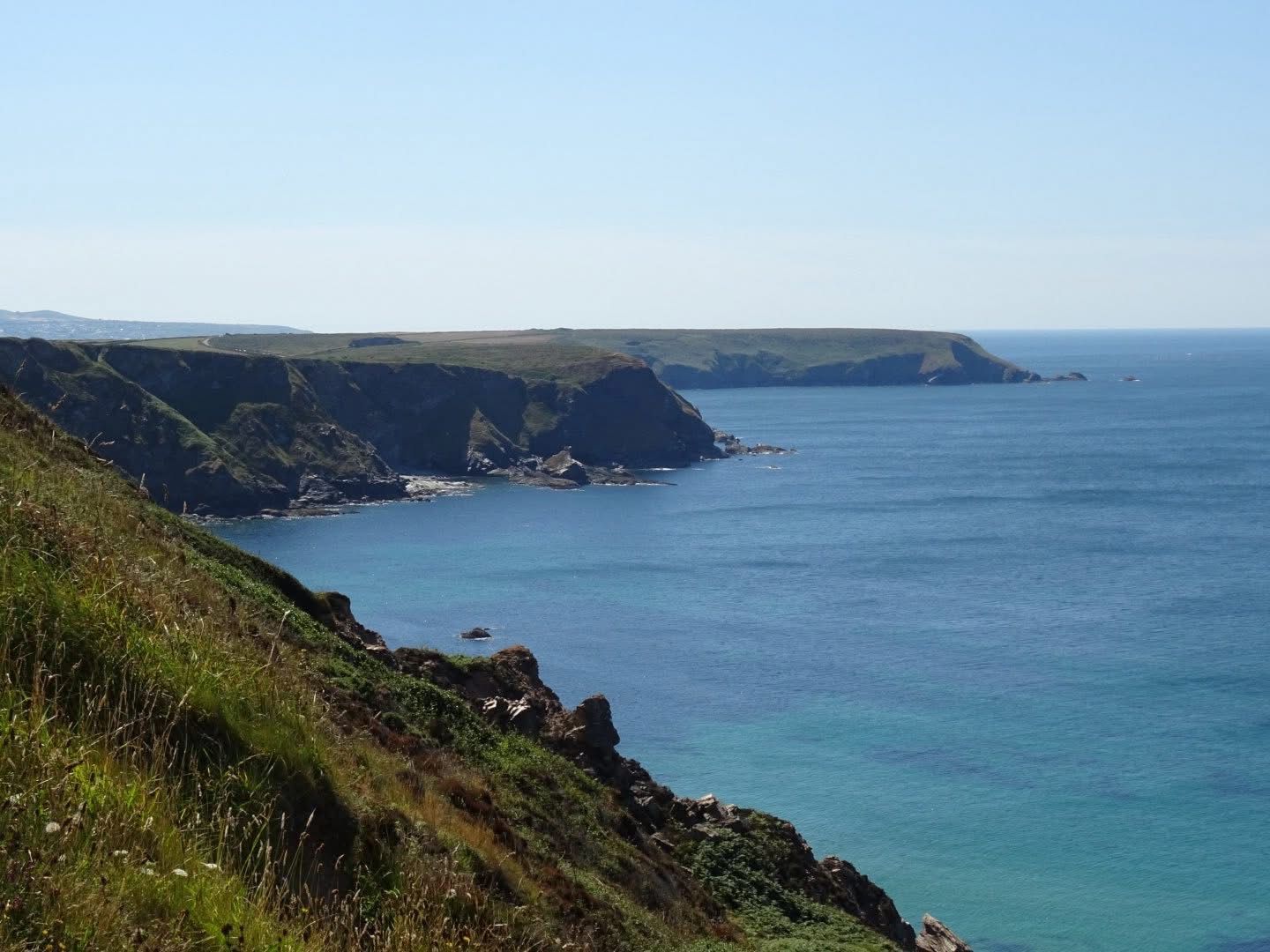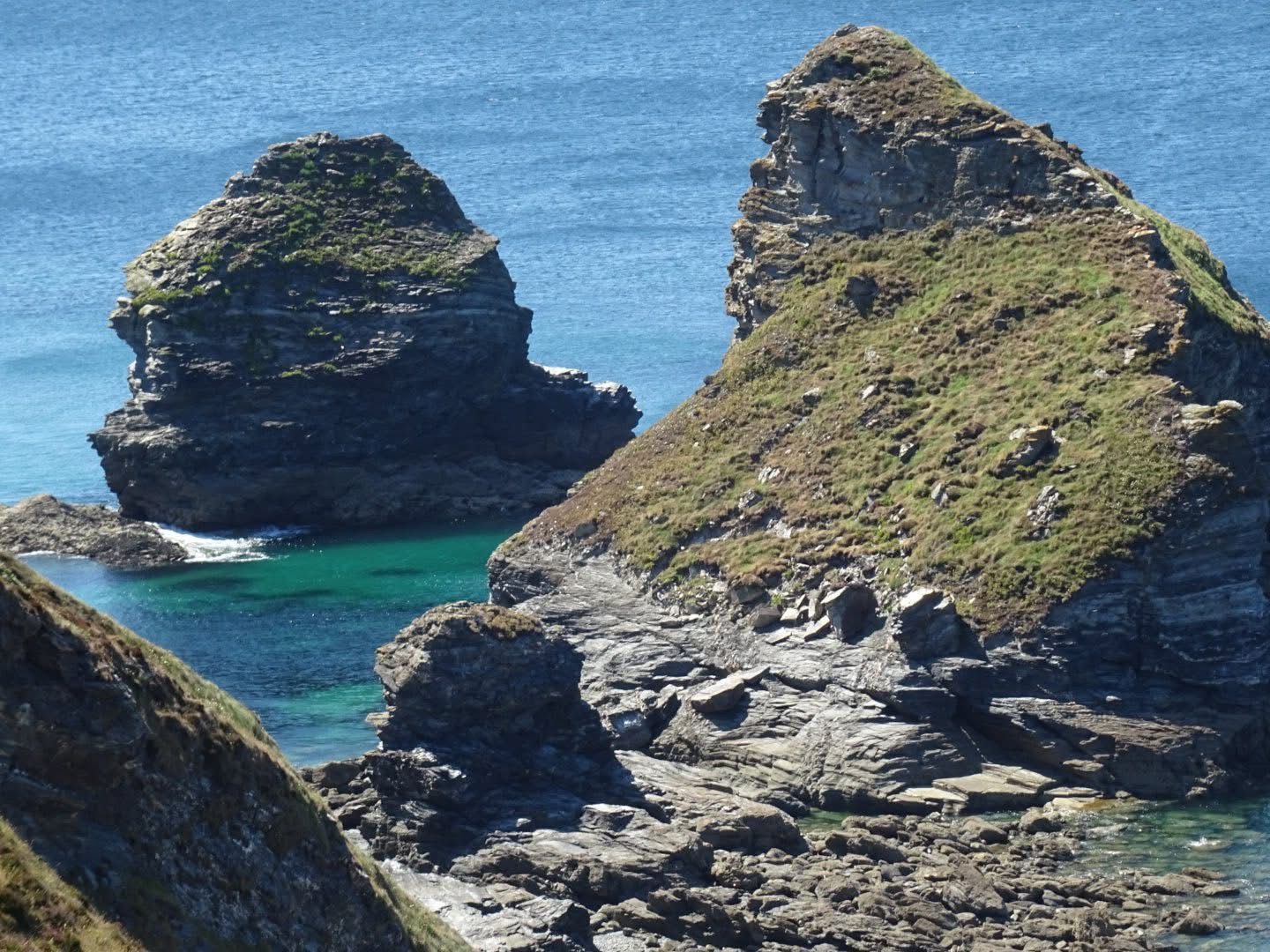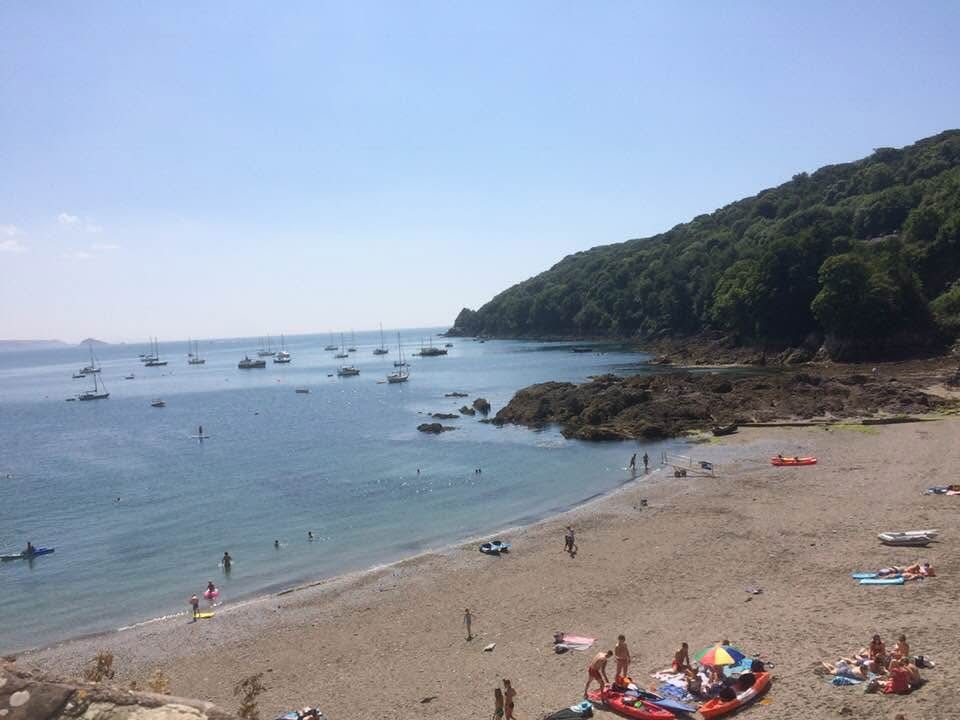Kernowek Lulyn
Loving Living Cornish
A site dedicated to learning the Cornish language
Gans govenek te dhe gara gàn gwiasva
Contact
- Helston, Cornwall, United Kingdom
Nowyth i’n mis-ma
Nowyth i’n mis-ma:
mis Gwyngala
Wedhlow nowyth in Scrif Gwredhek - New stories in "Scrif Gwredhek"
Nebes skeusednow a Gernow nowydh i'n oryel - A few new photographs of Cornwall in the gallery
Cotha taclow:
Whedhel nowyth " Agan Degolyow Dhe’n Fyordow Norgagh " screfys gans Viv. A new story @ Our Holiday to the Norwegian Fjords " written by Viv https://app.site123.com/scrif-gwredhek/agan-degolyow-dhe-n-fyordow-norgagh?c=all&w=1013467
Pympthek Besonnten Kernowek - Darn nowyth screfys gans Gray Lightfoot in Kernowek ha Sawsnek adro an besonnten kernow. A new piece written by Gray Lightfoot in Cornish and English about the Cornish besonnten. In "Scrif Gwredhek"
Try pyctour nowyth i'n oryal - Three new pictures in the gallery
Mis-ma yma trogh nowyth in agan gwiasva adro Keskosow. Yma keskosow dhe trailya ragowgh why ha trailyans dheworth an class Kernowek inwedh - There is a new section this month about conversations. There are conversations for you to translate and a translation from the Cornish class also
Skeusednow nowyth i'n oryel.
Try crowseryow nowyth
Whedhlow Cot ha Keskosow - nebes whedhlow ha keskosow screfys gans class Kernowek Lulyn - some short stories and conversations written by the Kernowek Class in Lulyn - /whedhlow-cot-class-kernowek-lulyn
Cara Kernowek - folen nowyth - Lyvrow Cors - Cot'hens dhe Lyvrow Cors onnan, dew ha try in gwiasva Skeulk An Tavas - A new page with links to Cara Kernowek books one, two and three on the Skeaul An Tavas website
Cara Kernowek Lyver Onen ha Dew - Lyverow nowyth gans gwellhe war'n gwiasva Skeul An Tavas lebmyn. New books with updates available now on Skeul; An Tavas website. Keveren - CARA KERNOWEK 1 - lovinglivingcornish (skeulantavas.com), CARA KERNOWEK 2 - lovinglivingcornish (skeulantavas.com)
Tala Conyn Peder (The Tale of Peter Rabbit) Tâla Conyn Peder - lovinglivingcornish (skeulantavas.com)
Carol-Nadelyk (A Christmas Carol) https://www.skeulantavas.com/literature/carol-nadelyk
Crowseryow nowyth adro Oberednow, An Mor ha War'n Tir - New crosswords around Jobs, The Sea and On land
Cara Kernowek Lyver Onen - Lyver nowyth a Ian Jackson war'n gwiasva Skeul An Tavas (Cara Kernowek Book One - a new book from Ian Jackson on the "Skeul An Tavas" website.) Keveren - https://www.skeulantavas.com/courses-1/cara-kernowek-1
Crowseryow nowyth adro Caryans ha Hobbys (New crosswords around Transport and Hobbies)
Kevrednow a kenennow Golyow Kernowek - Links to films of Cornish Celebrations (Flora day, Obby oss, Golowan, Laflowder etc)
Crowseryow nowyth - Nebes crowseryow nowyth adro sojetys dyffrans
Pandra ymowns y gwil? - What do they do? video/pandra-ymowns-y-gwil
Gwynever an Gath - Whedhel Flehes - Guinevere the Cat - A childrens story,see in Kernowek Lulyn Videos /gwynever-an-gath
Peth Yw - qwyz geryow - a word quiz with narration, see in Kernowek Lulyn Videos /peth-yw
Crowseryow Kernowek Standard - Peswar croseryow Kernowek nowyth ragowgh why crosswords in Cornish for you /An Gewer
Scrif Gwredhek - /scrif-gwredhek
Dedh War'n Treth - A Day at The Beach
Dedh Special in Hellys - A Special Day in Helston
Skew Kernow / Screen Cornwall - Pajer kednennow in Kernowek war IPlayer, dysplegyas bos FylmK rag Screen Cornwall in kescowethyans gans Consel a Gernow, trouvya in Kednennow Kernowek - 4 films in Cornish on IPlayer, developed by FylmK for Screen Cornwall in partnership with Cornwall council, find in Films in Cornish
Dre Fenester Kyttryn in Kernow (Through The Window Of A Cornish Bus) - by Graham Lightfoot translated by Nicholas Williams (Published with the kind permission of Graham Lightfoot)
Kevrennow Musyk Kernowek - links to Cornish Music - Gwra gweles in "Musyk Kernowek" (see in Musyk Kernowek)
Bro Goth Agan Tavas - Keworras dhe "Cannow Kernowek" - "Land of our Fathers" (Cornish anthem) added to "Cannow Kernowek" gans trailyans Sawsnek - with English translation
Henwyn Tyller in Kernowek - Information based around Cornish Place names and the elements within them
Qwyz Geryow Vydeo - 40 objects and animals to name in Kernowek, see link in Kernowek Lulyn Videos
Kernowek Qwyck; an updated version now available in both flipbook and printable PDF formats for those who prefer a choice. Kernowek Qwyck is a free publication aimed at anyone looking for an introduction to, or acquisition of some initial Cornish conversation
Vydeo Kernowek Lulyn nowyth adro ow tesky geryow kernowek - a new kernowek Lulyn video about learning words in Cornish aimed at younger viewers/kl-video-1/video-learning
Kernowek Lulyn Classes begin again on 5th September 2022, 7.30 to 9pm @ The Centre in Newlyn - http://www.thecentrenewlyn.org/ Class advert - Kernowek Lulyn FB Advert 2022.png
New Online Classes for 2022 - https://www.skeulantavas.com/courses-1/new-on-line-classes-starting-september-2022
Kernowek Lulyn Handouts Volume 1 - a first volume flipbook combining the class handouts in one place for the use of students is now available under the KL Class Handouts tab
A Cornish Dictionary for Conversation
ON-LINE HERE: Gerlyver Kescows, 2nd edition, full text, completely revised, 5000 words and phrases for conversation + grammar words + 'outbursts' + place-names, easily browsed, easily searched https://www.skeulantavas.com/vocabulary/a-cornish-dictionary-for-conversation
Goolan/Porth/ Golden Tree Productions - Whedhel Kernowek bew (Animated Story in Cornish) link https://www.youtube.com/watch?v=_SZph54bZUg
Class Kernowek Lulyn - Newlyn Cornish Class- Dallath arta de Lun, pympes mis Gwydngala 2022 ( beginning again Mon 5th September 2022) ; to find out more contact vivtaskisks@btinternet.com Kernowek Lulyn FB Advert 2022.png
Kernowek Lulyn - class handouts uploaded see under "KL Class Handouts"
CLASS WÀR LÎNEN 2022 - Meetings will be Monday weekly, by Zoom. You can get the joining details by contacting Ian Jackson iacobianus@googlemail.com. Or check it out below;
https://www.skeulantavas.com/events/class-lulyn-w%C3%A0r-l%C3%AEnen
For Zoom Class Worksheets and Diaries for 2021/22 see under "CLASS WÀR LÎNEN" / "Zoom Worksheets & Diaries" on this site
Gweles; Lyver termyn nowyth in mis Gwydngala / a new magazine in September / see under Lyvrow Kernowek
Kevren gwiasva noweth Gweles / New Gweles website link; https://gweles.com/
Kevrennow dhe'n Kednennow Kernowek - links to films in Cornish
Link to "Cornish Family Tree" in Skeul An Tavas; https://www.skeulantavas.com/miscellany/cornish-family-tree
Here is a link to Jowal Lethesow by Craig Weatherhill at Amazon UK. This is the Cornish translation (by Nicholas Williams) of Craig’s original The Lyonesse Stone.
St Just Ordinalia 2021 - 4th to 18th September 2021- to find out more folllow link below;
https://www.hallforcornwall.co.uk/playhouse-tickets-shows/st-just-ordinalia-2021/about-the-show
Chaptrys 4, 5 ha 6 a "Amȇthva An Bestas gans gerva nowyth / Chapters 4, 5 and 6 of Animal Farm with new vocabulary
Kevren dhe "An Hobys" chaptra onen war You Tube / Link to "The Hobbit" chapter one on YouTube - https://emea01.safelinks.protection.outlook.com/?url=https%3A%2F%2Fwww.youtube.com%2Fwatch%3Fv%3DmVXZg6_JdmE%26feature%3Dyoutu.be&data=04%7C01%7C%7C8b71d86f885f4195cadd08d8ae62f2f5%7C84df9e7fe9f640afb435aaaaaaaaaaaa%7C1%7C0%7C637451087285700694%7CUnknown%7CTWFpbGZsb3d8eyJWIjoiMC4wLjAwMDAiLCJQIjoiV2luMzIiLCJBTiI6Ik1haWwiLCJXVCI6Mn0%3D%7C1000&sdata=l44gwe2w3phhNoAz8sZPEQg3nI6Di3FDYaTXpxcfMHE%3D&reserved=0
Link to Corona virus vocabulary / Kevren dhe " Gerva an Cùrunvîrùs "
Kernowek Qwyck (pdf): an cors tâstya-ma re beu istynys bys in 15 lesson / Kernowek Qwyck (pdf): this taster course has now been extended to 15 lessons
Kevren dhe Qwyz lies-dȇwys / Link to multi-choice Quiz
Kevren dhe Skeul An Tavas crowseryow / Link to Skeul An Tavas crosswords
Audio; Kevren dhe "Audio" in gwiasva "Skeul an Tavas" / Link to "Audio" in "Skeul an Tavas" website; to hear some spoken Cornish
Kevren dhe "An Nawnjek Stap warn ugans"/ Link to "The Thirty-nine Steps"
Kevren dhe / Link to "An Canker neb a wrug Gwary gans an Mor"
Skeul an Tavas Web Site link : www.skeulantavas.com
Kevren dhe / Link to "skeul an tavas" spell checker added in "Useful Links"
Scrif Gwredhek
We would like to encourage original writing in Cornish by uploading suitable work to this website. Email kernoweklulyn@btinternet.com. Submissions should be written in Standard Cornish (KS), in any register of poetry or prose. We ask readers to bear in mind there may be different opinions about the best vocabulary and grammar in Revived Cornish. This website is not a place for discussion of literary work. That should be conducted directly with the author, or in an appropriate on-line forum.
Whensys on ny dhe genertha lien nowyth in Kernowek, owth ugh-garga gweyth gwyw dhe’n wiasva-ma. Gwrewgh ebostya ober screfys in Kernowek Standard (KS), bardhonieth pò yêth plain, pynag a vo hy rejyster, dhe kernoweklulyn@btinternet.com. Res yw dhe genyver redyor remembra dell yll breusyow bos dyvers tùchyng an gwelha gerva ha gramer in Kernowek Dasvewys. An wiasva-ma nyns yw plâss may hyller dadhla wàr weyth lienak. Hòn yw dhe wil orth an auctour yn tydro, pò in neb forùm ewn wàr lînen.
If contributing, please confirm your authority to publish your work and name as contributor online
Whedhlow gans Kernowek Lulyn
Dre Fenester Kyttryn in Kernow
Dre Fenester Kyttryn in Kernow
"Through the window of a Cornish Bus" by Graham Lightfoot translated into Kernowek by Nicholas Williams
Learn MoreThrough The Window Of A Cornish Bus
Written by Graham Lightfoot - see also "Dre Fenester Kyttryn in Kernow" for a Cornish language version
Learn MorePympthek Besonnten Kernow
Whedhlow Cot Class Kernowek Lulyn
Literature available in Standard Cornish
LITERATURE AVAILABLE IN KERNOWEK STANDARD (KS)
If you are unsure how to obtain any of the literature listed below, please contact www.skeulantavas.com and we’ll do our best to help.
(Link to Skeul An Tavas literature Page - https://www.skeulantavas.com/literature )
It is recommended to visit the Skeul An Tavas website on the link above regularly as literature availability and updates are being added all the time, to cover the requirements of all levels of learning and interest
Books published by Evertype are usually available from Amazon UK. You can also access Evertype's own catalogue at https://www.evertype.com/catalogue.html.
Some books may be stocked by Spyrys a Gernow of Portreath. You can email queries to shoppa@spyrys.org.
Gerlyver Kescows and Kescows Nebes Moy are available from the author: go to the relevant item on the Vocabulary page at www.skeulantavas.com for details.
Skeul An Tavas (Standard Cornish version)

Can be purchased online from;
Evertype https://www.evertype.com/
Agan Tavas https://www.agantavas.com/shop/
Also in class from "Class Kernowek Lulyn" as available
Gweles;
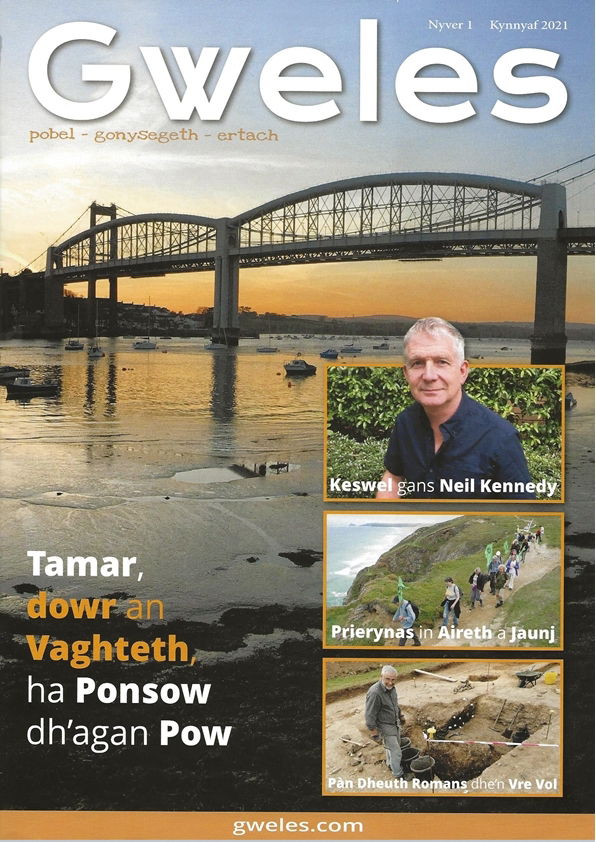
You Can subscribe to Gweles here https://gweles.com/
An Gowsva;

Jowal Lethesow; Here is a link to Jowal Lethesow by Craig Weatherhill at Amazon UK. This is the Cornish translation (by Nicholas Williams) of Craig’s original The Lyonesse Stone.

Provided with membership of Agan Tavas here https://www.agantavas.com/joining-agan-tavas/
Literature available from Agan Tavas: https://www.agantavas.com/
HISTORICAL TEXTS
Published 2012
Jowan Chy an Hordh
Published 2020
The Charter Fragment and Pascon Agan Arluth
NOVELS, STORY BOOKS, OTHER IMAGINATIVE FICTION (translated)
Published 2009
Lewis Carroll Aventurs Alys in Pow an Anethow
Harriette Taylor Treadwell & Margaret Free Kensa Lyver Redya
Jules Verne Adro dhe’n Bÿs in Peswar Ugans Dëdh, abridged
Craig Weatherhill Jowal Lethesow
Published 2010
Robert Louis Stevenson Enys Tresour
Published 2011
Alan M. Kent, Gabrielle Cailes, Neil Kennedy The Beast of Bodmin Moor – Best Goon Brèn, bilingual
Nigel Roberts Whedhlow ha Drollys a Gernow Goth
Published 2012
Arthur Conan Doyle Ky Teylu Baskerville
Edith Nesbit Flehes an Hens Horn
Published 2013
Kenneth Grahame An Gwyns i’n Helyk
H.G. Wells Gwerryans an Planettys
Published 2014
Jerome K. Jerome Tredden in Scath
Robert Louis Stevenson Câss Coynt an Doctour Jekyll ha Mêster Hyde
J.R.R. Tolkien An Hobys
Published 2015
Jane Austen Gooth ha Gowvreus
Lewis Carroll Der an Gweder Meras ha Myns a Gafas Alys Ena
Published 2016
Charles Dickens Carol Nadelyk, extracts - devydnow
H. Rider Haggard Honna
Bram Stoker Dracùla hag Ôstyas Dracùla
Published 2017
L. Frank Baum Pystrior Marthys Pow Òz
Published 2018
Carlo Collodi Pinocchio
Published 2019
John Buchan An Nawnjek Stap warn Ugans
Published 2020
Charlotte Brontë Jane Eyre
Wilkie Collins An Loorven, Prologue
Charles Dickens Gwaityans Meur, Chapter 1
Winifred Holtby Pastel Vro Soth, Chapter 1
Barones Orczy An Flour a Vrathles Cogh, Chapter 1
Anna Sewell Beawty Du, Chapter 1
Anthony Trollope An Cronyclys a Bow Barr, Chapter 1
Monthly serialization from September 2020
Anthony Hope An Prysner in Castel Zenda
Monthly serialization from January 2021
George Orwell Amêthva an Bestas
SHORT STORIES (translated)
Published 2016
Hans Christian Andersen An Brynces wàr an Bysen
Hans Christian Andersen Mowes Vian an Tanbrednyer
Published 2018
Hans Christian Andersen An Corn Tan
Published 2019
Breder Grimm An Logosen, an Edhen, ha’n Selsygen
Published 2020
Aesop An Ky ow Ton Kig
Hans Christian Andersen Dyllas Nowyth an Emprour
Rudyard Kipling An Canker neb'rug Gwary gans an Mor
Lûcyan a Samosata Prentys an Gorhenyas
Mabinogion Pwyll Pendefig Dyfed, First episode, originally published 1934, ed. E.G.R. Hooper 'Talek' 1968, ed. Jackson 2020
Nigel Roberts Lûty ha’n Vorvoren (versyon nowyth)
POEMS (original)
Published 2017
Ian Jackson In Pow Blackmore
Published 2018
Ian Jackson An Âls a’n Barth West
Published 2020
Ian Jackson Orth Tremenyans Craig Weatherhill
Henry Jenner Dhe'm Gwreg Kernowek, originally published 1904
A.S.D. Smith 'Caradar' Trystan hag Isolt, Part 1, originally published 1951
SHORT STORIES (original)
Published 2010
A.S.D. Smith 'Caradar' Nebes Whedhlow Berr, originally published 1948, ed. Williams
A.S.D. Smith 'Caradar' Whedhlow an Seyth Den Fur a Rom, originally published 1948, ed. Williams
A.S.D. Smith 'Caradar' Fordh an Broder Odryk, originally published 1964, ed. Williams
Published 2020
A.S.D. Smith 'Caradar' An Wreg Yonk Gwynn hy Blew, originally published 1948, ed. Williams 2010, ed. Jackson 2020
TEXTBOOKS AND DICTIONARIES
Published 2010
Ray Chubb Skeul an Tavas
Published 2012
Nicholas Williams Desky Kernowek
Published 2014
Nicholas Williams Geryow Gwir
Published 2017
Ian Jackson Gerlyver Kescows
Published 2018
Ian Jackson Kescows Nebes Moy
OTHER (translated)
Published 2009
Andy Phillips Lyver Pejadow rag Kenyver Jorna
Published 2011
An Beybel Sans (Testament Coth ha Testament Nowyth)
Published 2017
Abraham Lincoln Areth Gettysburg
Coming soon
Khalil Gibran An Profet
Amȇthva An Bestas
An Nawnjek Stap Warn Ugans
An Canker neb a wrug Gwary gans an Mor
An Canker neb a wrug Gwary gans an Mor
https://www.skeulantavas.com/literature/an-canker-neb-a-wrug-gwary-gans-an-mor
Ganowclap - Jaberwocky
‘Jabberwocky’ gans Lewis Carroll trailys dhe Gernowek
gans Nicholas Williams
Ganowclap
Bryjyas yth o ha’n tôvow sluan
a droya hag a darda dres an hîrdh;
an boragôvas y o fruan
hag y whre dre-rathas sîrdh.
“Bëdh war a’n Ganowclap, a vab,
a’y jalla sherp, a’y skyvlow lymm.
Avoyd an Jûjûbedhen; nagh
frûmyans an Bondergrymm!
Y gledha vorpek sêsya a wrug
ha whelas escar mank heb own.
Y sedhas ryb an Wedhen Frug
ha powes prederus down.
Pàn esa ow sevel ùffek y vrës
an Ganowclap gans lagas flàm
whyflyn a dheuth der an dùlygoos
ow crabla stappys camm.
Onen, dew! Onen, dew! Pòr sherp ha glew
êth cledha vorpek ow trehy fre;
gans bommow garow ev a’n gwrug marow
ha penglomm ponya tre.
A wrusta ladha’n Ganowclap?
Deus dhe’m barlen, a vaw beshoy!
A dhëdh frabô! Callay, callô!
y whescas in y joy.
Bryjyas yth o ha’n tôvow sluan
a droya hag a darda dres an hîrdh;
an boragôvas y o fruan
hag y whre dre-rathas sîrdh.
DYLLAS NOWYTH AN EMPROUR
DYLLAS NOWYTH AN EMPROUR
Hans Christian Andersen
Kernowek © Ian Jackson 2020
Words / meanings not found in Gerlyver Kescows (Jackson / Agan Tavas 2017) are glossed at the end.
Lies bledhen alebma y fewa Emprour, esa ow cara dyllas nowyth kebmys, may fedha ev ow spêna oll y vona rag gwainya semlant brav. Bern nyns o y soudoryon dhodho, nyns o bern dhodho an gwaryjy naneyl, na nyns esa dhodho whans marnas rôsya in mes rag dysqwedhes y dhyllas nowyth. Y’n jeva côta dhe bùb eur i’n jëdh, ha dell leverer a neb mytern, “Yma ev i’n consel,” y fedha an bobel ow leverel anodho ev pùpprës, “Yma an Emprour i’n dhyllasva.”
I’n cyta veur mayth esa va tregys, yth o pùptra pòr hudhyk; y fedha estrenyon, bùsh brâs, devedhys dy pùb jorna. Udn jëdh dew dùllor a dheuth; anjy a wrug pretendya bos gwiadoryon, ha declarya aga godhvos gwia stoff, tecka galla oll desmygy. An colours ha patronys o feythus dres ehen; kefrës, dhe’n dyllas gwies a’n stoff-ma, yth esa an vertû marthys y vos anhewel dhe bùbonen nag o gwyw dhe’n soodh a sensy ev, pò nag o ma’s gocky dygosk.
“Assa via an dyllas-na rial!” an Emprour a dybys. “Mar teffen vy ha gwysca an re-na, y halsen dyskevra py tus i’m empîr nag yw gwyw dhe’n plâss a’s teves; y halsen vy decernya an re codnek dhyworth an re gocky. Eâ, res yw gwia an stoff dhybmo heb let!”
Hag ev a ros dhe’n dhew dùllor cals a vona parys, rag may whrellons y dallath aga gweyth.
Wèl, anjy a wrug settya dyw starn in bàn ha gwil wis y bosons y in whel; saw nyns esa tra vëth wàr an starnyow. Dewhans anjy a wrug demondya syjan a’n tecka hag owr moyha costly; hebma a wrussons y gorra i’ga fockettys aga honen, hag anjy ow lavurya worth an starnyow gwag bys i’n nos holergh.
“Me a garsa godhvos pana bellder res ethons y avauncys gans an stoff,” an Emprour a dybys. Saw nyns o va pòr attês pàn dheuth ev ha predery na ylly an re nag o gwyw dh’aga soodh y weles màn. Yth esa ev ow cresy, heb mar, na vedha dhodho y honen chêson vëth a dhowt, byttele gwell o ganso i’n kensa le danvon ken onen rag cafos stuth an mater. Oll an bobel i’n cyta a wodhya an gallos reveth esa dhe’n stoff, hag oll whensys dhe dhyskevra pygebmys o anwywder pò gockyneth aga hynsa.
“Me a dhanvon ow Menyster coth len dhe’n wiadoryon,” an Emprour a dybys. “Ev yw an gwelha jùj a syght an stoff, rag ev a’n jeves skentoleth, ha gwell agesso nyns eus den in skians a’y soodh!”
Now an Menyster coth dâ a wrug mos in mes bys i’n hel mayth esa an dhew dùllor a’ga eseth ow lavurya worth an starnyow gwag.
“Mercy re’gan salwo!” an Menyster coth a brederys, hag ev owth egery efan y lagasow. “Ny welama tra vëth oll!” Saw ny lavaras ev hebma.
Pùbonen a’n dhew dùllor a’n pesys a dhos nes, y praydha, ha govyn orto, dar, nyns esa va ow comendya an colours ha’n patronys? Nena anjy a wrug poyntya dhe’n starn wag, ha’n Menyster coth truan a wrug egery y lagasow whath, saw ny welas tra vëth, rag tra nyns esa dhe weles.
“Mercy!” ev a brederys, “’Allama bos mar wocky defry? Ny wrug avy tyby hedna james, ha na vedhens den vëth i’n bÿs dh’y wodhvos. A nyns ov vy gwyw dhe’m soodh? Nâ! nefra ny dhegoth derivas na yllyn vy gweles an stoff.”
“A ny leverowgh agas breus?” yn medh onen a’n wiadoryon. “Ô, ass ywa hudol – gorhanus glân!” an Menyster coth a worthebys, hag ev owth aspia glew der y spectaclys. “Tecka batron, ha tecka golours! Eâ, me a vydn derivas dhe’n Emprour y bosama pës dâ ganso.”
“Wèl, dâ yw hedna genen ny,” yn medh an dhew wiador, hag anjy owth henwel an colours, hag ow styrya an patron astranj. An Menyster coth a woslowas gans rach, may halla ev y leverel arta pàn dheffa an Emprour. Ha hedna a wrug ev.
Now an dùlloryon a wovydnas moy mona, ha moy syjan hag owr, eus otham anodhans rag gwia, dell wrussons y pretendya. Anjy a’n gorras oll i’ga fockettys aga honen, ha ny veu neujen vëth gorrys wàr an starn; saw anjy a wrug pêsya lavurya, par ha kyns, orth an frâmys gwag.
An Emprour a whythras unweyth arta a verr spis, hag ev ow tanvon ken sodhak len, rag gweles fatl’esa an gwians owth avauncya, ha mar pedha an stoff parusys yn scon. Ev a wrug fara kepar ha’n kensa whelor; ev a wrug meras stag ha stark, mès drefen nag esa dhe weles marnas an starnyow gwag ny welas ev tra vëth.
“A nyns yw hedna darn druth y stoff?” a wrug an dhew dùllor govyn; hag anjy y ow tysplêtya hag ow styrya an patron sêmly nag esa màn.
“Nyns ov vy gocky!” an den a brederys, – “an praga yw sur-redy ow soodh dhâ, nag oma gwyw dhedhy. Coynt lowr yw hodna, saw res yw dhybm heb gasa dhe verkya.” Ytho ev a wrug praisya an stoff na welas ev, ha clerhe y blesour a’n colours teg hag a’n patron hudol. “Eâ! gorhanus yw” – yn medh dhe’n Emprour.
Yth esa oll an bobel i’n dre ow côwsel a’n stoff spladn. Whensys o an Emprour y honen dh’y weles whath wàr an starn. Gans rûth a dus dhêwysys, hag i’ga mesk an dhew sodhak len a vysytyas solabrës, ev êth dhe’n dhew dùllor sotel, neb esa lebmyn ow qwia corf hag enef heb fîber na neus.
“A nyns yw hedna bryntyn!” yn medh an dhew sodhak coth, a vysytyas unweyth solabrës. “A nyns usy agas Meureth owth attendya an patron – an colours?” Ha nena anjy a wrug poyntya dhe’n starn wag, ha soposya bos an re erel ow qweles an stoff.
“Pandr’yw hobma?” an Emprour a brederys. “Ny welaf tra vëth oll! Hòn yw scruthus. Ov vy gocky? A nyns ov vy gwyw dhe vos Emprour? Y fia hedna tra moyha uthyk dhe wharvos orthyf.” “Ô, ass yw pòr deg!” yn medh a voys uhel. “Y’n jeves agan comendyans a wormola.” Hag ev a sînas gans y bedn, contentys y omdhon, ha meras wàr an starn wag, rag ny vydna leverel na welas tra vëth. Oll an coscar ganso a veras stark ha stag, ha ny welsons y oll tra vëth, na moy ès dell welas nagonen; saw, kepar ha’n Emprour, anjy a wrug leverel “Ass yw teg!” ha’y gùssulya may whrella gwysca an dyllas nowyth spladn-ma, dhe’n kensa prës, i’n keskerdh brâs a dheu. “Th’yw spladn, bryntyn, fascyonus!” êth a vin dhe vin. A bùb tu yth esa, dell hevelly, lowenheans kemyn, ha’n Emprour ow ry dhe’n dùlloryon an tîtel “Gwiadoryon a’n Lÿs Emprourek”.
Dyfun o an dùlloryon oll an nos, bys i’n myttyn may fedha an keskerdh ow wharvos, hag ev ow colowy moy ès whêtek cantol. Yth esa an bobel ow qweles kebmys esens y ow lavurya harlych rag fynsya dyllas nowyth an Emprour. Anjy a wrug mâkya kemeres an stoff dhywar an starn; gwil trohow i’n air gans gweljow brâs, sewa gans najedhow heb neus, ha wortyweth leverel, “Lebmyn an dyllas yw parys!”
An Emprour a dheuth y honen gans y varhogyon moyha bryntyn; ha’n dhew dùllor a wrug derevel udn vregh, kepar ha pàn vêns y ow sensy nampyth, ha leverel, “Gwelowgh, ot an lavrak! ot an côta! ot an clôk!” hag erel. “Mar scav yw avell gwias kefnys; y whrussa den desmygy nag usy ev ow qwysca tra vëth, otta y decter poran.”
“Eâ!” yn medh an varhogyon; saw ny welsons y tra vëth, rag tra nyns esa dhe weles.
“A vydn agas Meureth Emprourek plêgya er y jentylys dhe omdhysky?” yn medh an dùlloryon, “ena ny a wra agas gwysca i’n dyllas nowyth obma dhyrag an gweder meras brâs.”
An Emprour a wrug dysky y dhyllas, hag in y gerhyn an dùlloryon a worras pùb dyllas nowyth a wrussons y parusy; ha’n Emprour owth omdrailya adro hag adro dhyrag an gweder.
“Ô, ass yw dâ an syght! ass yw rial an desedhyans!” yn medh oll. “Tecka batron! tecka golours! Hèn yw gwysk spladn!”
“Yma an dus a’ga sav wàr ves, ha’n nenlen gansans a vëdh degys a-ugh agas Meureth i’n keskerdh!” a dherivas chif-mêster an ceremonys.
“Wèl, parys oma” – an Emprour a worthebys. “A nyns ov vy afînys yn tâ?” Ha nena ev a drailyas arta dhe’n gweder, rag ev dhe whansa may whrella an bobel desevos y bos ev ow contempla y daclans, ha meur ino y les.
An chamberlyns, mayth esa ober dhodhans don an losten, a wrug plêgya gans aga dêwla dhe’n leur, kepar ha pàn vêns y ow kemeres an mantel; ena anjy a wrug mâkya sensy nampyth in bàn. Ny vedhens y gasa merkya na welsons y tra vëth.
Indella an Emprour êth in keskerdh in dadn y nenlen rych, ha pùbonen wàr an strêtys ow leverel, “Ass yw dyllas nowyth an Emprour heb parow; tecka losten dh’y vantel; ass yw desedhys poran!” Ny vydna nagonen gasa convedhes na welas ev tra vëth, rag y fia hedna ow tysqwedhes nag o va gwyw dh’y soodh, pò nag o ma’s pòr wocky. Bythqweth ny veu dhe dhyllas an Emprour spêda a’n par-ma.
“Mès in y gerhyn nyns eus tra vëth!” udn flehyk a grias wortyweth.
“Ogh fatell lever heb drog!” yn medh an tas; hag oll ow whystra, an eyl dh’y gela, an pëth a lavaras an flogh.
“Mès in y gerhyn nyns eus tra vëth!” yn medh an bobel gowal wàr an dyweth. Hedna a wrug tava an Emprour in y golon, rag an gwir dhe vos dhodhans, dell o apert; saw ev a brederys in y honen, “Res yw dhybm collenwel an keskerdh.” Hag an chamberlyns a wrug sensy yn strotha whath, hag anjy ow tegy an losten nag esa màn.
GERVA / GLOSSARY
Abbreviations have the same meaning as in Gerlyver Kescows.
a voys uhel phr aloud
anhewel adj invisible
anwywder m unsuitability
astranj = stranj
ceremony m ceremonys ceremony
chamberlyn m chamberlyns chamberlain
contempla v contemplate
coscar col retinue
costly adj costly
degoth verb it behoves
desedhyans m fit (of clothes)
dewhans adv at once
druth adj precious
dygosk adj incorrigible
emprourek adj imperial
fara v fare
feythus adj beautiful
fîber m fîbrow fibre
flehyk m flehygow little child
fynsya v finish
glew adj piercing, penetrating
gorhanus adj enchanting
gweljow brâs pl shears
gwiador m gwiadoryon weaver
gwil wis phr pretend
harlych adv hard
heb parow phr incomparable
hudhyk adj merry
hudol adj charming
hynsa m neighbours, peers
i’n kensa le phr in the first place
james adv ever
losten f lostednow train (of mantle)
lowenheans m rejoicing
mâkya v pretend
mantel m mentylly mantle
mercy m mercy
nenlen f nenlednow canopy
omdrailya v turn round
plêgya v condescend
par ha = kepar ha
poyntya v point
reveth adj peculiar, surprising
sêmly adj handsome
sewa v sew
stark adv fixedly
starn [gwiador] f starnyow [gwiador] loom
sur-redy adv certainly
syjan m silk
taclans m adornment
tùllor m tùlloryon cheat, fraudster
whelor m wheloryon seeker, inquirer
KL Class Handouts
Kernowek Lulyn Handouts Volume 1
Volume 1 of class handouts To turn pages click on bottom right hand side of right hand page There is also an option to increase the image to full screen
Learn MoreKernowek Lulyn Handouts Volume 1
The first volume of handouts for the Kernowek Lulyn class
Mutation Rules
Mutations
| Soft | Breathed | Hard | Mixed |
1 | 2 | 3 | 4 | 5 |
B | V |
| P | F |
C,K | G | H |
|
|
CH | J |
|
|
|
D | Dh |
| T | T |
G | - |
| C,K | |
Gw | W | - | Qw | WH/W |
M | V |
|
| F,V |
P | B | F |
|
|
Qw | GW | Wh |
|
|
T | D | Th |
|
|
F | V |
|
|
|
First State or Radical
The first state is where the original word remains unmodified in its form
Rules for States 2, 3, 4 and 5
State 2 (The Soft Mutation) - Lenition
Previously we have looked at the soft mutation (State 2). This applies to words following a feminine noun (benyn2 dha “a good woman”), feminine nouns after “an” (the definite article) (an2 venyn “ the woman”) and plural masculine nouns relating to people (tus2 gref “ strong people”).
In addition we notice that “un” (one) (un2 venyn “one woman”) and “dew” (two) (dew2 dhen “two men”) also mutate the following word if it is feminine singular or masculine plural relating to people.
Some particles also cause a state 2 mutation e.g. (my a2 welas “I see” or my na2 welas “I do not see”)
Some other words, particularly pronouns “dha” (your) (dha2 jy “your house”) and “y” (his) (y2 gath “his cat”) cause a soft mutation, as do some prepositions such as “a” “of” “war” “dhe” “heb”.
Finally Pajer (four) has the feminine form Peder to be used with feminine nouns, and Mil (1,000) causes a soft mutation
So, in summary State 2 occurs
· After “an” for feminine singular nouns and masculine plural relating to people ( which makes the “Soft Mutation” the odd man out as gender can make a difference as to whether mutations are applied.
· After some particles (a, ny, na)
· After possessive pronouns (dha & y)
· After important functional words (mainly prepositions)
· In numbers un2, dew2, and mil2 causing a following mutation
State 3 – Aspirate
This mainly happens:
· After the possessive pronouns ow3 (my), hy3 (hers) and aga3 (theirs)
· After tri3 and teyr3 (masculine and feminine forms of three)
This mutation is independent of gender of any nouns involved
State 4 – Hard
Mostly you will find this mutation in secondary clauses after mar “if” and the present participle “ow” ( -ing) “ow4 qwil” (doing), “ow4 colhy” (washing)
This mutation is independent of gender of any nouns involved
State 5 – Mixed
This occurs after “yn” the adverbial particle meaning “-ly” “yn tyen” (completely) “yn teffri” (really), and after the verbal particle “y” (that) “my a2 welas y5 teth ef” (I saw that he had come)
This mutation is independent of gender of any nouns involved.
.
| | |||||||||
| | |||||||||
| | |||||||||
| | |||||||||
| | |||||||||
| | |||||||||
| | |||||||||
| | |||||||||
| | |||||||||
| | |||||||||
| | |||||||||
|
| |
| |
| |
| |
|
|
| |
| |
Auxiliary / Helper verbs
Auxiliary / Helper verbs
being “Gwil, Mydnas, Gallos” and of course “Bos”.
Bos – to be
Gwil – to do or to make
Mydnas – to wish
Gallos – to be able
These verbs are very useful when making sentences or asking questions.
They can be used in two ways;
- In conjunction with personal pronouns (me, te, ev, hy, ny, why, y)
- Each verb has verbal paradigms to cover the different tenses (see below)
Often it is easier for you to use these verbs with personal pronouns as these are used with the third person singular of the verb only and do not require you to know all the paradigms for the specific verb you wish to use.
It should be remembered that “Bos” has significantly more tenses than the other verbs, so we will concentrate on “Gwil, Mydnas and Gallos”,
Verbal Paradigms:
Gwil – present/future
Gwrav vy – I do/make
Gwres ta / Gwreta – you do/make
Gwra ev – he does/makes
Gwra hy – she does/makes
Gwren ny – we do/make
Gwrewgh why – you do/make
Gwrowns y – they do/make
Gwil – using personal pronouns
Me a wra – I do/make
Te a wra – you do/make
Ev a wra – he does/makes
Hy a wra – she does/makes
Ny a wra – we do/make
Why a wra – you do/make
Y a wra – they do/make
Note: the “a” particle creates a second/soft mutation and therefore the “g” is removed
Mydnas – present/future
Mydnaf vy – I wish to
Mydnys ta / Mynta – you wish to
Mydn ev – he wishes to
Mydn hy – she wishes to
Mydnyn ny – we wish to
Mydnowgh why – you wish to
Mydnons y – they wish to
Mydnas – using personal pronouns
Me a vydn – I wish to
Te a vydn – you wish to
Ev a vydn – he wishes to
Hy a vydn – she wishes to
Ny a vydn – we wish to
Why a vydn – you wish to
Y a vydn – they wish to
Note: the “a” particle creates a second/soft mutation and changes the “m” to “v”
Gallos – present/future
Gallaf vy – I can
Gyllyth ta / Gylta – you can
Gyll ev – he can
Gyll hy – she can
Gyllyn ny – we can
Gyllowgh why – you can
Gyllons y – they can
Gallos – using personal pronouns
Me a yll – I can
Te a yll – you can
Ev a yll – he can
Hy a yll – she can
Ny a yll – we can
Why a yll – you can
Y a yll – they can
Note: the “a” particle creates a second/soft mutation and the “g” is removed
When using the verbs in question form the paradigm of the verb is used e.g.
A wrav vy – do I?
A vydnys ta – do you want/wish?
A yllyn ny – can we
Note; the 2nd mutation is still applied after “A”
In this case Yes and No are:
Gwra – Yes
Na wra – no
Gyll – Yes
Na yll - No
Note:
It is important to remember that the present/future tense of “Gwil and Mydnas” is usually used with a future meaning and therefore in most cases the following meanings apply:
Me a wra kerdhes – I will walk ( I will do)
Te a wra neyja – you will swim (You will do)
Me a vydn kerdhes – I will walk (I will want to)
Te a vydn neyja – I will swim (I will want)
So if you wish to use “Gwil or Mydnas” in the present tense, it is in the form of a statement for example:
“I do walk” is actually expressed as “I be walking (I am walking)” as in Sawsnek, and therefore as it is “continuous” you use the long form present tense of “Bos” plus adding “ow or owth (if before a vowel or Y) before a verb to create the “ing” sound.
Bos – longform
Esof vy – I be
Esos ta/Esta – you be
Eus ev – he be
Eus hy – she be
Eson ny – we be
Esowgh why – you be
Usons y – they be
Remember when using a statement “Yth / Yma” comes before the helper verb, so I am walking would be;
Yth esof vy ow kerdhes
Another important point to remember is that “ow or owth” creates a 4th mutation which changes the intial letter/letters of the following verb as follows
B > P
D > T
G > C or K
GW > QW
So to say “I am eating” would be:
Yth esof vy ow tebry (I be eating)
Note the change from “d” to “t” in the use of “debry – to eat” following “ow” to create eating in the present tense
However, “I will eat” would be:
Me a wra debry – I will (do) eat
Me a vydn debry – I will (wish to) eat
Here are some examples of how verbs are affected by the use of “ow”
Debry (to eat) – ow tebry (eating)
Dos (to come) – ow tos (coming)
Gweles (to see) – ow qweles (seeing)
Redya (to read) – ow redya (reading)
Scrifa (to right) – ow scrifa (writing)
Ola (to cry) – owth ola (crying)
Sedha (to sit) – ow sedha (sitting)
Bewa (to live) – ow pewa (living)
Trega (to dwell) – ow trega (dwelling)
Godra (to milk) – ow codra (milking)
Desky (to learn) – ow tesky (learning)
How to say “to want to”
In Kernowek to say “I want to” you can use “garsa” which is a form of “cara – to love or to like” to make the sentence, along with personal pronouns, for example “I want to eat” would be;
Me a garsa debry
Note; this is 3rd person conditional singular of “cara” which is “carsa” but the “a” particle creates a 2nd mutation from “c > g”
Me a garsa debry – I want to eat
Te a garsa neyja – You want to swim
Ev a garsa marhogeth – He wants to ride
Hy a garsa redya – She wants to read
Ny a garsa mos – We want to go
Why a garsa dos – You want to come
Y a garsa eva – They want to drink
Verbal Paradigms - Bos
Verbal Paradigm – BOS
Kernowek Standard and UCR
Simple Present
O’vy / oma Of ve – I am
Os ta Os ta – you are
Yw ev Yw ef – he is.
Yw hy Yw hy – she is.
On ny On ny – we are.
Owgh why Ough why – you are
Yns Y Ynjy – they are.
Long Form Present
Yth esof vy Theraf ve – I am
Yth esos ta Th'esta – You are.
Yma ev Thera ef – He is.
Yma hy Thera hy – She is.
Yth eson ny Th'eron ny – We are.
Yth esowgh why Th'erowgh why – You are.
Ymowns y mowns y / ma anjy = They are.
Short form Imperfect
En vy En ve – I was.
Es ta Es ta – You were.
O ev O ef – He was.
O hy O hy – She was.
En ny En ny – We were.
Ewgh why Eugh why – You were.
Ȇns y Ens ynjy – They were.
Long Form Imperfect
Yth esen vy Thejen ve – I was.
Yth eses ta Theros ta – You were.
Yth esa ef Theja ef – He was.
Yth esa hy Theja hy – She was.
Yth esen ny Thejen ny – We were.
Yth esewgh why Thejeugh why – You were
Yth esens y Thesens ynjy – They were.
Future
Bedha' vy Bedhaf ve - I will be
Bedhys ta Bedhys ta – You will be
Bёdh ef Bedh ef - He will be
Bёdh hy Bedh hy - She will be
Bedhyn ny Bedhyn ny – We will be
Bedhowgh why Bedhough why – You will be
Bedhons y Bedhons ynjy – They will be
Past Habitual
Bedhen vy Bedhen ve – I always used to be
Bedhes ta Bedhes ta – You always used to be
Bedha ev Bedha ef – He always used to be
Bedha hy Bedha hy – She always used to
Bedhen ny Bedhen ny – We always used to
Bedhewgh why Bedheugh why – You always used to
Bedhens y Bedhens ynjy (y) – They always used to
Preterite
Beu' ve Buef ve – I was
Beusta Bues ta – You were
Beu ev Bue ef – He was
Beu hy Bue hy – She was
Beun ny Buen ny – We were
Bewgh / why be'why Beugh why – You were
Bowns y Bons ynjy – They were
Conditional
Bien ve Byen ve – I could be
Bies ta Byes ta - You could be
Bia ev Bya ef – He could be
Bia hy Bya hy – She could be
Bien ny Byen ny – We could be
Biowgh why / bie'why Byeugh why – You could be
Biens y Byens ynjy – They could be
Subjunctive
Ben ve – I may/might be
Bes ta – You may/might be
Be ef(ev) – He may/might be
Be hy – She may be
Ben ny – We may be
Beugh why – You may/might
Bens y(ynjy) – They may/might
Uses of Bos
Uses of “Bos”
The indicator in Cornish as to whether a sentence is a question or a statement when using short form “Bos” is the position of the verb, remember “Bos” is an auxiliary or helper verb and used to indicate who is being discussed and also the tense,
Bos short form present tense
If it comes before the subject/verb it is a question;
Os ta Lowen – Be you happy (Are you happy)
If it follows the subject/verb it is a statement;
Lowen ov vy – Happy I be (I am happy)
Remember when using question form if you are asking a question you may have to switch the person to answer, for example in English if you ask,” are you wet” (glёb) the answer would be “I am wet”. In the same way if you were asking about “you” plural the answer would be, “we are wet”
In Cornish this would be
Os ta glёb? – Be you wet?
Glёb ov vy – I be wet
Or
Owgh why glёb? – Be you wet?
Glёb on ny – We be wet
If you wished to add “yes” or “no to your answer you use the question to say yes or no.
So in the examples above to add yes you would say;
Ov,glёb ov vy – Yes, wet I be (yes, I am wet)
On, glёb on ny – Yes, wet we be (Yes, we are wet)
If you wished to answer the question in the negative you use the question plus "Nag ..., Nyns ..."
“Nag ov, nyns ov vy ” is used, and this means;
Nag ov– no
Nyns ov vy – not I be
In this context these are always used together for example;
Nag ov, nyns ov vy glёb – No not I be wet (No, I am not wet)
Nag on, nyns on ny glёb – No not we be wet (No, we are not wet)
Full examples:
Ov, glёb ov vy – Yes, I be wet
Os, glёb osta – Yes, you be wet
Yw, glёb yw ev – Yes, he be wet
Yw, glёb yw hy – Yes, she be wet
On, glёb on ny – We be wet
Owgh, glёb owgh we – Yes, you be wet
Yns,glёb yns y – Yes, they be wet
Nag ov, nyns ov vy glёb – No, not I be wet
Nag os, nyns os ta glёb – No. not you be wet
Nag yw, nyns yw ev glёb – No, not he be wet
Nag yw, nyns yw hy glёb – No not she be wet
Nag on, nyns on ny glёb – No, not we be wet
Nag owgh, nyns owgh why glёb – No, not you be wet
Nag yns, nyns yns y glёb – No, not be they wet
Therefore bearing mind these principles the translations for page 15 are as follows;
Den ov vy – I be a man
Benyn osta – You be a woman
Maw yw ev – He be a boy
Mowes yw hy – Girl she be
Den ha benyn on ny – Man and woman we be
Maw ha mowes owgh why – Boy and girl yw be
Mowes ha maw yns hy – Girl and boy be they
If you wished to make these questions you would move ov vy, os ta etc to before Den Benyn etc.
Note you do not use personal pronouns e.g. Me, Te, Ev, Hy, Ny, Why and Y with shotform present Bos .
If you wished to extend your answer to the question above
Os ta glёb?
You could combine the elements by saying;
Nag ov, nyns ov vy glёb, sёgh ov vy
No not I be wet, dry I be
Moy Adro Bos
Moy Adro Bos
Below is a table of “Bos” or “to be” in present tense with some examples of its use:
Of vy – I am (I be)
Os ta – you are / thou are (you be)
Yw ev – He is (he be)
Yw hy – She is (she be)
On ny – We are (we be)
Owgh why – We are (we be)
Yns y – They are (they be)
When using “Bos” in this form to make a statement or answer a question in the positive the verb will follow the object e.g.
Lowen ov vy – happy I be (I am happy)
Trist os ta – sad you be (You are sad)
Crev yw ev – strong he be (He is strong)
Teg yw hy – nice she be (She is nice)
Cowetha on ny – Friends we be (We are friends)
Pùscadoryon owgh why – Fishermen you be (You are fisherman)
Tus ha benenes yns y – Men and women they be (They are men and women
Note: it is useful when learning Kernowek to think of things in terms of “be” for example “I be” rather than “I am” as this will remind you that you should be using “Bos”.
By placing “Bos” before the object you create a question form rather than positive statement:
Os ta trist? – Be you sad? (Are you sad?)
Yw hy teg? – Be she nice? (Is she nice?)
Owgh why Pùscadoryon? – Be you fishermen? (Are you fishermen?)
You can also use “Bos” with personal pronouns:
Me – me
Te – you
Ev – he
Hy – she
Ny – we
Why – you
Y – they
Note: When you use verbs with personal pronouns you use only the “Third Person Singular” of the verb, even for plural subjects.
For example, some of the third person singulars of “Bos” are as listed below:
Yw – present (am)
O – past (was)
Vedh – future (will be)
There are other tenses of “Bos” but we will only use those above for this example. Remember the above rule applies when using any verbs with personal pronouns.
Examplys:
Me yw lowen – I am happy
Te o trist – You were sad
Ev a vedh crev – He will be strong
When you are comfortable with this construction you can create other types of questions using “Pёth” (What) and “Pyw” (Who) as below:
Remember as words in Kernowek are masculine (Gorow) or Female (Benow) “ev and hy” can not only refer to people but also things, depending on whether the thing in question is masculine or feminine, so can be “it”
Pёth yw ev? (What is He?) – Maw yw ev (He is a boy)
Pёth yw ev? (What is it?) – Lyver yw ev (It is a book)
Pёth yw hy? (What is she?) – Mowes yw hy (She is a girl)
Pёth yw hy? (What is it?) – Pluven yw hy (A pen it is)
Examplys:
Me yw lowen – I am happy
Te o trist – You were sad
Ev a vedh crev – He will be strong
When you are comfortable with this construction you can create other types of questions using “Pёth” (What) and “Pyw” (Who) as below:
Remember as words in Kernowek are masculine (Gorow) or Female (Benow) “ev and hy” can not only refer to people but also things, depending on whether the thing in question is masculine or feminine, so can be “it”
Pёth yw ev? (What is He?) – Maw yw ev (He is a boy)
Pёth yw ev? (What is it?) – Lyver yw ev (It is a book)
Pёth yw hy? (What is she?) – Mowes yw hy (She is a girl)
Pёth yw hy? (What is it?) – Pluven yw hy (A pen it is)
Pyw yw ev? (Who is he?) – Wella yw ev (He is Wella)
Pyw owgh why? (Who are you?) – Pùscadoryon on ny (Fishermen are we)
Remember when answering questions, it is necessary to change the person in some cases when answering for example “Who are you – pyw os ta?” should be answered “Peter I am – Pedr of vy”. This will also apply for “you” and “we” in the same way.
Verbal Paradigms
Kernowek Standard Verbal Paradigms
Gallos – to be able
Care, no preterite verb for Gallos is attested in foundation texts
Present Future
gallaf | I can |
gyllyth, gyllysta, gylta | You can |
gyll, (gyllvyth (future only)) | He can |
gyll (gyllvyth (future only)) | She can |
gyllyn | We can |
gyllowgh | You can (plural, polite) |
gyllons | They can |
Imperfect
gyllyn | I was able |
gyllys | You were able |
gylly | He was able |
gylly | She was able |
gyllyn | We were able |
gyllewgh | You were able |
gyllens | They were able |
Subjunctive
gallen | I may be able |
galles, gylly | You may be able |
galla | He may be able |
galla | She may be able |
gallon | We may be able |
gallowgh | You may be able |
gyllens | They may be able |
Conditional
galsen, galjen | I could/would be able |
galses, galjes | You could/would be able |
galsa, galja | He could/would be able |
galsa, galja | She could/would be able |
galsen, galjen | We could/would be able |
galsewgh, galjewgh | You could/would be able |
galsens, galjens | They could/would be able |
Gwil, Gul – to do or make
Present Future
gwrav, gwrama | I / I will do or make |
gwres, gwreth, gwreta | You / you will do or make |
gwra | He/ he will do or make |
gwra | She/ she will do or make |
gwren | We/ we will do or make |
gwreugh | You/ you will do or make |
gwrowns | They/ they will do or make |
Impefect
gwren | I did or made |
gwres | You did or made |
gwre | He did or made |
gwre | She did or made |
gwren | We did or made |
gwreugh | You did or made |
gwrens | They did or made |
Preterite
gwrug, gwrugaf | I did or made |
gwrussys gwrusta | You did or made |
gwrug, gwras | He did or made |
gwrug, gwras | She did or made |
gwrussyn | We did or made |
gwrussough, Gwrugough why | You did or made |
gwrussons, gwrug anjy | They did or made |
Conditional
gwrussen | I could/would do or make |
gwrusses | You could/would do or make |
gwrussa | He could/ would do or make |
gwrussa | She could/would do or make |
gwrussen | We could/would do or make |
gwrusseugh | You could/would do or make |
gwrussens | They could/would do or make |
Imperative
gwra | You do/make! |
gwrens | He must do or make! |
gwrens | She must Do or make |
gwren | We must do or make |
gwreugh | You must do or make |
gwrens | They must do or make |
Mydnas, Mednas – to wish or to want
Present Future
manaf, madnaf, mydnaf | I wish/want |
mydnys, mynta, menta | You wish/want |
mydn, medn | He wishes/wants |
mydn, medn | She wishes/wants |
mydnyn, mednyn | We wish/want |
mydnowgh, mednowgh | You wish/want |
mydnons, mednons | They wish/want |
Imperfect
I wished/wanted | |
mydnes, mednes | You wished/wanted |
mydna, medna | He wished/wanted |
mydna, medna | She wished/wanted |
mydnen, mednen | We wished/wanted |
mydnewgh, mednewgh | You wished/wanted |
mydnens, mednens | They wished/wanted |
Preterite
mydnys | I wished/wanted |
mynsys | You wished/wanted |
mydnas, medna | He wished/wanted |
mydnas, medna | She wished/wanted |
mydnen, mednen | We wished/wanted |
mydnewgh, mensewgh | You wished/wanted |
mydnens, mednens | They wished/wanted |
Subjunctive
meden, mydnyf | I may wish/want |
mednes, mynhy | You may wish/want |
mydna, mynho | He may wish/want |
mydna, mynho | She may wish/want |
mednyn | We may wish/want |
mednowgh | You may wish/want |
mednons | They may wish/want |
Conditional
mensen, menjen | I could/would wish/want |
menses, menjes | You could/would wish/want |
mensa, menja | He could/would wish/want |
mensa, menja | She could/would wish/want |
mensen, menjen | We could/would wish/want |
mensewgh, menjewgh | You could/would/wish/want |
mensens, menjens | They could/would wish/want |
Mos, mones – to go
Present Future
I go, I will go | |
ȇth | You go, you will go |
ȃ | He goes, he will go |
en | She goes, she will go |
en | We go, we will go |
ewgh | You go, you will go |
ȏns | They go, they will go |
Imperfect
en | I went |
es | You went |
ȇ | He went |
ȇ | She went |
en | We went |
ewgh | You went |
ȇns | They went |
Preterite
ȇth | I went |
ȇthys | You went |
ȇth | He went |
ȇth | She went |
ethyn | We went |
ethowgh | You went |
ethons | They went |
Subjunctive
ellen, yllyf | I may go |
elles, ylly | You may go |
ella | He may go |
ella | She may go |
ellen | We may go |
ellowgh | You may go |
ellons | They may go |
Conditional of this verb is not attested in foundation texts
Imperative
kȇ | You must go |
ȇns | He must go |
ȇns | She must go |
deun | We must go |
Ewgh, kewgh | You must go |
ȇns | They must go |
Dos, Dones – to come
Present Future
deuv,dov,deuma, deuaf | I come, I will come |
deth.deta, deuves | You come, You will come |
deu,deuva, | He comes, He will come |
deu,deuva | She comes, She will come |
deun,deuvyn | We come, We will come |
dewgh,deuthowgh | You come, You will come |
downs,deuvons | They come, They will come |
Preterite
deuth | I came |
deuthys | You came |
deuth | He came |
deuth | She came |
deuthen | We came |
deuthowgh | You came |
deuthons | They came |
Subjunctive
deffen, dyffyf | I may come |
deffes, dyffy | You may come |
deffa, deffo | He may come |
deffa, deffo | She may come |
deffen | We may come |
deuvowgh | You may come |
deffons | They may come |
Conditional
dothyen | I would/could come |
dothyes | You would/could come |
dothya | He would/could come |
dothya | She would/could come |
dothyen | We would/could come |
dothyowgh | You would/could come |
dothyens | They would/could come |
Imperative
deus, des | You must come |
deuns | He must come |
deuns | She must come |
deun | We must come |
dewgh | You must come |
deuns | They must come |
There is no attested imperfect for the verb Dos
Numbers
Nyverow
1 onen / Udn
2 dew2, dyw2 (F)
3 try3, teyr3 (F)
4 peswar, peder (F)
5 pymp
6 whegh
7 seyth
8 eth
9 naw
10 deg
11 udnek
12 dewdhek
13 tredhek
14 peswardhek
15 pymthek
16 whȇtek
17 seytek
18 ȇtek
19 nawnjeck
20 ugans
21 onen warn ugans
30 deg warn ugans
31 udnek warn ugans
40 dewgans
41 onen ha dew ugans
50 hanter-cans
51 udnek ha dew ugans
60 try ugans
61 onen ha try ugans
70 deg ha try ugans
71 udnek ha try ugans
80 peswar ugans
81 onen ha peswar ugans
90 deg ha peswar ugans
91 udnek ha peswar ugans
100 cans
101 cans hag onen
120 whegh ugans
130 deg ha whegh ugans
140 seyth ugans
150 cans ha hanter-cans
160 eth ugans
170 deg hag eth ugans
180 naw ugans
200 dew cans
1000 mil
100,000 milvil
Important things to remember:
- When using numbers in Kernowek, it does not matter how many of the objects there are, the objects are always expressed in singular and not plural form, for example the plural of “ky” (dog) is “keun” (dogs), however 10 dogs are expressed as “deg ky” (10 dog) and never “deg keun”.You would say “an keun an re na” for those dogs.
- Numbers in Kernowek unlike in Sowsnek are expressed in multiples of twenty. For example, 20 is “ugans”, 40 is “dew ugans” (two twenties), 60 is “try ugans”, 80 is “peswar ugans” etc. Numbers between 20 and 40 are counted as “warn ugans” (on twenty) for example 25 is “pymp warn ugans” (5 on twenty) and 35 as “pympthek warn ugans” (15 on twenty). After forty numbers are expressed as “ha dewgans” for example 45 is “pymp ha dew ugans” (5 and two twenties) ,55 is “pympthek ha dew ugans” (fifteen and two twenties), 65 is “pymp ha try ugans” (five and three twenties) and 75 is “pympthek ha try ugans” (fifteen and three twenties) etc.
- "Onen" is used when counting and "Udn" when it comes before a noun. "Udn" creates a soft/second mutation when followed by a feminine noun
- Numbers 2,3 and 4 in Kernowek have a masculine (Gorow) and feminine (Benow) version, and conform to whether the object is masculine or feminine. Two is either Dew (gorow) or Dyw (benow), Three is either Try (gorow) or Teyr (benow), Four is Peswar (gorow) or Peder (benow).
- The feminine and masculine versions of “two” create a soft/second mutation (in line with the normal rules) for example "Dyw pluven" or "Dew vebyon"
- The feminine and masculine versions of "three" create a "third" mutation for example "Teyr fluven"
- The feminine versions are only used in front of a noun. When the numeral is used alone, even if it refers to a feminine, the masculine form is used.
How to say "This" and "That"
This and That
This:
To express an object as “This” we need to put “an” before the object and “ma” after. For example:
Maw – a boy, is amended to “an maw ma” which makes the phrase “this boy”
Benyn – a woman, is amended to “an venyn ma” which makes the phrase “this woman” Note in this case “Benyn” is feminine (benow) and “an” creates a soft mutation and so becomes “an venyn”
That:
To express an object as “That” we need to put “an” before the object and “na” after, For example:
Gwely – a bed, is amended to “an gwely na” which makes the phrase “that bed”
Pluven – a pen, is amended to “an bluven na” which makes the phrase “that pen” Note again in this case Pluven is feminine (benow) and singular and “an” before it creates a soft mutation and so becomes “bluven”
Examplys Moy ( more examples):
Tesen (f) – a cake – an desen ma – This cake
Den (m) – a man – an den ma – This man
Chycock (f) – a house martin – an jycock ma – This house martin
Gool (m) – a sail – an gool ma – This sail
Qwylkyn (m) – a frog – an qwylkyn na – That frog
Gwelen (f) – a stick – an welen na – That stick
Pons (m) – a bridge – an pons na – That bridge
Davas (f) – a sheep – an dhavas na – That sheep
Soft Mutations:
To:
B | V |
C,K | G |
CH | J |
D | G |
G | -,W |
GW | W |
M | V |
P | B |
QU | GW |
T | D |
F | V |
Ûsya - use
Ûsya – use
In Kernowek if we wish to speak about a repeated action in the past, similarly to English we can use the word “ûsya” which means use.
Therefore if we wish to say “You used to go to school there” we can say “Te a wrug ûsya mos dhe scol ena”
This form can be used with all pronouns as follows:
Me a wrug ûsya – I used to
Te a wrug ûsya – You used to
Ev a wrug ûsya – He used to
Hy a wrug ûsya – She used to
Ny a wrug ûsya – We used to
Why a wrug ûsya – We used to
Y a wrug ûsya – They used to
Examplys;
Me a wrug ûsya neyja obma
Te a wrug ûsya ponya pub dedh
Ev a wrug ûsya redya war nosow gwȃv
Hy a wrug ûsya cana i’n eglos pùppres
Ny a wrug ûsya marhogeth warbarth war de Sul
Why a wrug ûsya cȏwsel moy war’n pellgowsor
Y a wrug ûsya debry ryb an derowen na
Remember however if you wish to say “I always used to be” rather than “used to do” you would use the “Past habitual” form of the verb “Bos”. You can use third person singular with pronouns;
Me a vedha lowen i’n Kernow in hȃv
I used to be happy in Cornwall in summer
Days, Months, Dates, Seasons
Days of the Week
de Lun
de Merth
de Merher
de Yow
de Gwener
de Sadorn
de Sul
Months of the Year
mis Genver
mis Whevrel
mis merth
mis Ebril
mis Mȇ
Methven, mis Efen
mis Gortheren
mis Est
mis Gwydngala
mis Hedra
mis Du
mis Kevardhu
Ordinal Numbers
1st kensa
2nd secùnd, nessa
3rd tressa
4th peswora
5th pympes
6th whegves
7th seythves
8th ethves
9th nawves
10th degves
11th unegves
12th dewdhegves
13th tredhegves
14th peswardhegves
15th pymthegves
16th whȇteves
17th seytegves
18th ȇtegves
19th nawnjegves
20th ugansves
21st kensa warn ugans
22nd secund warn ugans
30th degves warn ugans
40th dew ugansves
50th hanter-cansves
60th try ugansves
70th deg ha try ugansves
100th cansves
1000th milves
100,000th milvilves
Seasons
Gwaynten – Spring
Hȃv – Summer
Kyndnaf – Autumn
Gwȃv - Winter
More about Helper Verbs
Auxilary or Helper verbs
Kernowek has four main auxiliary or helper verbs, which are used mainly linked to other verbs to establish “tense”
They are;
Bos – to be
Gwil – to do or to make
Mydnes – to will or to wish
Gallos – to be able
The verbs Gwil, Mydnes and Gallos can be used with personal pronouns;
Me – me
Te – you (singular)
Ev – he
Hy – she
Ny – we
Why – you (plural or polite)
Y – they
When using verbs in this way the “Third Person Singular” of the verbs is used whichever personal pronoun is required, and creates a second mutation in respect of the following verb, by the inclusion of the “a” particle.
It should be noted at this point that Gwil and Mydnes are usually used to create a future tense.
This gives us;
Gwil – 3rd person singular Gwra
Me a wra – I will
Te a wra – you will
Ev a wra – he will
Hy a wra – she will
Ny a wra – we will
Why a wra – you will
Y a wra – they will
Mydnes – 3rd person singular Mydn
Me a vydn – I will
Te a vydn – you will (singular)
Ev a vydn – he will
Hy a vydn – she will
Ny a vydn – we will
Why a vydn – you will (plural or polite)
Y a vydn – they will
You will notice in this form both Gwil and Mydnes are used for “will”. These forms of expressing “will” are used as a matter of choice. I have discussed this and received the following advice:
“Choice of future construction is all quite flexible – there are style considerations, and some individuals just have their own personal preferences. It is a mistake to match the Cornish options with English options – there is no direct correspondence.”
Gallos – 3rd person singular Gyll
Me a yll – I can
Te a yll – you can (singular)
Ev a yll – he can
Hy a yll – she can
Ny a yll – we can
Why a yll – you can (plural or polite)
Y a yll – they can
Below are some examples using these verb constructions in simple sentences:
Gerva;
Redya – to read
Neyja – to swim
Eva – to eat
Debry – to drink
Kerdhes - to walk
Me a wra redya – I will read
Te a vydn redya – You will read
Ev a yll redya – He can read
Hy a wra neyja – She will swim
Ny a vydn neyja – We will swim
Why a yll neyja – You can swim
Y a wra eva – They will drink
Me a vydn eva – I will drink
Te a yll eva – You can drink
Ev a wra debry – He will eat
Hy a vydn debry – She will eat
Ny a yll debry – We can eat
Why a wra kerdhes – You will walk
Y a vydn kerdhes – They will walk
Me a yll kerdhes – I can walk
Sometimes however you wish to express the action in the present tense, so as in Sawnek you need to add a continuous element for example if you continue to read you are reading and adjustments in Kernowek need to be made to encompass the “ing” element in the present tense.
The verb to be used in this case is the long form of Bos (to be) as below;
Yth esof vy – I am
Yth esta – you are
Yma ev – he is
Yma hy – she is
Yth eson ny – we
Yth esowgh why – you are
Ymowns y – they are
You will notice the prefixes “Yth, Yma and Ymowns” are used which are from the “Y” particle which becomes “Yth” before (a, e, i, o, u and y) “Yma” before ev (he) and hy(she), finally Ymowns before “Y”(they). These particles indicate that a positive statement is being made.
To establish the Sawsnek (English) “ing” on the end of the following verb, the second verb is prefixed by “ow” or “owth (before a, e, i, o, u and y)
It is important to remember that “ow” or “owth” create a 4th mutation in the following word.
The fourth (4th) mutation affects the following letters;
B changes to P
D changes to T
G changes to C or K
Gw changes to QW
It may help some of you to remember that this is in fact a reversal of the mutation changes in the 2nd mutation.
It should be noted that the 4th mutation does not have the masculine and feminine rules applied to the 2nd Mutation, and so if the following word begins with one of the above four letters or combination of letters it will mutate.
Here are some examples;
Yth esof vy ow redya – I am reading (no mutation)
Yth esta ow tebry – You are eating (d in debry mutates to t for tebry)
Yma ev ow qweles – He is seeing (gw in gweles mutates to qw for qweles)
Yma hy ow marhogeth – She is riding (no mutation)
Yth eson ny ow cusca – We are sleeping (no mutation)
Yth esowgh why ow tancya – we are dancing (d in dancya mutates to t for tancya)
Ymowns y ow prosya – they are embroidering (b in brosya mutates to p in prosya)
Question Form of Long Form Bos;
To change long form Bos to a question you remove “Yth” from the present tense for, howver “Yma” and “Ymowns” change to “Usy” and “Usons” as follows
Essof ve ow redya? – Am I reading?
Esta ow tebry? – Are you eating?
Usy ev ow gweles – Is he seeing?
Usy hy ow marhogeth? – Is she riding?
Eson ny ow cuscas? – Are we sleeping?
Esowgh why ow tancya? – Are we dancing?
Usons y ow prosya? – Are they embroidering?
Note; If the subject of the sentence is not definite, “Usy” changes to” Eus”
For example
Usy an keus Kernowek ow tos? – Is the Cornish cheese coming? (definite)
Eus keus ow tos? Is there cheese coming? (indefinite)
Question form;
Gwil & Gallos
To use the question form in simple sentences, you begin the sentence with the “A” particle which establishes that what follows is a question. Remember the “A” particle still creates a second mutation in the following word.
A yll hy marhogeth an margh? – Can she ride the horse?
A wra an kyttryn mos lebmyn ? – Does the bus go now?
A yll an maw gweles an vowes? – Can the boy see the girl?
A wra an scath golyow war an mor? – Does the boat sale on the sea?
The form of the question when using me, te, ny, why and y is slightly different and we will look at this later in the course,
Opposites
Opposites
Brȃs - Big | Bian - Small |
Coth - Old | Yonk - Young |
Hir - Long | Cot - short |
Dȃ - Good | Drog - Bad |
Tobm - Hot | Yeyn - Cold |
Gorow - Masculine | Benow - Feminine |
Yagh - Healthy | Clȃv - Sick |
Uskys - Quick | Lent - Slow |
Tus - Men | Benenes - Women |
Den - Man | Benyn - Woman |
Sёgh - Dry | Glёb - Wet |
Crev - Strong | Gwadn - Weak |
Tew – Fat, Thick | Tanow - Thin |
Saw - safe | Peryllys - Dangerous |
Cales - Hard | Medhel - Soft |
Cortes - Polite | Dyscortes - Rude |
Maw - Boy | Mowes - Girl |
Mebyon - Boys | Mowysy - Girls |
Ogas - Near | Pell - far |
Plos - Dirty | Glȃn - Clean |
Rych - Rich | Bohosak - Poor |
Uhel - High | Isel - Low |
Gwag - Empty | Leun - Full |
Poos - Heavy | Scav - Light |
Fur - Wise | Gocky - Foolish |
Wheg - Sweet | Wherow - Bitter |
Pedrak - Square | Rȏnd - Round |
Adȃl - Opposite | Ryb - Beside |
Du - Black | Gwydn - White |
Tewl - Dark | Spladn - Bright |
Dov - Tame | Gwyls - Wild |
Avȃn – Up (position) | Awoles – Down (position) |
Ȇwna - mend | Terry - Break |
Bew - Alive | Marow - Dead |
Disky - Undress | Gwysca - Dress |
Cara - Love | Hȃtya - Hate |
Kerdhes - Walk | Ponya - Run |
Mos - Go | Dos - Come |
Dallath - Start | Gorfedna - Finish |
Questions & Answers
Govyn - Question
Pёth yw? - What is it?
Pёth yw hedna? - What is that? (M)
Pёth yw hobma? - What is this? (F)
Pёth yw an re ma? - What are these?
Pёth yw an re na? - What are those?
Fatla genes? - How is it with you?
Yw hebma ...........? (M) - is this a ....... ?
Yw hobma ......... ? (F) - is this a ......... ?
Yw hedna ........ ? (M) - is that a .........?
Yw hodna ........ ? (F) - is that a .......... ?
Gorthyp - Answer
Pluven yw - it is a pen
Hēn yw car - that is a car
Hōm yw lyver - that is a book
Kertys yw an re ma - these are lorries
Gweliow yw an re na - those are beds
Dȃ lowr ov vy - I am ok
Hēm yw den - this is a man
Hōm yw an vordh - this is the road
Hēn yw den - that is a man
Hōm yw an vordh - that is the road
Govynadow sempel - Simple questions:
1.
Pёth yw? – What is it?
To answer you identify the object followed by “yw” (it be)
Cath yw – a cat it is
Gwely yw – a bed it is
2.
Yw cath? – is it a cat?
Yw, cath yw – Yes, it is a cat
Yw gwely? – Is it a bed
Yw, gwely yw – Yes, it is a bed
Remember if “Yw” is before the object (Yw cath?) it is always a question, if it comes after the object (Cath yw) it is a statement. In the answers above the first “Yw” only means yes.
3.
If you want to answer the question in the negative the main phrase to remember is –
Nag yw, nyns yw – No, it is not
Example:
Nag yw nyns yw cath, gwely yw – no it is not a cat it is a bed
“Nag yw, nyns yw” is important to remember as it is used in many negative answers.
4.
What is this?
Pёth yw hobma? – What is this? (female object)
Hom yw cath – this is a cat or Cath yw hobma – a cat this is
Pёth yw hebma? – What is that? (male object)
Hem yw gwely – This is a bed or Gwely yw hebma – a bed is this
Remember if you are unsure if the object is male or female use the male form as more Cornish words are male.
Yw hebma gwely? – Is this a bed
Yw, gwely yw hebma – Yes, this is a bed
Nag yw, nyns yw hebma gwely – No, this is not a bed
Yw hobma cath? – Is this a cat
Yw, cath yw hobma – Yes, this is a cat
Nag yw, nyns yw hobma cath – No, this is not a cat
5.
What is that?
Pёth yw hodna? – What is that? (female object)
Hon yw cath – That is a cat or Cath yw hodna – a cat that is
Nag yw, nyns yw hodna cath – No, that is not a cat
Pёth yw hedna? – What is that? (male object)
Hen yw gwely – That is a bed or Gwely yw hedna – a bed that is
Nag yw, nyns yw gwely – No, that is not a bed
Yw hodna cath? – Is that a cat
Yw, cath yw hodna or Yw, hon yw cath – Yes, that is a cat
Nag yw, nyns yw hodna cath – No, that is not a cat
Yw hedna gwely? – Is that a bed?
Yw, gwely yw hedna or Yw, hen yw gwelly– Yes, that is a bed
Nag yw, nyns yw hedna gwely – No, that is not a bed
Patronys a Gescows
PATRONYS A GESCOWS
TY HA MY
Bos
Present Present
Osta ...? Are you ...?
Ov, ... ov vy Yes, I am ...
Nag ov, nyns ov vy ... No, I am not ...
Esta ...? Are you ...? (in a place)
Eso’, th’eso’vy ... Yes, I am ... (in a place)
Nag eso’, nyns eso’vy ... No, I am not ... (in a place)
Termyn eus passys Past
Es jy ...? Were you ...?
En, ... en vy Yes, I was ...
Nag en, nyns en vy ... No, I was not ...
Eses jy ...? Were you ...? (in a place)
Esen, th’esen vy ... Yes, I was ... (in a place)
Nag esen, nyns esen vy ... No, I was not ... (in a place)
A veusta ...? Have you been ...?
Beuv, me re beu ... Yes, I have been ...
Na veuv, ny veu’vy ... No, I have not been ...
A veusta ...? Had you been ...?
Beuv, me a veu (y feuma) ... Yes, I had been ...
Na veuv, ny veu’vy ... No, I had not been ...
Termyn a dheu Future
A vedhys jy ...? Will you be ...?
Bedha’, me a vëdh (y fedhama) ... Yes, I will be ...
Na vedha’, ny vedha’vy ... No, I will not be ...
Amser ambosek Conditional
A vies jy ...? Would you be ...?
Bien, me a via (y fien vy) ... Yes, I would be ...
Na vien, ny vien vy ... No, I would not be ...
PATRONYS A GESCOWS
TY HA MY
Gwil nampyth (oll gans verb-hanow)
Present Present
Esta ow4 ....? Are you ...?
Do you ...?
Eso’, th’eso’vy ow4 ... Yes, I am ...
Yes, I do ...
Nag eso’, nyns eso’vy ow4 ... No, I am not ...
No, I do not ...
Termys eus passys Past
Esen vy ow4 ...? Were you ...?
Esen, th’esen vy ow4 ... Yes, I was ...
Nag esen, nyns esen vy ow4 ... No, I was not ...
A wrusta ...? Did you ...?
Have you ...?
Gwrug, me a wrug ... Yes, I did ...
Gwrug, my re wrug ... Yes, I have ...
Na wrug, ny wrug avy ... No, I did not ...
No, I have not ...
Termyn a dheu Future
A vynta ...?
A wrêta ...? Will you ...?
A vedhys jy ow4 ...?
Mydna’, me a vydn ...
Gwrav, me a wra ... Yes, I will ...
Bedha’, me a vëdh
(y fedhama) ow4 ...
Na vydna’, ny vydna’vy ...
Na wrav, ny wra’vy ... No, I won’t ...
Na vedha’, ny vedha’vy ow4 ...
PATRONYS A GESCOWS
WHY HA NY
Bos
Present Present
O’why ...? Are you ...?
On, ... on ny Yes, we are ...
Nag on, nyns on ny ... No, we are not ...
Eso’why ...? Are you ...? (in a place)
Eson, th’eson ny ... Yes, we are ... (in a place)
Nag eson, nyns eson ny ... No, we are not ... (in a place)
Termyn eus passys Past
E’why ...? Were you ...?
En, ... en ny Yes, we were ...
Nag en, nyns en ny ... No, we were not ...
Ese’why ...? Were you ...? (in a place)
Esen, th’esen ny ... Yes, we were ... (in a place)
Nag esen, nyns esen ny ... No, we were not ... (in a place)
A ve’why ...? Have you been ...?
Beun, ny re beu ... Yes, we have been ...
Na veun, ny veun ny ... No, we have not been ...
A ve’why ...? Had you been ...?
Beun, ny a veu (y feun ny) ... Yes, we had been ...
Na veun, ny veun ny ... No, we had not been ...
Termyn a dheu Future
A vedho’why ...? Will you be ...?
Bedhyn, ny a vëdh (y fedhyn ny) ... Yes, we will be ...
Na vedhyn, ny vedhyn ny ... No, we will not be ...
Amser ambosek Conditional
A vie’why ...? Would you be ...?
Bien, ny a via (y fien ny) ... Yes, we would be ...
Na vien, ny vien ny ... No, we would not be ...
PATRONYS A GESCOWS
WHY HA NY
Gwil nampyth (oll gans verb-hanow)
Present Present
Eso’why ow4 ....? Are you ...?
Do you ...?
Eson, th’eson ny ow4 ... Yes, we are ...
Yes, we do ...
Nag eson, nyns eson ny ow4 ... No, we are not ...
No, we do not ...
Termyn eus passys Past
Ese’why ow4 ...? Were you ...?
Esen, th’esen ny ow4 ... Yes, we were ...
Nag esen, nyns esen ny ow4 ... No, we were not ...
A wrusso’why ...? Did you ...?
Have you ...?
Gwrussyn, ny a wrug ... Yes, we did ...
Gwrussyn, ny re wrug ... Yes, we have ...
Na wrussyn, ny wrussyn ny ... No, we did not ...
No, we have not ...
Termyn a dheu Future
A vydno’why ...?
A wre’why ...? Will you ...?
A vedho’why ow4 ...?
Mydnyn, ny a vydn ...
Gwren, ny a wra ... Yes, we will ...
Bedhyn, ny a vëdh
(y fedhyn ny) ow4 ...
Na vydnyn, ny vydnyn ny ...
Na wren, ny wren ny ... No, we won’t ...
Na vedhyn, ny vedhyn ny ow4 ...
PATRONYS A GESCOWS
EV (HY)
Bos
Present Present
Yw va (hy) ...? Is he-she-it ...?
Yw, ... yw va (hy) Yes, he-she-it is ...
Nag yw, nyns yw va (hy) ... No, he-she-it is not ...
Usy va (hy) ...? Is he-she-it ...? (in a place)
Usy, yma va (hy) ... Yes, he-she-it is ... (in a place)
Nag usy, nyns usy va (hy) ... No, he-she-it is not ... (in a place)
Termyn eus passys Past
O va (hy) ...? Was he-she-it ...?
O, ... o va (hy) Yes, he-she-it was ...
Nag o, nyns o va (hy) ... No, he-she-it was not ...
Esa va (hy) ...? Was he-she-it ...? (in a place)
Esa, th’esa va (hy) ... Yes, he-she-it was ... (in a place)
Nag esa, nyns esa va (hy) ... No, he-she-it was not ... (in a place)
A veu va (hy) ...? Has he-she-it been ...?
Beu, ev (hy) re beu ... Yes, he-she-it has been ...
Na veu, ny veu va (hy) ... No, he-she-it has not been ...
A veu va (hy) ...? Had he-she-it been ...?
Beu, ev (hy) a veu (y feu va / hy) ... Yes, he-she-it I had been ...
Na veu, ny veu va (hy) ... No, he-she-it had not been ...
Termyn a dheu Future
A vëdh ev (hy) ...? Will he-she-it be ...?
Bëdh, ev (hy) a vëdh (y fëdh ev / hy) ... Yes, he-she-it will be ...
Na vëdh, ny vëdh ev (hy) ... No, he-she-it will not be ...
Amser ambosek Conditional
A via va (hy) ...? Would he-she-it be ...?
Bia, ev (hy) a via (y fia va / hy) ... Yes, he-she-it would be ...
Na via, ny via va (hy) ... No, he-she-it would not be ...
PATRONYS A GESCOWS
EV (HY)
Gwil nampyth (oll gans verb-hanow)
Present Present
Usy va (hy) ow4 ....? Is he-she-it ...?
Does he-she-it ...?
Usy, yma va (hy) ow4 ... Yes, he-she-it is ...
Yes, he-she-it does ...
Nag usy, nyns usy va (hy) ow4 ... No, he-she-it is not ...
No, he-she-it does not ...
Termyn eus passys Past
Esa va (hy) ow4 ...? Was he-she-it ...?
Esa, th’esa va (hy) ow4 ... Yes, he-she-it was ...
Nag esa, nyns esa va (hy) ow4 ... No, he-she-it was not ...
A wrug ev (hy) ...? Did he-she-it ...?
Has he-she-it ...?
Gwrug, ev (hy) a wrug ... Yes, he-she-it did ...
Gwrug, ev (hy) re wrug ... Yes, he-she-it has ...
Na wrug, ny wrug ev (hy) ... No, he-she-it did not ...
No, he-she-it has not ...
Amser ambosek Future
A vydn ev (hy)...?
A wra va (hy)...? Will he-she-it ...?
A vëdh ev (hy) ow4 ...?
Mydn, ev (hy) a vydn ...
Gwra, ev (hy) a wra ... Yes, he-she-it will ...
Bëdh, ev (hy) a vëdh
(y fëdh ev / hy) ow4 ...
Na vydn, ny vydn ev (hy) ...
Na wra, ny wra va (hy) ... No, he-she-it won’t ...
Na vëdh, ny vëdh ev (hy) ow4 ...
PATRONYS A GESCOWS
Y
Bos
Present Present
Yns y ...? Are they ...?
Yns, ... yns y Yes, they are ...
Nag yns, nyns yns y ... No, they are not ...
Usons y ...? Are they ...? (in a place)
Usons, ymowns y ... Yes, they are ... (in a place)
Nag usons, nyns usons y ... No, they are not ... (in a place)
Termyn eus passys Past
Êns y ...? Were they ...?
Êns, ... êns y Yes, they were ...
Nag êns, nyns êns y ... No, they were not ...
Esens y ...? Were they ...? (in a place)
Esens, th’esens y ... Yes, they were ... (in a place)
Nag esens, nyns esens y ... No, they were not ... (in a place)
A vowns y ...? Have they been ...?
Bowns, y re beu ... Yes, they have been ...
Na vowns, ny vowns y ... No, they have not been ...
A vowns y ...? Had they been ...?
Bowns, y a veu (y fowns y) ... Yes, they had been ...
Na vowns, ny vowns y ... No, they had not been ...
Termyn a dheu Future
A vedhons y ...? Will they be ...?
Bedhons, y a vëdh (y fedhons y) ... Yes, they will be ...
Na vedhons, ny vedhons y ... No, they will not be ...
Termyn ambosek Conditional
A viens y ...? Would they be ...?
Biens, y a via (y fiens y) ... Yes, they would be ...
Na viens, ny viens y ... No, they would not be ...
PATRONYS A GESCOWS
Y
Gwil nampyth (oll gans verb-hanow)
Present Present
Usons y ow4 ....? Are they ...?
Do they ...?
Usons, ymowns y ow4 ... Yes, they are ...
Yes, they do ...
Nag usons, nyns usons y ow4 ... No, they are not ...
No, they do not ...
Termyn eus passys Past
Esens y ow4 ...? Were they ...?
Esens, th’esens y ow4 ... Yes, they were ...
Nag esens, nyns esens y ow4 ... No, they were not ...
A wrussons y ...? Did they ...?
Have they ...?
Gwrussons, y a wrug ... Yes, they did ...
Gwrussons, y re wrug ... Yes, they have ...
Na wrussons, ny wrussons y ... No, they did not ...
No, they have not ...
Termyn a dheu Future
A vydnons y ...?
A wrowns y ...? Will they ...?
A vedhons y ow4 ...?
Mydnons, y a vydn ...
Gwrowns, y a wra ... Yes, they will ...
Bedhons, y a vëdh
(y fedhons y) ow4 ...
Na vydnons, ny vydnons y ...
Na wrowns, ny wrowns y ... No, they won’t ...
Na vedhons, ny vedhons y ow4 ...
PATRONYS A GESCOWS
TY HA MY
Gallos (oll gans verb-hanow)
Godhvos (gans verb-hanow = ‘know how to’)
Gallos: present Can: present
A alla’vy ...? Can I ...?
Gyllyth, te a yll (y hylta) ... Yes, you can ...
Na yllyth, ny ylta ... No, you cannot ...
A ylta ....? Can you ...?
Galla’, me a yll (y hallama) ... Yes, I can ...
Na alla’, ny alla’vy ... No, I cannot ...
Gallos: termyn eus passys Can: past
A yllys jy ...? Were you able to ...?
Have you been able to ...?
Gyllyn, me a ylly (y hyllyn vy) ... Yes, I was able to...
Yes, I have been able to ...
Na yllyn, ny yllyn vy ... No, I was not able to ...
No, I have not been able to ...
Gallos: amser ambosek Can: conditional
A alses jy ...? Would you be able to ...?
Galsen, me a alsa (y halsen vy) ... Yes, I would be able to ...
Na alsen, ny alsen vy ... No, I would not be able to ...
Gallos: present Know: present
A wosta? Do you know?
Gora’, me a wor Yes, I know
Na wora’, ny worama (wòn) No, I do not know
Gallos: termyn eus passys Know: past
A wodhyes jy? Did you know?
Godhyen, me a wodhya Yes, I knew
Na wodhyen, ny wodhyen vy No, I did not know
PATRONYS A GESCOWS
WHY HA NY
Gallos (oll gans verb-hanow)
Godhvos (gans verb-hanow = ‘know how to’)
Gallos: present Can: present
A yllyn ny ...? Can we ...?
Gyllowgh, why a yll (y hyllo’why) ... Yes, you can ...
Na yllowgh, ny yllo’why ... No, you cannot ...
A yllo’why ....? Can you ...?
Gyllyn, ny a yll (y hyllyn ny) ... Yes, we can ...
Na yllyn, ny yllyn ny ... No, we cannot ...
Gallos: termyn eus passys Can: past
A ylle’why ...? Were you able to ...?
Have you been able to ...?
Gyllyn, ny a ylly (y hyllyn ny) ... Yes, we were able to...
Yes, we have been able to ...
Na yllyn, ny yllyn ny ... No, we were not able to ...
No, we have not been able to ...
Gallos: amser ambosek Can: conditional
A alse’why ...? Would you be able to ...?
Galsen, ny a alsa (y halsen ny) ... Yes, we would be able to ...
Na alsen, ny alsen ny ... No, we would not be able to ...
Godhvos: present Know: present
A wodho’why? Do you know?
Godhyn, ny a wor Yes, we know
Na wodhyn, ny wodhyn ny No, we do not know
Godhvos: termyn eus passys Know: past
A wodhye’why? Did you know?
Godhyen, ny a wodhya Yes, we knew
Na wodhyen, ny wodhyen ny No, we did not know
Diacritical Marks
Pronunciation – Diacritical Marks
There is not unanimous agreement on the use of Diacritical Marks as part of the Cornish language, however a significant number of Cornish linguists have used then to assist with pronunciation and are also used their dictionaries.
In Cornish 6 of the 26 letters can use Diacritical Marks;
ȃ - as the vowel sound in “cat” or “hat”
à - a lengthened vowel sound as in “cat” and “hat”
ê - as the vowel sound in “pet” and “get”
è - as the vowel sound in “there”
ё - as the vowel sounds in “ê” or “î” (as preferred)
î - as the vowel sound in “me” and “he”
ȏ - between the vowel soond in “cot” and “cut”
ò - as the vowel sound in “core” and “more”
û - as the vowel sound in “could” and “would”
ù - as the vowel sound in “coo” but also the “yoo” sound in “use” in some borrowed words
ÿ – as the vowels sounds in “ê” or “î” (as preferred)
It is a personal choice whether to use the marks or not, but Standard Cornish does use the marks to assist with pronunciation. It does add an additional element to spelling and learning and it is suggested to practice by using the marks from the beginning of the learning cycle in written work.
More information on this can be found in the “Pronunciation Guide” in this section
Pronunciation Guide
PRONUNCIATION GUIDE
To accompany Gerlyver Kescows
Guidance is based on Standard Cornish, the most phonetic of the spelling systems founded on Middle Cornish. It reflects a plausible reconstruction of Cornish as spoken in the western parts of Cornwall at the beginning of the seventeenth century. The influence of early revivalists can still be heard today in certain ‘spelling pronunciations’ of Unified Cornish, even though that orthography is now rarely used. Such pronunciations, here introduced by ‘or’ in round brackets, are best avoided: they are a misunderstanding of Unified Cornish, which was not conceived as a phonetic system.
Vowels (including diphthongs)
There is a strong tendency to reduce simple vowel sounds in unstressed syllables to the vowel sound in THE when not rhymed with THEE, though i or u ‘colouring’ will persist. And stressed short e likewise reduces before retroflex r. When they are not stressed, ow and final u tend to lose the w sound.
a In a monosyllable not ending in a voiceless, geminate or pre-occluded consonant, the vowel sound in CAT but lengthened; also in a monosyllable ending gh, sk, st or th. Otherwise as for à.
à The vowel sound in CAT.
â The vowel sound in CAT but lengthened. In monosyllables ending in l n s or v, as for ò but lengthened (or as for a). When stressed in loan-words before c p ss or t, optionally as for ê (a in paper may also be so pronounced).
ai When stressed, as for ê. Otherwise as for è.
au When stressed, as for ô. Otherwise as for ò.
aw The vowel sound in COW.
ay The vowel sound in FLY (or as for ai). But some pronounce with lowered tongue, as for ey.
e In a monosyllable not ending in a voiceless, geminate or pre-occluded consonant, the vowel sound in THERE; also in a monosyllable ending gh, sk, st or th (but see note below). Otherwise as for è.
è The vowel sound in PET.
ê The vowel sound in THERE.
ë As for ê or î according to preference.
eu When stressed, either the vowel sound in FUR or as for ê (or u). Otherwise either the vowel sound in FUR but shortened or as for è (or u).
ew As for yw. But the ‘yoo’ sound of USE in Ewny and relevant loan-words.
ey The vowel sound in FLY but with the tongue lowered (or as for î). In unweyth ‘once’, dewweyth ‘twice’ etc it is reduced to the vowel sound in PET (or KIT).
i The vowel sound in ME. But often reduced to the vowel sound in KIT when unstressed.
î The vowel sound in ME.
o When in a monosyllable not ending in a voiceless, geminate or pre-occluded consonant, as for ò but lengthened; also in a monosyllable ending gh, sk, st or th. Otherwise as for ò.
ò Half-way between the vowel sound in COT and the one in CUT.
ô The vowel sound in CORE.
oo Lips as for ô, tongue as for û (or as for ô). This sound was originally confined to certain monosyllabic environments but then began to spread: for example, scoodh and scoodhya for scodhya.
ou When stressed, as for û, though sometimes heard as for ow in loan-words. Otherwise as for ù.
ow The vowel sound in CUT + w, pronounced as a diphthong. Some pronounce half-way between this sound and the one in COW. Some pronounce as ù before a vowel.
ôw As for ow or yw according to preference.
oy The vowel sound in COY but with the tongue lowered.
u When stressed, as for î (or as in German grün ‘green’). Otherwise (and in auxiliary gwrug) the vowel sound in KIT (or as in German hübsch ‘pretty’). But always as for ù before a vowel. As for yw finally. In ugh and derivatives, the ‘yoo’ sound of USE.
ù The vowel sound in COULD.
û The vowel sound in COO. But û in relevant loan-words has the ‘yoo’ sound of USE.
y At the beginning of a word or alone as a particle, the vowel sound in THE when not rhymed with THEE. Alone meaning ‘they’ or stressed at the end of a word, the vowel sound in ME but with the tongue lowered. Unstressed at the end of a word of more than one syllable, the final vowel sound in TEDDY or BODY (slight variation as in English). Otherwise, the vowel sound in KIT.
ÿ As for î or ê according to preference.
yw The vowel sound in KIT + w, pronounced as a diphthong.
As a general rule, sk and st lengthen the preceding vowel in a monosyllabic word. But an e is often pronounced short in this position; an i-sound always. The latter is accordingly written y in Standard Cornish.
Consonants (geminates usually pronounced as single, but see bm dn dnh lh ss)
b As in English. But as for p in heb, neb, pùb, ryb when next word begins with a voiceless consonant, l or n.
bm As in English but the first element pronounced only lightly (pre-occluded m). Those writing mm may still pronounce as bm.
c Before any e i or y, as in SAT (but see [s]cy below for relevant loan-words). Otherwise as in CAT but generally with less aspiration than in English.
ch As in CHAT. But as for k if written in words originating in Greek (though this is a derogation, under the influence of Unified Cornish Revised, from the k-spelling found in the Standard Cornish specification).
ck As for k.
d As in English.
dh As in THAT. But as in THIN before any v and (for some) when final. But often silent in the combination rdh when final and occasionally elsewhere (kerdhes, for example); for some, as for rth when final.
dn As in English but the first element pronounced only lightly (pre-occluded n). Those writing nn may still pronounce as dn.
dnh As for dn, but d tending to t, nh a single sound (voiceless n with slight aspiration). Some write as nn.
f As English F (but as English V in 2nd state). When final, it is pronounced only lightly or is wholly silent.
g As in English. But as for k in prag, rag (and finally in auxiliary gwrug) before voiceless consonant, l or n; and medially before any v.
gh As in LOCH. But often reduced to h or even silent.
h As in English. But it may become silent between vowels.
j As in English.
k As in English but generally with less aspiration.
l As in English. But only some use the ‘dark’ version heard in FILL. After an f sound (however spelled) in the same word, or after a k or p sound (however spelled) in the same utterance, it may be pronounced as for lh; also in whedhel, pronounced ‘whethelh’.
lh A single sound: voiceless retroflex l with slight aspiration. Some write as ll.
m As in English.
n As in English. After an f sound (however spelled) in the same word, or after a k or p sound (however spelled) in the same utterance, it may be pronounced as if nh: a voiceless n with slight aspiration.
ng As in English: single sound ‘ng’, but double sound ‘ng-g’ in relevant loan-words.
p As in English but generally with less aspiration.
q As in English but generally with less aspiration.
r Trilled gently on tongue tip (not rolled). But retroflex (tip of tongue curled slightly back, no trill) when preceded by vowel and followed by consonant, or when final (except when next word in same utterance begins with trilled r).
s As in SAT. But as in IS (i.e. as if z) medially before a vowel or voiced consonant in the same utterance, when final after a stressed vowel, and in plural suffix ys. Also initially in relevant loan-words. And for some speakers in other circumstances by analogy. But ss is always pronounced as in KISS, except in the combination ssy (see below).
[s]cy In relevant loan-words, as for sh. But in a verb-noun like chacya, cy is simply c + consonantal y.
sh In loan-words, as in English.
sr In words of Celtic origin, as if dr: for example, asran as adran; Resrudh as Redrudh and better so spelled.
[s]sy In loan-words, as for sh.
t As in English but generally with less aspiration.
th As in THIN. But final rth is often reduced to rh: voiceless retroflex r with slight aspiration.
v As in English. But as for f medially before any l n or r, and optionally in similar environemnt: e.g. lavurya, wharvos.
w A ‘glide’ as in English. But only lightly pronounced in initial gwr, wr and qwr.
wh As in WHEN pronounced precisely (voiceless w with slight aspiration). ‘Lazy’ pronunciation as w is not an option.
x In loan-words, as in TAX.
y Before a vowel, y is a ‘glide’ with the same pronunciation as English consonantal y. Initial yê / yêw / yêy optionally as for e / ew / ey respectively.
z In loan-words, as in English.
Juncture
Regressive assimilation may occur when consonants meet across the boundary of two closely associated words. The commonest instances have been noted above. When consonants come together inside a word, assimilatory or dissimilatory devoicing can occur. Some of these changes will happen automatically in fluent speech. Others are practised by some speakers only. The detail is beyond the scope of this guidance sheet.
Stress
Cornish words generally have a relatively strong stress accent. The primary stress falls in most cases on the penultimate syllable of a word. Some disyllables are evenly stressed. In a hyphenated word, each element bears its own stress (if any). Monosyllabic prepositions are unstressed except for emphasis. Particles are always unstressed. Stress is usually reduced on a few other monosyllabic words qualifying a noun or adjective: e.g. neb, pòr, pùb.
© Ian Jackson 2019 This version September 2019
Audio
Audio
Kevren dhe "Audio" in gwiasva "Skeul an Tavas"
Below is a link to "Audio" in Kernowek on the Skeul An Tavas site, if you would like to listen to some spoken language;
Keskowsow
Orth an Gorsaf
Yma an keskows why a yll trailya ha trailyans dheworth an class Kernowek - Here is a conversation for you to translate and a translation from the Cornish Class
Learn MoreI'n Shoppa Asclas
Yma an keskows why a yll trailya ha trailyans dheworth an class Kernowek - Here is a conversation for you to translate and a translation from the Cornish Class
Learn MoreWar'n treth
Yma an keskows why a yll trailya ha trailyans dheworth an class Kernowek - Here is a conversation for you to translate and a translation from the Cornish Class
Learn MoreIn Gorvarhas
Yma an keskows why a yll trailya ha trailyans dheworth an class Kernowek - Here is a conversation for you to translate and a translation from the Cornish Class
Learn MoreWar'n Kyttryn Scol
Yma an keskows why a yll trailya ha trailyans dheworth an class Kernowek - Here is a conversation for you to translate and a translation from the Cornish Class
Learn MoreWar'n Fos Porth
Learn MoreDictionaries
 A modern dictionary specifically designed
A modern dictionary specifically designedfor those learning traditional revived Cornish
Cornish-English, English-Cornish
Paperback, 300 pages, 5000 Cornish entries
+ separate section of ‘grammar words’
+ 300 ‘outbursts’ to enliven conversation
+ 250 place-names
Standard Cornish spelling
Comes with pronunciation guidance sheet
£11-50 inclusive of postage / packing to any UK address
iacobianus@googlemail.com
Gerlyver Keskows - 2nd Edition (now available Online)
https://www.skeulantavas.com/vocabulary/gerlyver-kescows-2nd-edition
Everyday Words in Cornish
https://www.skeulantavas.com/vocabulary/everyday-words-in-cornish
A CONCISE DICTIONARY OF CORNISH PLACE-NAMES

Many people first take an interest in the Cornish language because they are curious to learn more about the distinctive and fascinating place-names of Cornwall. The key to understanding the meaning of these place-names is language. Most derive from the Cornish language primarily, but many of them have their roots in Old English, Middle English, French, and other languages which have left their mark on Cornwall. Through the tireless and exacting work of place-name specialists, the secrets of Cornish place-names are being unlocked for everyone.
This dictionary offers in a concise format more than 3,300 place-names. It is the fruit of Craig Weatherhill's many years of research, not only into the meaning of the names themselves, but also how best to represent those names in Revived Cornish. The recommendations in this dictionary preserve the authentic and attested linguistic forms while at the same time honouring the traditional orthographic forms which have been visible on the Cornish landscape for at least four centuries. The orthography used in this dictionary can be adapted easily to Kernowek Standard (KS).
Published by Evertype 2009
Price on Amazon UK as at 30 July 2020
£8.95 Paperback New
Five Hundred most useful words - Skeul an Tavas
https://www.skeulantavas.com/vocabulary/five-hundred-most-useful-words
Gerlyver Kernewek - Cornish Dictionary - https://www.cornishdictionary.org.uk/?locale=en
Glosbe - translater- https://glosbe.com/en/kw
Kevren Campoll / Reference Links
Below are some links I hope you will find useful if completing research on the Cornish Language.
Many other sources are available and can be found by completing an internet search via your search engine, and those listed are merely meant as examples of some of those;
(Any questions or comments in respect of the information contained in these links should be referred to the publisher of that information)
Kevren Campoll / Reference links
Skeul an Tavas - Acedemic
https://www.skeulantavas.com/academic
Conversational Phrases - Skeul an Tavas
https://www.skeulantavas.com/vocabulary/conversational-phrases
500 Most Useful Words -Skeul an Tavas
https://www.skeulantavas.com/vocabulary/five-hundred-most-useful-words
Cornish Today - Nicholas Williams
https://www.skeulantavas.com/miscellany/cornish-today
History of Kernowek Standard
Celtic Life International - History of The Cornish Language
https://celticlifeintl.com/history-of-the-cornish-language/
Papers on Cornwall - Ken MacKinnon
https://merryndd.github.io/f/mac-o.pdf
History of the Cornish Language –
https://www.historic-uk.com/CultureUK/The-Cornish-Language/
https://www.cornwall-calling.co.uk/cornish-language/language.htm
Cornish Language Fellowship –
http://www.cornish-language.org/index.html
http://www.cornish-language.org/history-of-the-Cornish-language.html
History of Cornwall -
https://www.cornwall.gov.uk/environment-and-planning/strategic-historic-environment-service/guidance/appraisals-and-surveys/cornwall-industrial-settlements-initiative/the-settlements/
Yn Mor
Rol gwiasva Kernowek / Cornish Website List
Rol gwiasva Kernowek / Cornish Website list;
Skeul An Tavas - https://www.skeulantavas.com/
Gweles - https://gweles.com/
Agan Tavas - https://agantavas.com/
Evertype Publications - https://evertype.com/cornish.html
Francis Boutle Publications - https://francisboutle.co.uk/books/cornish-books/
Te Ha Tesednow - https://nebesgeryow.blogspot.com/
Modern Cornish .Net - http://moderncornish.net/
The Cornish Bird - https://cornishbirdblog.com/
The Cornish Language Fellowship = https://cornish-language.org/
Speak Cornish - https://www.speakcornish.com/
MagaKernow - list of Cornish web-sites - https://www.magakernow.org.uk/leisure-and-culture/the-cornish-language/cornish-language/links/cornish-language-websites.html
GoCornish - https://gocornish.org/
Golden Tree Productions - https://goldentree.org.uk/projects/go-cornish/
Cornish Music - Cornwall Heritage - https://www.cornwallheritage.com/cornwalls-heritage/cornish-music/
Cornish Tunes - https://an-daras.com/tunes/
Dalla Music - http://www.dalla.co.uk/
Cara Kernowek - Lyvrow Cors
Kernowek Qwyck Flipbook
Cornish Quick: first ten lessons of a new course for beginners, especially for those learning on their own. Downloadable as pdf. / Cornish Quick, kensa deg lesson a gors nowyth rag dalathoryon, ha spessly rag omdhyscoryon. Is-cargadow in pdf.
https://heyzine.com/flip-book/02561f84a3.html
This book can also be printed double sided if non flipbook version is preferred
Kernowek Qwyck PDF
Cornish Quick PDF
Pdf version of the "Cornish Quick" publication for those who wish to print it oe view in pdf format
Learn MoreWorkbook
Skeul An Tavas (Standard Cornish version)

See "Lyvrow Kernowek" for purchase option links
Zoom Worksheets & Diaries
Astell Wydn
Spell checker
Kevrednow KS Crowseryow
GERVA CORÔNA
GERVA AN CÙRUNVÎRÙS
Stuth 30 Metheven 2020
Ian Jackson
an Army m the Army, the military
an wolok dhyragon phr the outlook (for the future)
ancertuster m uncertainty
anellans m breathing
anhonenus adj unselfish, considerate
arbenegor m arbenegoryon expert
arfedhysogyon gorrys dhe sygerneth phr furloughed staff
arwedhyow par hag anwesva phr flu-like symptoms
asnodhow pl resources
assay cly·nycal m clinical trial(s)
bohes y wovenek adj pessimistic
bos in omwith phr be shielding
bos prevys negedhek orth an vîrùs phr test negative for the virus
bos prevys po·sytyf orth an vîrùs phr test positive for the virus
bothel diogely f bothlow diogely protective bubble
bothel socyal f bothlow socyal social bubble
brâs y wovenek adj optimistic
briansen f throat
cafadêwder m availability
chain a brovians m chainys supply chain
chy cur m treven cur care home
clâv a’n vîrùs phr ill with the virus
clevejus adj infectious
clevejuster m infectiousness
clevejy v infect
clevejyans m infection
cleves wheja m nausea, vomiting
clojy m clojiow hospital
clot goos m clottys goos blood clot
colgh m colhow spike (in infections)
coll sens a sawor phr loss of taste and smell
comen-spyrys m community spirit, neighbourliness
Covyd Nawnjek m Covid-19
Cowethyans Yêhes an Bÿs m The World Health Organization (WHO)
cùrunvîrùs m coronavirus
cùssulyor sciensek m cùssulyoryon sciensek scientific advisor
daffar prevy m testing kit
dassordya an eco·nomy phr restart the economy
dastardh m dastardhow further outbreak
degeans m closure (of business etc)
derivadow pùb jorna dhe’n wask m daily press briefing
dew vêter alês / an eyl orth y gela phr two metres apart
dornlien paper m dornlienyow paper tissue
dosbarthans m triage
dourwith m intensive care
dry in dadn rêwl phr bring under control
dryppyn m drypydnow droplet
dybreder adj unthinking, irresponsible
dyscoo·s adj vulnerable
dysêsys yw y anellans phr he has difficulty breathing
dystrybûtyans m distribution (of supplies)
enesa v isolate
epydemyk m epidemic
epydemyth m epydemydhyon epidemiologist
erna vo clôwys nampyth ken phr until further notice, open-ended
esely an teylu pl family members, relatives
ev yw sawyes a’n vîrùs phr he has had the virus [and recovered]
ewnradna v ration
fakel skevens f pneumonia
fara honenblêsys m complacency
fardell scodhya m fardellow scodhya support package / programme
fevyr m fever, [high] temperature
fienasow pl anxiety
furvwir adj virtual
fowt cafadêwder m non-availability
gallos gorotham m emergency powers
golhas dêwla m handwash
gorotham m emergency
gorra twit phr tweet v
gorthcorf m gorthcorfow antibody
goun kyrùrjery m gonow surgical gown
gwely clojy m gweliow hospital bed
gweythor alwhedhek m gweythoryon key worker
gweythor yêhes m gweythoryon health worker
gwiasva f gwiasvaow website
gwia·synar m gwia·synars webinar
gwil stappys rag phr + verb-noun take steps / measures to
gwithva stoffyes f gwithvaow stockpile
gwynsel f gwynsellow ventilator, respirator
heb arwedhyow phr without symptoms, asymptomatic
hernes diogely m personal protective equipment (PPE)
holya-trouvya phr track-and-trace, contact tracing
honenus adj selfish
honenuster m selfishness
imûneth m immunity
kentrevak m kentrevogyon neighbour
Kescresen rag Biosawder f Joint Biosecurity Centre
kescùssulyans an wask m press conference
kevarwedhyans an Governans m Government guidance
kevrath an morta·lyta f mortality rate
kevrath an sawyans f recovery rate, survival rate
kildro f kildroyow recession
kyns arwedhyow phr presymptomatic
lêsa v spread tr & intr
leunstroth m lockdown
level an gwarnyans phr the alert level
lewyor lyfrêson m lewyoryon delivery driver
loneth f lonethy kidney
lowsel an leunstroth phr ease / lift / relax the lockdown
lyfrêson tre m home delivery
mainys socyal pl social media
merwel a’n vîrùs phr die from the virus
meth m failure (of organ)
mos clâv a’n vîrùs phr catch the virus
neus gwias col neujen [web] threads
nôtya v announce
nôtyans sodhogyl m nôtyansow official announcement
nyver reprodùcsyon (R) m reproduction (R) number
ol goly in skevens phr lung scarring
omenesa v self-isolate
omlêsa v spread intr
omsawya v recover (from the virus)
o·xygen (o·xyjyn) m oxygen
pain i’n vriansen phr sore throat
pandemyk m pandemic
pas m cough
pas sëgh m dry cough
pasa v cough
pellder socyal m social distancing
pellvetya v use video conferencing
peryl m perylyow danger, risk
peryllya v endanger (somebody); risk (something)
prenassa ownek fol v panic-buy
prenassa wàr lînen phr shop on-line
prevy v test
purheor dêwla m hand sanitizer
qwa·rantîn m quarantine
rag tro phr temporary
resystans m resistance (to virus)
rethyans gorotham m emergency legislation
scant adj limited (resources etc)
scenaryo a’n gwelha câss m best case
scenaryo a’n câss lacka oll m worst case
sciensyth omdhonek m sciensydhyon behavioural scientist
scodhyans economyk m economic support
secùnd todn phr second wave
sensy pellder socyal phr to social-distance
servys lyfrêson m servyssyow delivery service
Servys Yêhes m (not used with an) The [National] Health Service (NHS)
skevens pl lungs
skew dhyffresus f skewyow dyffresus glass / plastic screen
skit m diarrhoea
sosten m food (considered as a commodity)
sqwîthans m fatigue
stappys dres kynda phr extraordinary measures
stappys diogely phr protective measures
statystygyon pl statistics
stoffya an withva phr stockpile v
stra·tejy m stra·tejys strategy
system imûneth m immune system
tanow adj scarce
tanowder m scarcity
tardh m tardhow outbreak
termyn strothys phr [for a] limited period
terstuth m crisis
teylu ogas / nes m close family, close relatives
tomva f tomvaow hotspot
treuscorrans m transmission (of the virus)
trewyas m sputum
tus ha yêhes gwadn gansa phr people with underlying health problems
tus ker pl loved ones
tylly dre garten phr pay by card
udn mêter alês / an eyl orth y gela phr one metre apart
uhel y beryl phr high-risk; at high risk
uhelboynt m uhelboyntys peak (in infections)
unsys dourwith m unsysow intensive care unit (ICU)
vacsîn m vaccine
vîrologyth m vîrologydhyon virologist
vîrùs m vîrùsow virus
vysour fâss m vysours face mask
vysour kyrù·rjery m vysours surgical mask
whythrans m (orth) research (into)
Mining Terms in Cornish

TIN AND COPPER MINING AT CARNKIE: SOME SUGGESTED CORNISH TERMS
GONYS MÛN IN CARN KY: PROFYANS A NEBES TERMOW KERNOWEK
Ian Jackson, Agan Tavas talk / areth Agan Tavas, November / mis Du 2017 (KS)
adit n ôdyt m odytys
adventure n aventur m aventurs
adventurer n aventuryor m aventuryoryon
alluvial adj livlisek
bal maiden n moren f moronyon bal
beam engine n jyn m keber
black tin (peroxide) n sten m du
blowing house n chy m treven whetha
boiler n caudarn m caudarns
boiler house n chy m treven caudarn
branch (of lode) n scorren f scorednow
brogue n pawgen m pawgednow
bruise v brewy
buck v bockya
buddle n bùdel m bùdellow
buddle v bùdellya
buddler n bùdellyor m bùdellyoryon
burn v lesky
burning house n chy m treven lesky
cage (of lift) n bagh f bahow
calcine v rôstya
calciner n rôstyor m rôstyoryon
cassiterite n men m sten
casualty n den m brew pl: tus vrew
circular adj kelhek
cob v cobbya
copper n cober m
copper pyrites n mûn m melen
cost book n lyver m lyvrow costow
count house n chy m treven acowntya
cover n argh f arhow
craze v terry
crop n pedn m pednow
crush v sqwattya
crusher n sqwattyor m sqwattyoryon
deposit n godhas m godhojyon
development n dysplegyans m
dradge n dràj m
dress v dyghtya
dressing floor n leur m leuryow dyghtya
dressing operation n oberyans m oberyansow dyghtya
drive (tunnel etc) v drîvya
engine n jyn m jynys
engine house n jynjy m jynjiow
engineer n injynor m injynoryon
fathom n gourhes m gourhesow
fine adj fin
flood v budhy
frame n fram m frâmys
furnace n fornys m fornysyow
granite n men m growyn
grate n maglen f maglednow
griddle n gradell f gradellow
griddle v gradellya
halvans n growyjyon pl
head n pedn m pednow
high pressure steam n ethen f wascas uhel
hoist v haulya
hutch n argh f arhow jyggya
iron pyrites n owr m an bobba
jag v jaggya
jig v jyggya
kibble n kybel m kybellow
kieve n tonel f tonellow
killas n kyllas col
launder n londer m londrys
lease n prisles m prislesow
leat n canel f canellow
level n level m levelyow
lode n goth f gwythy
lode mining n gonys m bal
matrix n mabmek m
metal n olcan m
metamorphic adj dyfelebys
middle n cres m
mill n melyn f melynyow
mill v mala
mine n whel m whelyow
mine v palas
mine captain n captên m captêns an bal
miner n den m tus bal
mineral agent n mainor m mainoryon mûn
mineral lord n arlùth m arlydhy mûn
mining n gonys m mûn (generally or specifically copper); gonys m sten (tin)
mining accident n droglam m droglabmow bal
mundic n owr m an bobba
ore n mûn m (in general or specifically copper); sten m (tin)
oven n forn f fornow
pack v packya
pick v cùntell
pickaxe n pyck m pyckys
pitman n den m tus poll
prills n prylyon pl
production n ascoryans m
pump v pùmpya
purser n porsor m porsoryon
rag v raggya
riddle v rydra
rock drill n tardar m terder carrek
rough adj garow
royalty n mûndalas m mûndalasow
safety helmet n basnet m basnettys sawder
scoria n soras col
set (of stamps) n set m settys
sett n pastel f pastellow bal
shaft n shafta m shaftys
share n kevran f kevradnow
shift n torn m tornys
shore up v settya peul dhe
shovel n rev f revow
sink a shaft phr polly shafta
skimpings n tanowyon pl
sledge (hammer) n slodya m slodyes
slime n slim m
slime pit n poll m pollow slim
smalls n manylyon pl
smelt v tedha
smelter n tedhor m tedhoryon
smelting house n chy m treven tedha
spall v skyrra
specific gravity n poster m comparek
square adj pedrak
stamp v stampya
stamps n stampys pl
stannary n stenak f stenegow
steam engine n jyn m jynys ethen
stope n stôp m stôpys
stope v stôpya
stoper n stôpyor m stôpyoryon
strip n lin f lînyow
sump n sùmp m sùmpys
surgeon n chyrùrjyen m chyrùrjyens
surveyor n arwhythror m arwhythroryon
tail n lost m lostow
tin n sten m (ore); sten m gwydn (metal)
tin bounds n tir m sten
tin-stuff n stenstoff m
tinner n stenor m stenoryon
tinstone n men m sten
tramway n tràm m tramyow
trauma n goly m goliow
trepan / trephine v trepanya
tribute n trubyt m
tributer n den m tus trubyt
trunk n tronk m tronkys
trunk v tronkya
tutwork n ranweyth m
tutworker n ranweythor m ranweythoryon
van n rev f revow
van v revya
washing-plate n plât m plâtys golhy
waste n atal col
water wheel n ros f rosow dowr
whim n whym m whyms
white tin n sten m gwydn
whits n gwydnyon pl
winding engine n whym m whyms
winze n gwyns f gwynsys
wolfram n wolfram m
work (ore being dressed) n ober m
workings n bal m balow
yellow ore n mûn m melen 
Henwyn Tyller in Kernowek
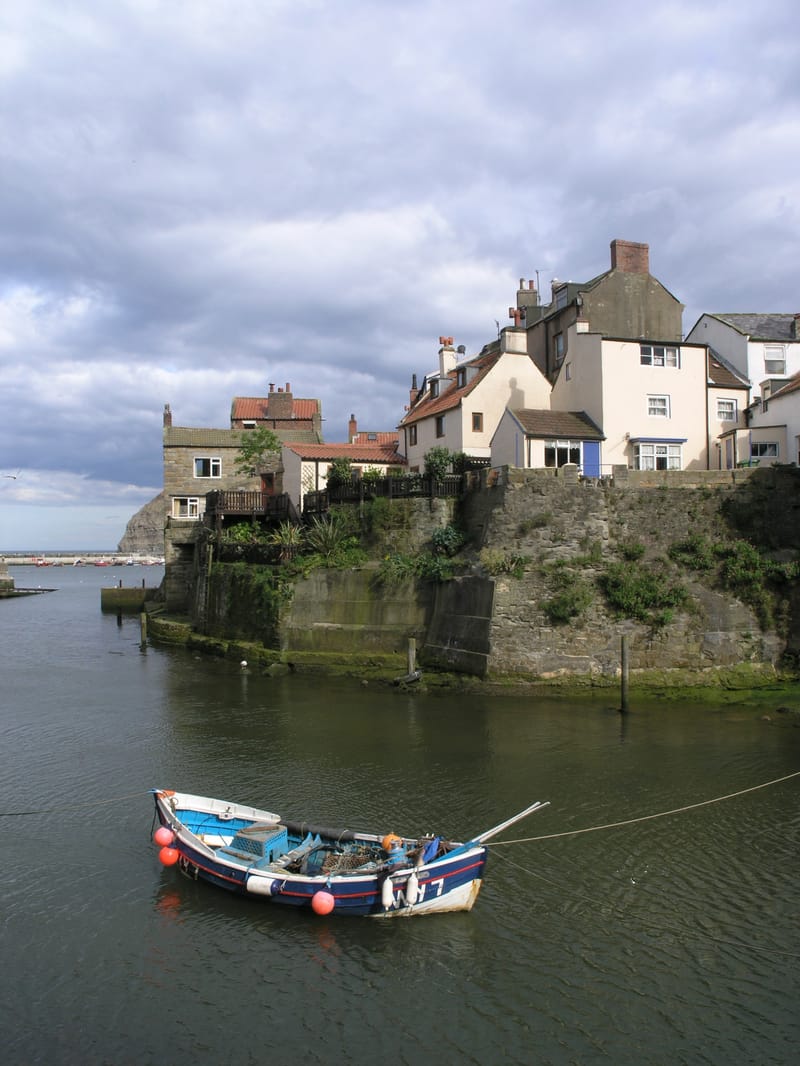
Henwyn Tyller Kernowek
A list of Cornish place names in Kernowek. Please note other names and versions / spellings may exist for places included in this list. See also Elvennow Henwyn Tyller for elements of Cornish Place names which help with translation
Learn MoreCrowseryow Kernowek standard
Crowseryow Skeul and Tavas
Kevren dhe Skeul An Tavas crowseryow / Skeul An Tavas crosswords link
Qwyz
Kernowek Quyz 1
Draw a line between question and correct answer
1. I am happy | A. An sagh o deg pens |
2. I was sad | B. Hy a vydn ponya |
3. She will run | C. Lowen ov vy |
4. Is a man in the garden | D. Yma ev ow cusca |
5. Is that book new | E. Peth yw hedna |
6. What is that | F. Yw an lyver-na nowyth |
7. The bag was ten pounds (£10) | G. Trist en vy |
8. He is sleeping | H. Eus den in lowarth |
Download File Here: Kernowek_Qwyz_1.pdf
Kernowek Standard Qwyz 2
What are these Cornish words?
1. YTNYMT ______________
2. TDAYL _______________
3. EHHYRTNW ______________
4. AWEPRS ______________
5. ELKPLOWLO ___________
6. YNSETHE ______________
7. LLVEERE ______________
8. HTEL ________________
9. THPE _______________
10. WYP _______________
11. SEERTM ______________
12. HDROF ______________
13. HIQTWS _______________
14. LLSGOA ______________
15. EHHGW ______________
16. WGUHB __________________
17. CFISRA __________________
18. ERWEK ___________________
19. WLKAGE _________________
20. AVOWOR _________________
Download File Here: Kernowek_Standard_Qwyz_2.pdf
Kernowek Standard Qwyz 3
Draw a line between Question and Correct answer
Name: ___________________________________ | Date: ______________ |
Kernowek Quiz 3
1. I do not run | A. Y a yll cana |
2. You (s) will walk | B. Os ta lowen |
3. They can sing | C. Yma hy ow scrifa |
4. He does not want to read | D. Yth esof vy owth eva |
5. We can row | E. Is a child outside |
6. Hy a vydn gwary | F. Crev yw ev |
7. You will not come | G. Trist ov vy |
8. They will ride | H. Pwgh why ryb an margh |
9. She is writing | I. She will play |
10. Can the boy swim | J. Nyns yw an lyver na noweth |
11. I am sad | K. Ny a wra revya |
12. Usy an vowes tre | L. Is the girl home |
13. Eus flogh in mes | M. Usons y dhyrag |
14. They are behind | N. A yll an maw neyja |
15. Are they in front | O. Ymowns y adrev |
16. Are you happy | P. Me na wra ponya |
17. He is strong | Q. Y a vydn marhogeth |
18. That book is not new | R. Te a vydn kerdhes |
19. Are you beside the horse | S. Why na wra dos |
20. I am drinking | T. Ev na garsa redya |
Download File Here: Kernowek_Quiz_3 (1).pdf
Kernowek Standard Quyz 4
Draw a line between the correct opposites
Aswon an Contrary (Identify the opposite)
1. Brȃs | A. Rȏnd |
2. Coth | B. Terry |
3. Hir | C. Gorfedna |
4. Dȃ | D. Pell |
5. Mebyon | E. Scav |
6. Poos | F. Glёb |
7. Uhel | G. Peryllys |
8. Pedrak | H. Benow |
9. Dallath | I. Marow |
10. Gorow | J. Wherow |
11. Gwag | K. Medhel |
12. Ogas | L. Yonk |
13. Tewl | M. Drog |
14. Plos | N. Benenes |
15. Fur | O. Glȃn |
16. Adȃl | P. Bohosak |
17. Ȇwna | Q. Leun |
18. Bew | R. Ryb |
19. Cara | S. Hȃtya |
20. Wheg | T. Gocky |
21. Du | U. Mowysy |
22. Tus | V. Isel |
23. Rych | W. Cot |
24. Saw | X. Gwydn |
25. Cales | Y. Spladn |
26. Sёgh | Z. Bian |
Download File Here: Aswon_an_Contrary_Identify_the_opposite.pdf
Whythra Ger - Wordsearch
Whythra Ger - Onen
Whythra Ger adro Edhednow ha Bestas - Wordsearch around Birds and Animals Translate the clues into Kernowek and find the words
Learn MoreWhythra Ger - Dew
Whythra Ger adro Verbys - wordsearch around verbs Translate the clues into Kernowek and find the words
Learn MoreMulti Choice Quiz
Care: This quiz is PowerPoint based and will need PowerPoint to work correctly. Unfortunately at this time it does not work correctly on Apple products.
K L Video Onen
K L Video Dew
Kernowek Lulyn Video Dew
A second video to introduce basic Cornish words to younger learners
Learn MoreFilms in Cornish/ Kednennow Kernowek
Kednennow Kernowek
Goolan/Porth/Golden Tree Productions - https://www.youtube.com/watch?v=_SZph54bZUg
Yn Mor - https://www.zoealker.com/work/ynmor
Fylm - https://kalenderkernewek.weebly.com/video.html
Tyskennow Kernow - https://vimeo.com/showcase/tk?fbclid=IwAR2noqD2C4N-AgY8ViJR7EQzOosabbDc-NNjufR0O333_7Oo3yN8XC6YT9c
Trengellick Rising - https://www.kickstarter.com/projects/guypotter/trengellick-rising-a-cornish-language-short-film or https://www.devon-cornwall-film.co.uk/2021/03/22/tregellick-rising-gritty-revenge-in-cornish-language-short/
Wedhel Henry Jenner - https://cornishstuff.com/2018/03/10/hwedhel-henry-jenner-new-film-celebrates-life-of-language-pioneer/
Hwerow Hweg - https://www.youtube.com/watch?v=o1ExuqMx3jM
Video Tecter An Pow Kernow - Video of Cornish Scenery
Cornwall from the air video - https://www.youtube.com/watch?v=oM1T6NXjTeo
Kernowpalooza - https://www.youtube.com/watch?v=zlYwpR3MJvA
Kevrennow Musyk Kernowek
Canow Kernowek
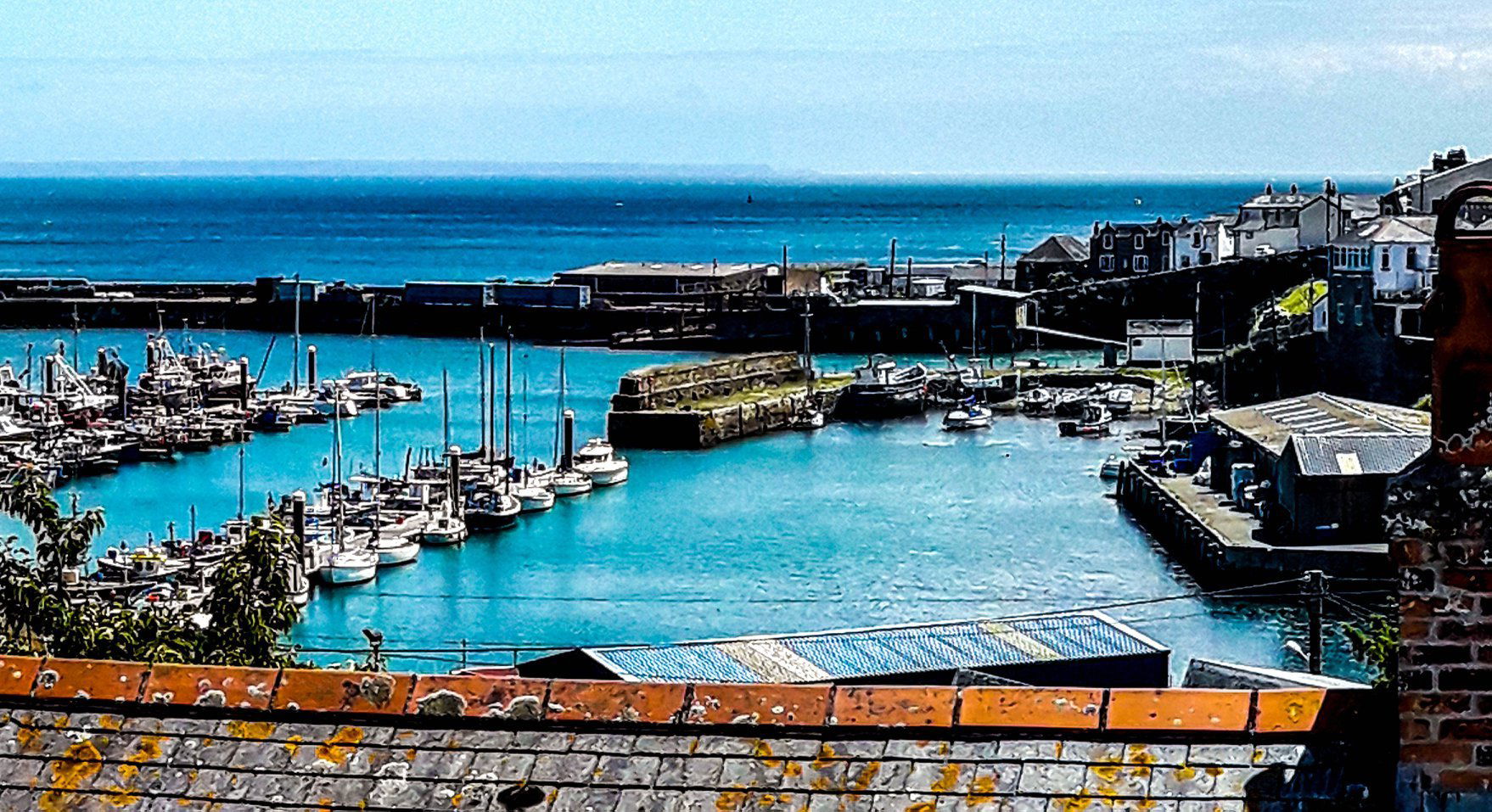
Bro Goth Agan Tasow
https://www.youtube.com/watch?v=ojdZaPeJjAo
Verses in Sawsnek -Bro Goth Agan Tasow - Academic Kids
Trailyans Sawsnek -Bro Goth Agan Tasow trailyans Sawsnek.pdf
Trelawney
https://www.youtube.com/watch?v=M0I9_mTX0lg
Lamorna
https://www.youtube.com/watch?v=ARmaSa0Qi-g
The White Rose
https://www.youtube.com/watch?v=E431rpMmjog&list=PLZPWMVBDpwGBGvmq25ZVUzj78NeexPQLr&index=3
Newlyn Maid
https://m.youtube.com/watch?v=qkscq0QONNw&list=PLZPWMVBDpwGBGvmq25ZVUzj78NeexPQLr&index=12
South Australia
https://www.youtube.com/watch?v=L-mUPIUzeXU&list=PLZPWMVBDpwGBGvmq25ZVUzj78NeexPQLr&index=14
An dus yowynk a Gembra 2020

- Share a response to the message – how do you want to see the world learning from this crisis? What change would you like to see after this? This could be an image/words/message of support or a video using #heddwch2020 or emailing it to us at heddwch@urdd.org
May Day in Padstow
Dedh Furry in Hellys
Golowan
Montol in Pensans
Montol - Pensans
Learn MoreLafrowda in Lanust
Murdock Day in Redruth
Murdock Day in Redruth
Learn MoreTrevithick Day in Camborne
Trevithick Day in Camborne
This page is used for listing the services offered by your company on your website.
Learn MoreGool Peran
St Pirans Day 2023
Learn MoreLostfest in Lostwithiel
Lostfest in Lostwithiel
Learn MorePig Walk in Sancreed
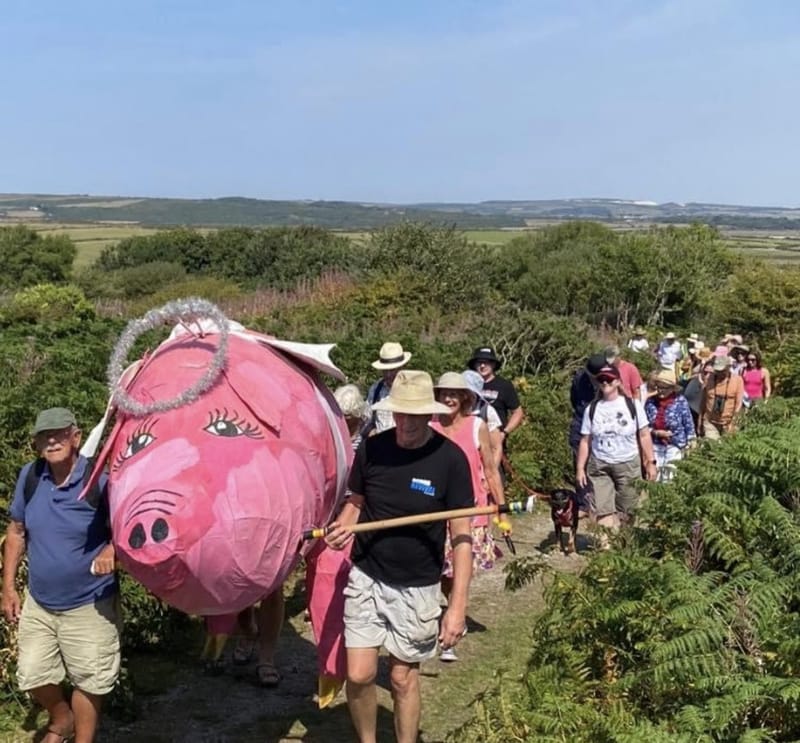
Pig Walk in Sancreed
Annual Pig Walk Sancreed Village Walk around The Beacon followed by a BBQ, cream teas and music. Family friendly event to celebrate the historical fame of the Sancreed pig: All the other parishes in West Penwith have a seaboard and their pigs were often fattened for market using fish offal, but as Sancreed is an inland parish, our pigs were fed dairy products and were hailed as the tastiest pigs at Penzance Market
Learn MoreLiterary Policy for site
Literary Policy of Kernowek Lulyn Website
We will not charge for carrying literary work. Your work should be in one or more styles or registers of revived traditional Cornish, spelled in Kernowek Standard (KS). You will retain copyright in your work. If uploading your work requires the consent of some other copyright owner (for example, the author or publisher of the original in the case of a translation), you must satisfy us that consent has been given. We may moderate your work for grammar, vocabulary, spelling, and punctuation. The work will only be uploaded with your approval. You may at any time require deletion of work you have provided, which we shall endeavour to do within a reasonable time. We reserve the right to refuse any work at our discretion, and to remove any work at any time. We will not obtain an ISBN for any work. As the whole of our website is open-access and un-passworded, you should expect that the British Library will obtain an archive copy of your work by its usual processes of web-crawling.
© Kernowek Lulyn 2025
Last updated: April 2025
